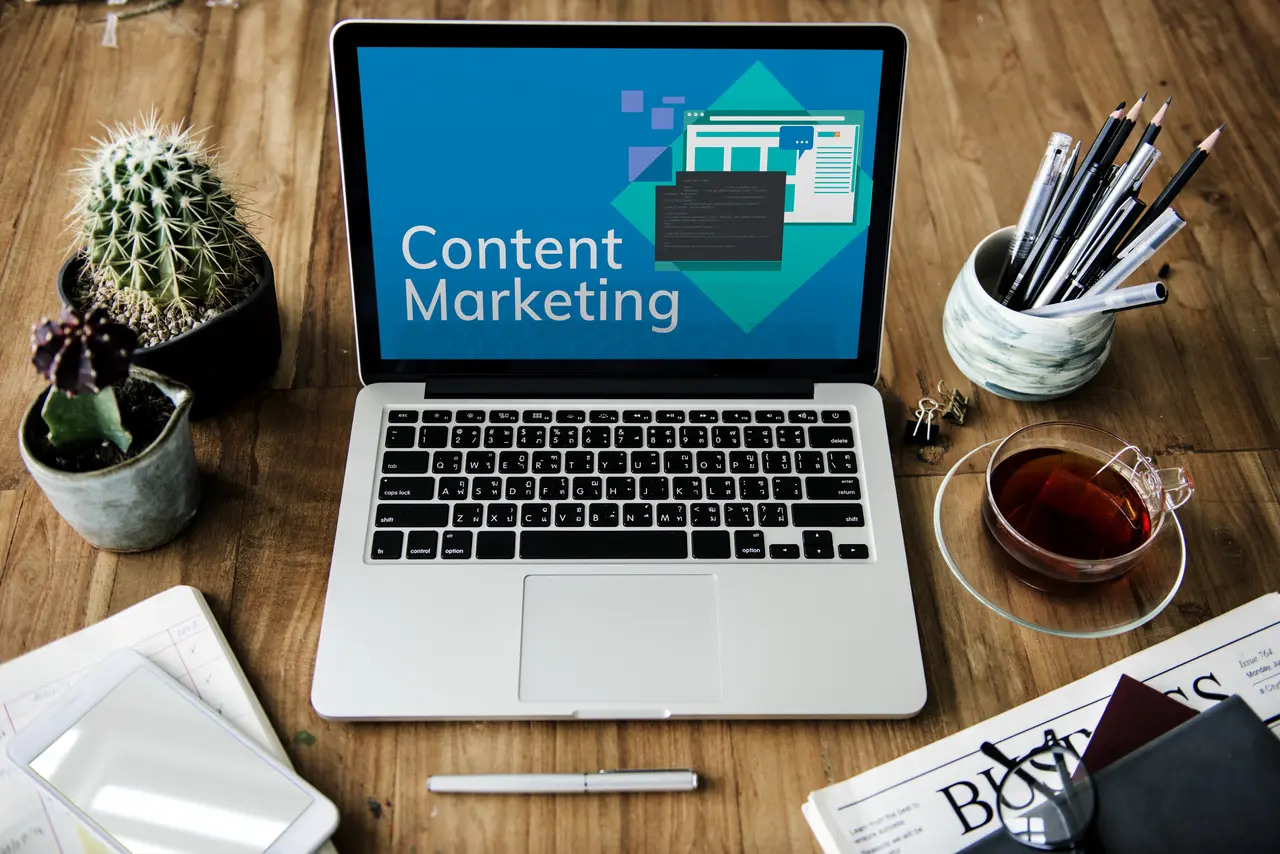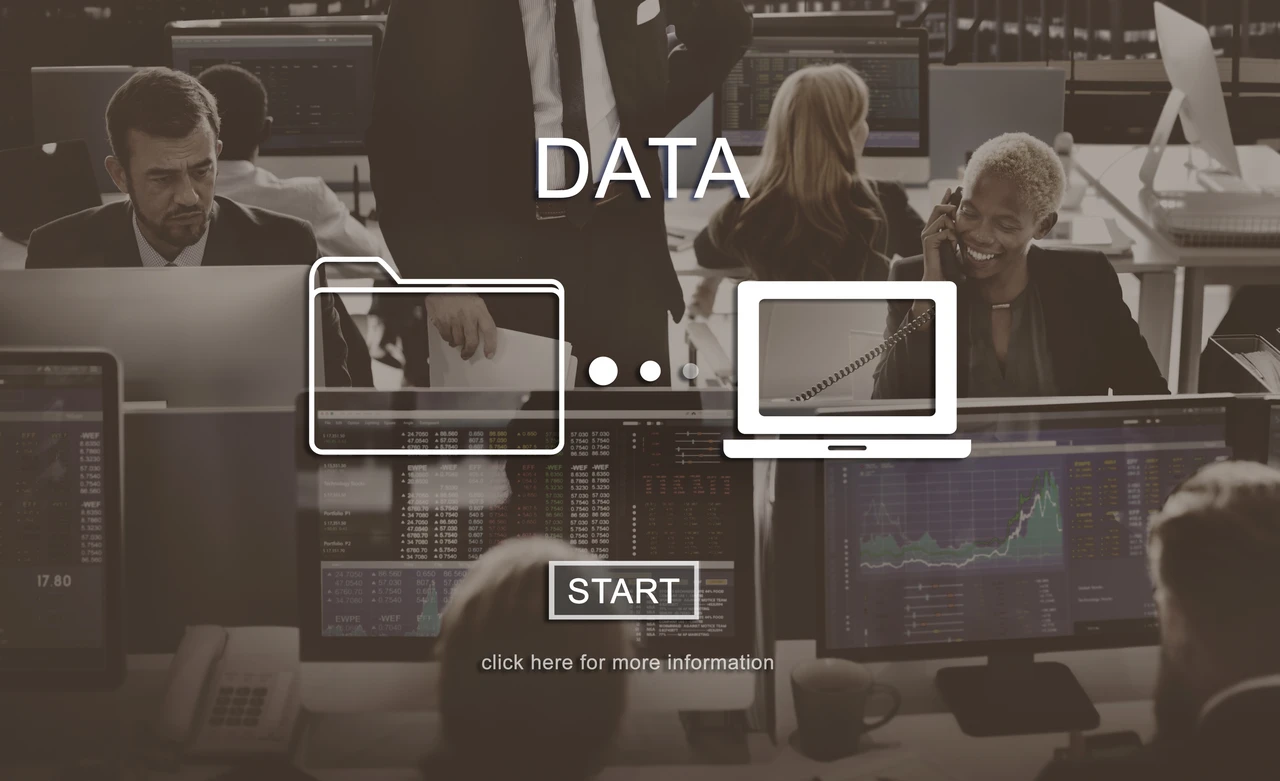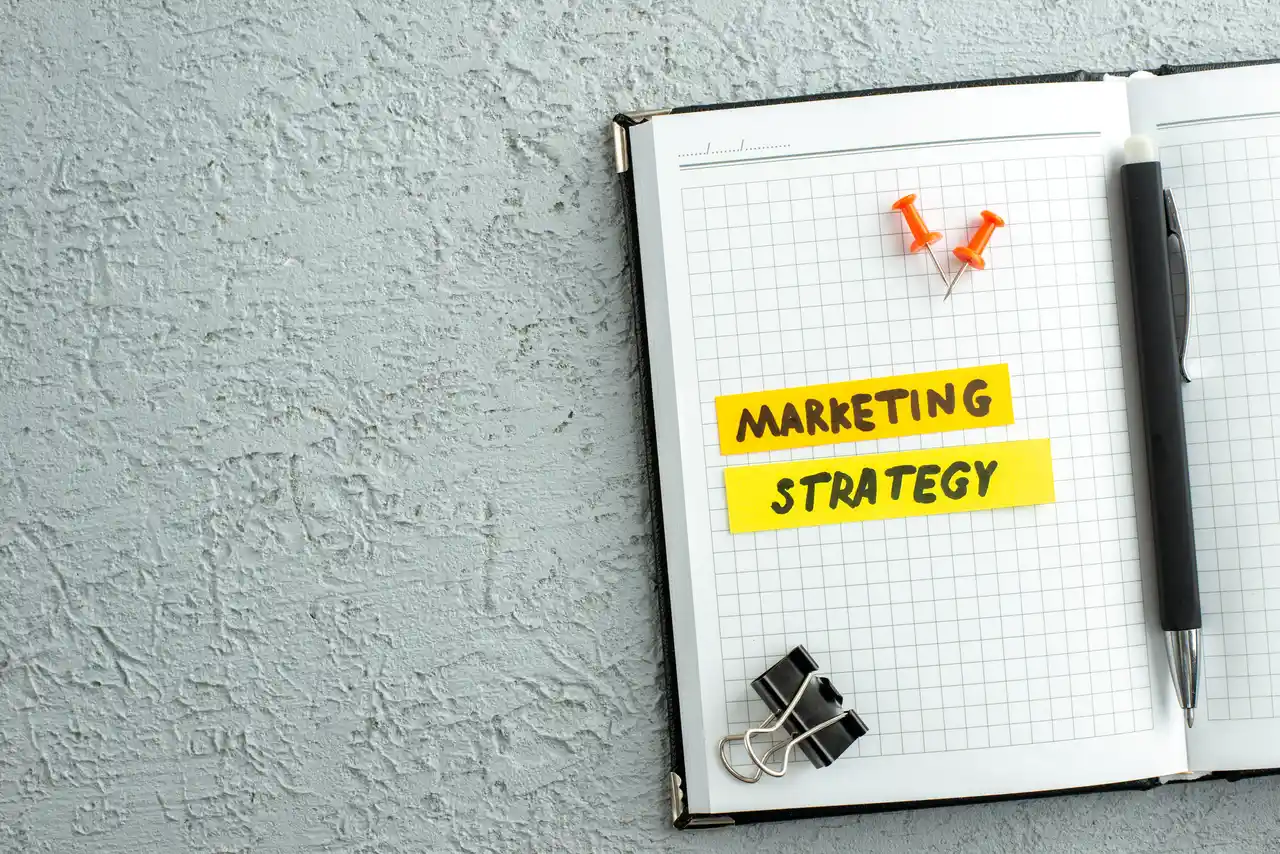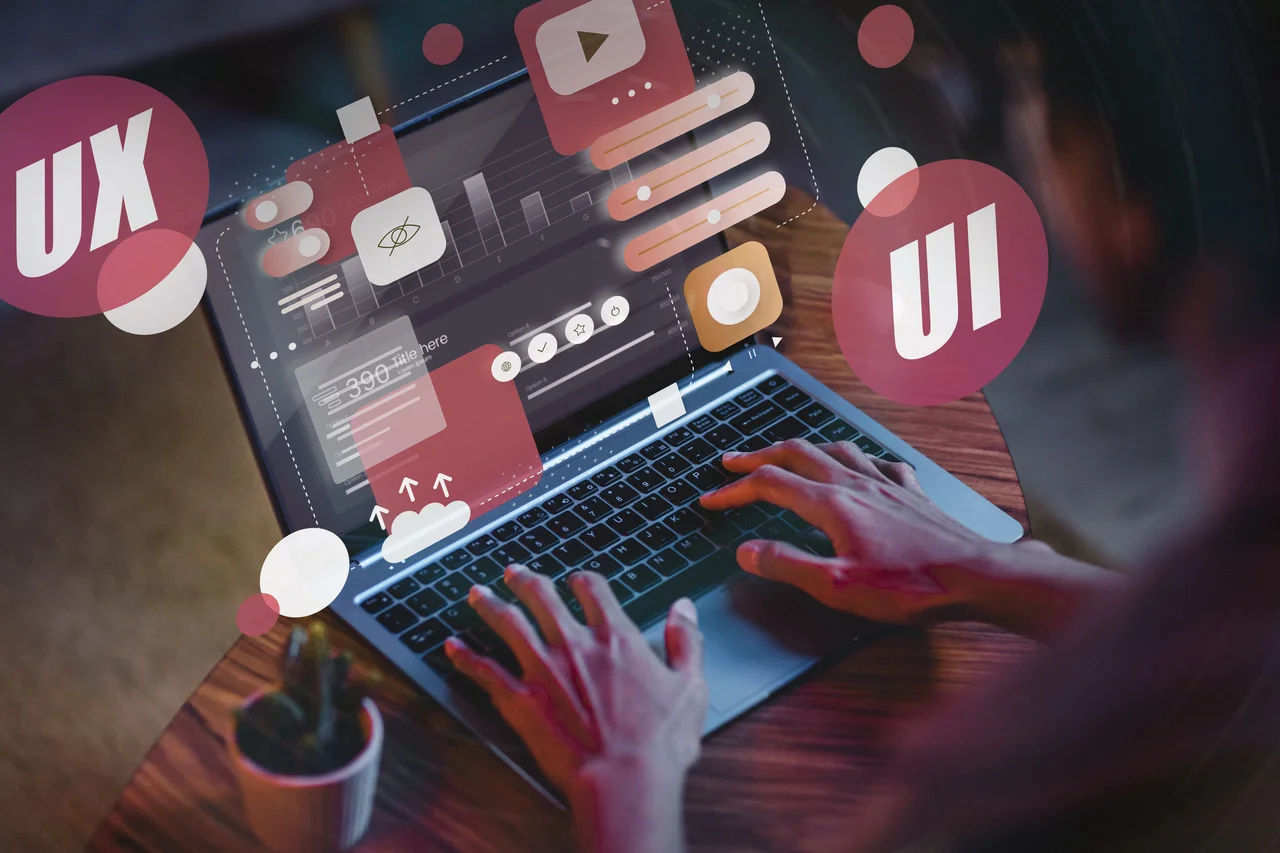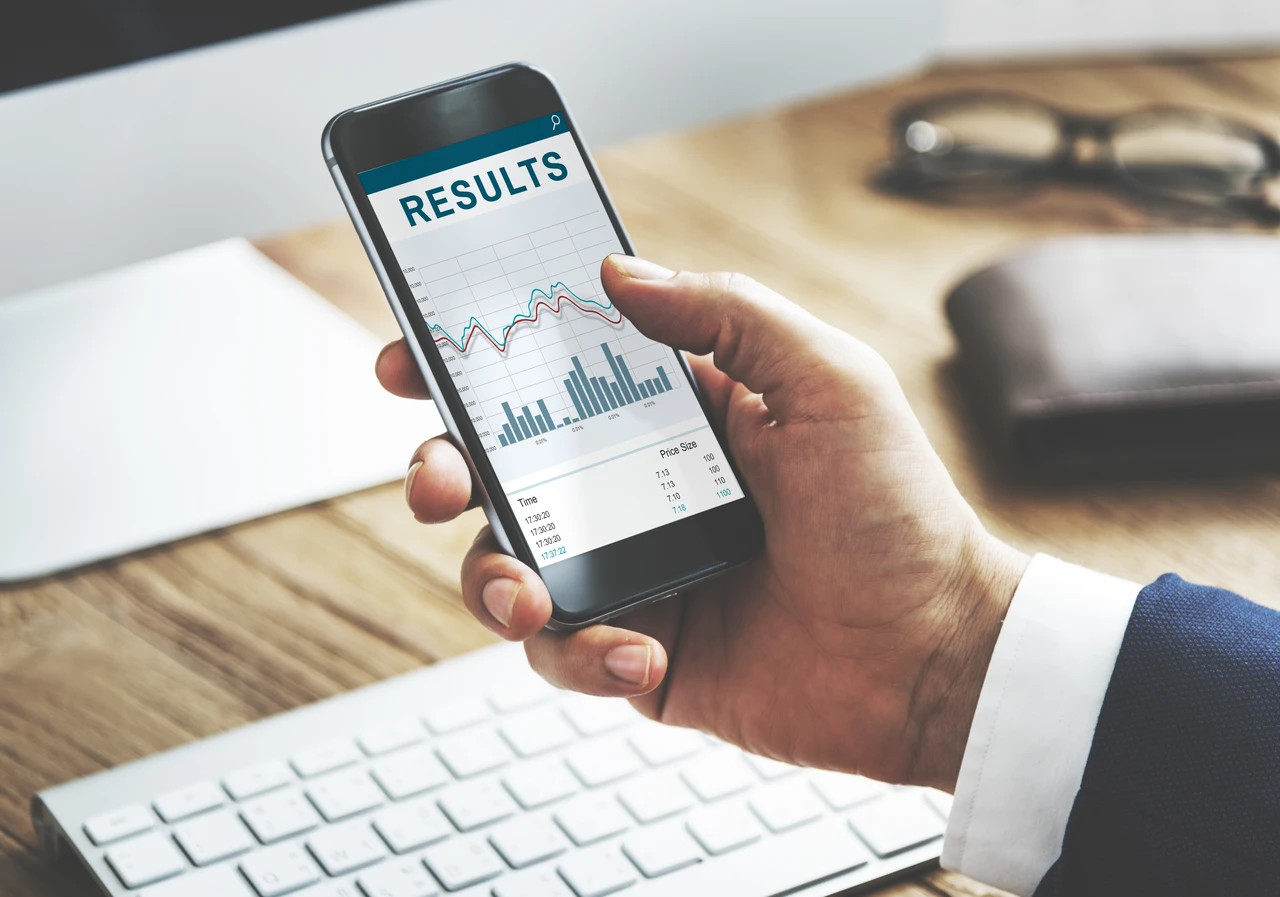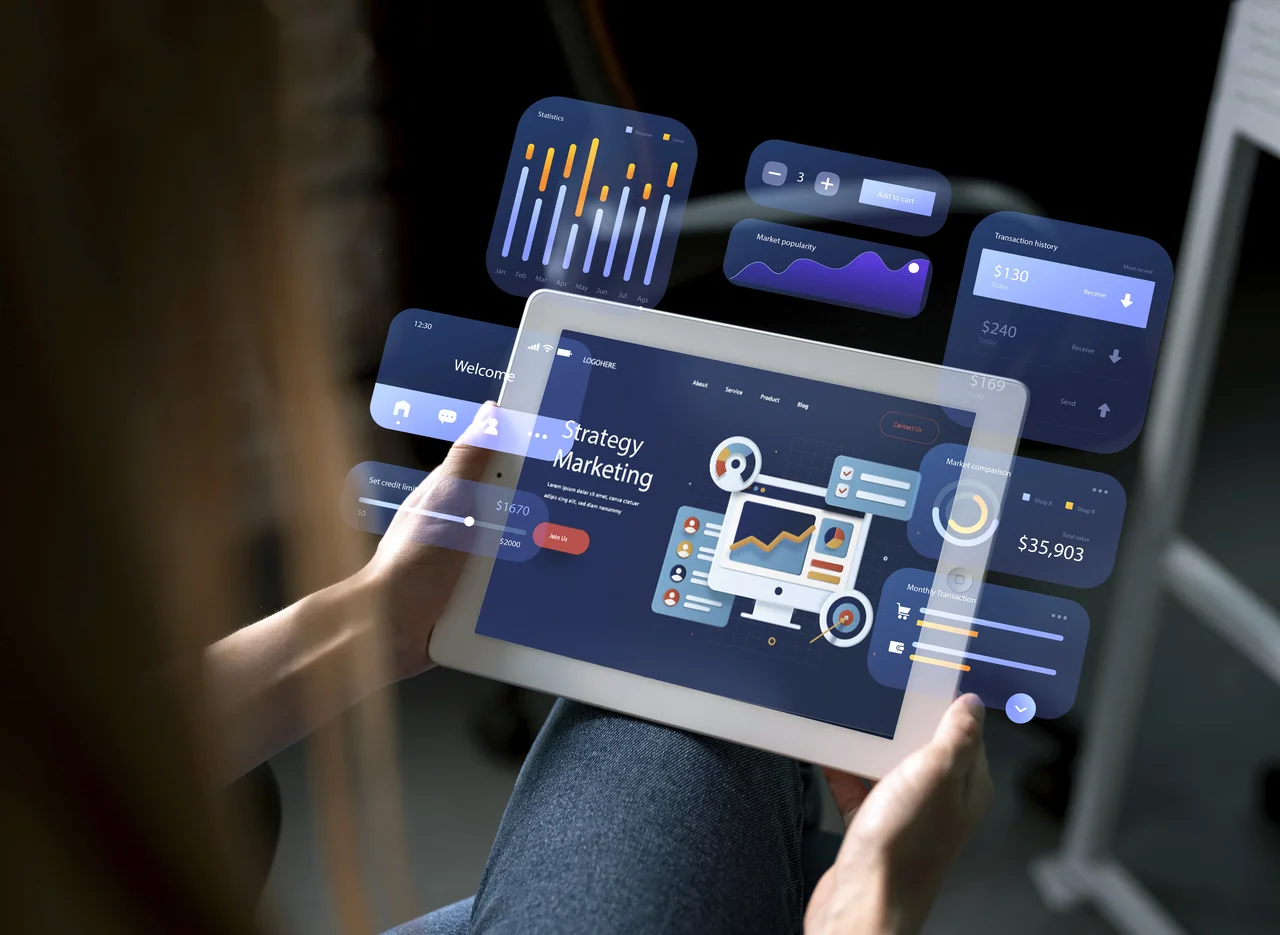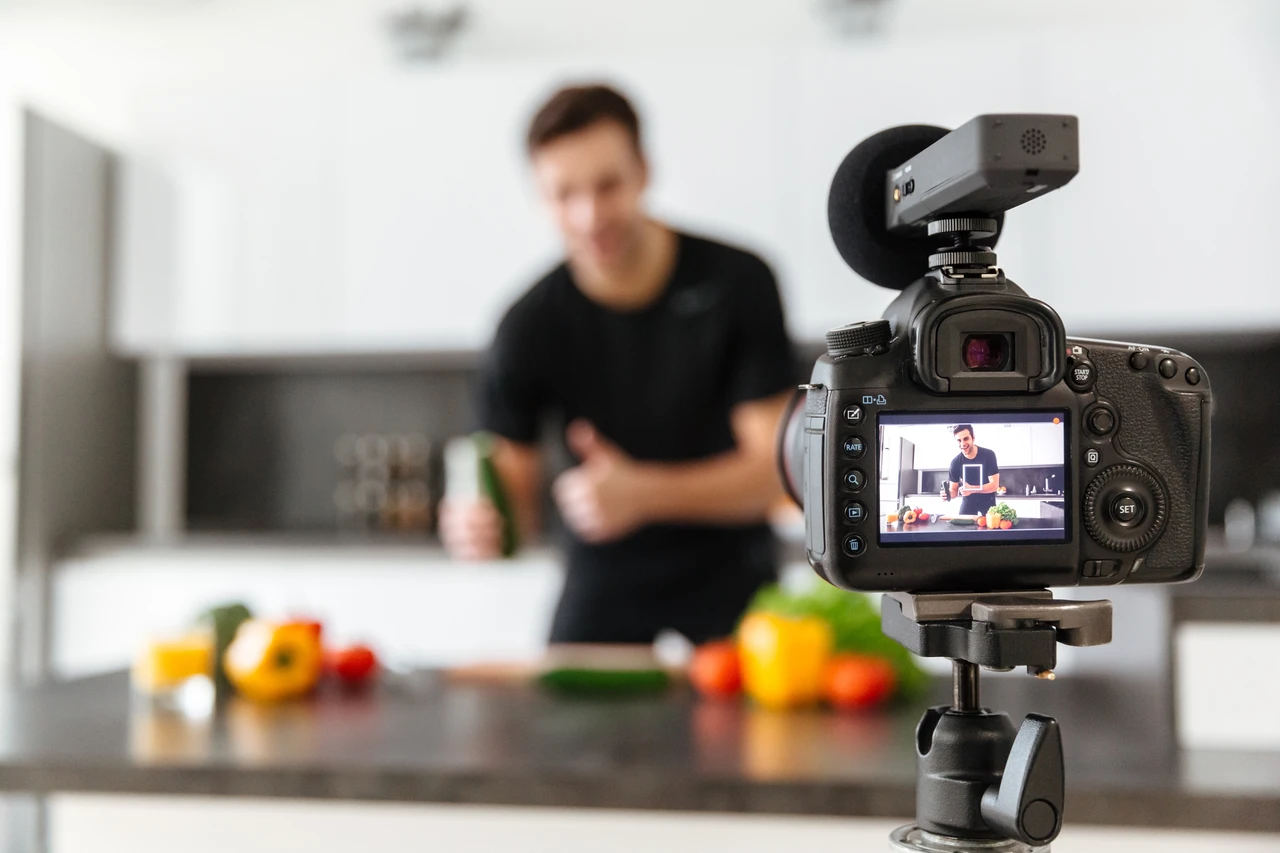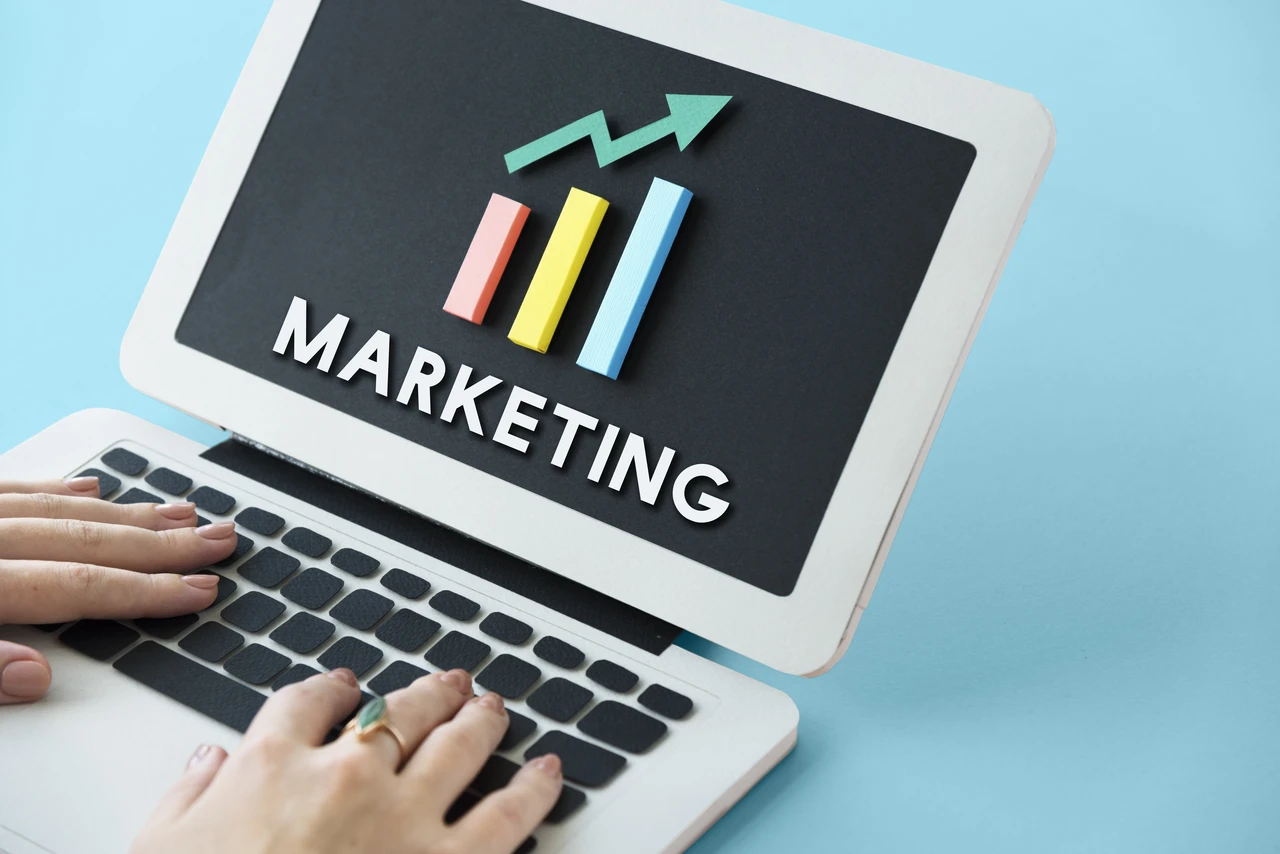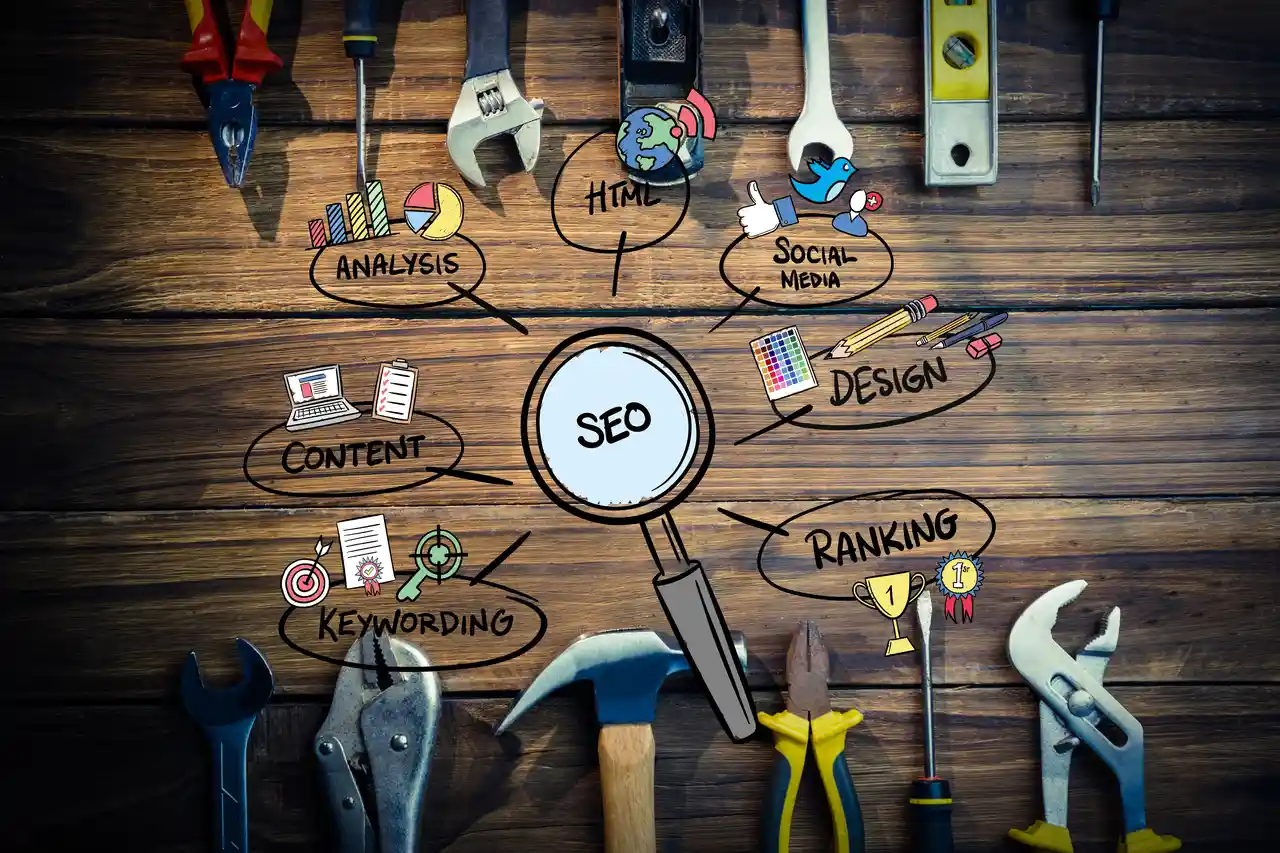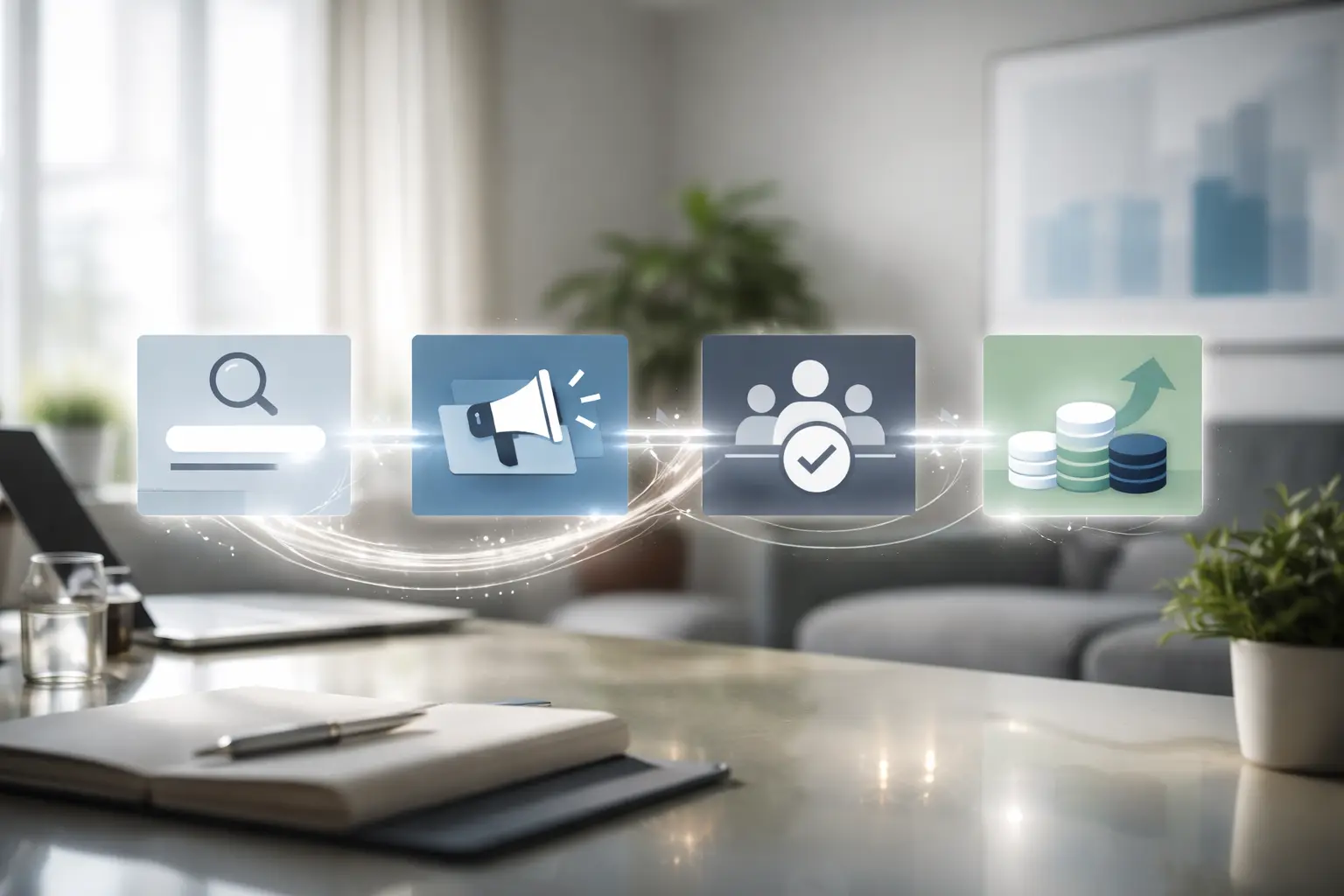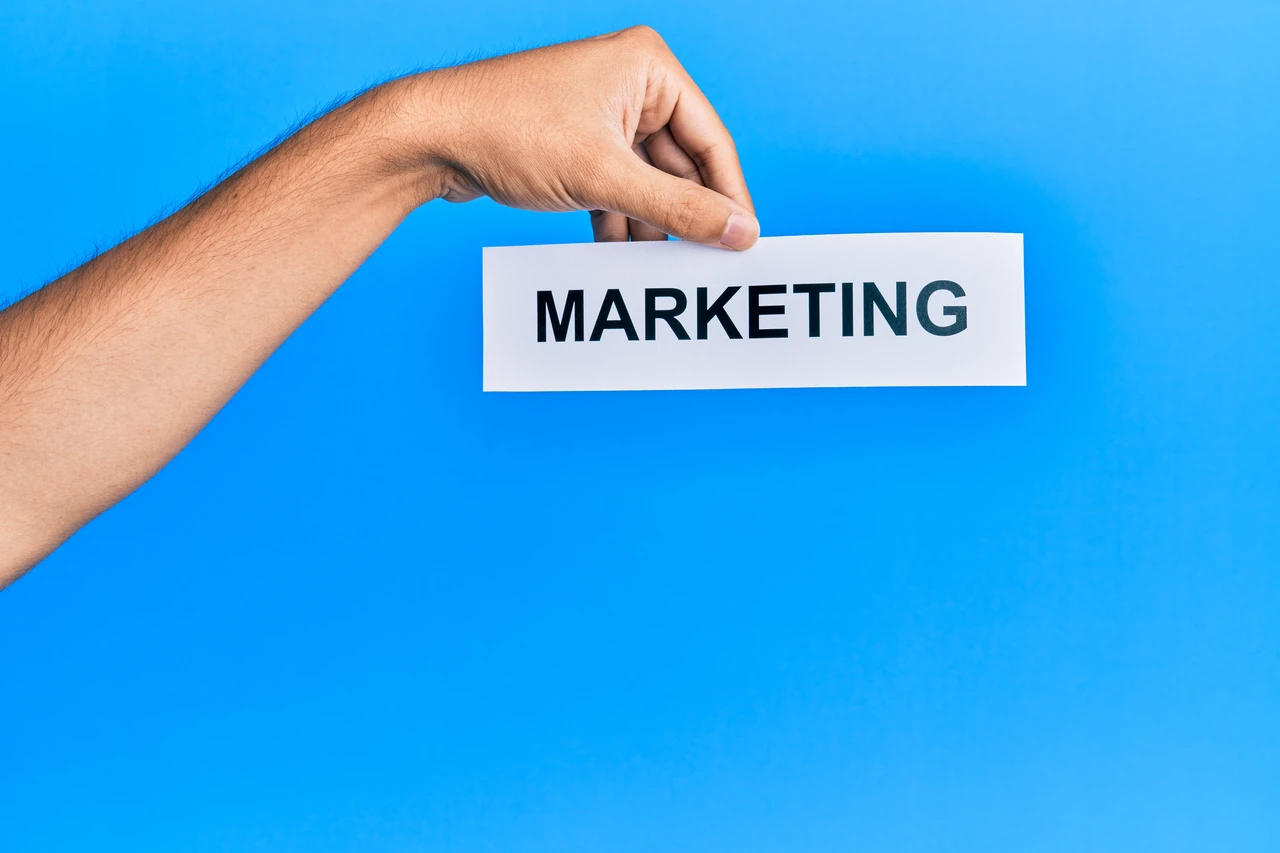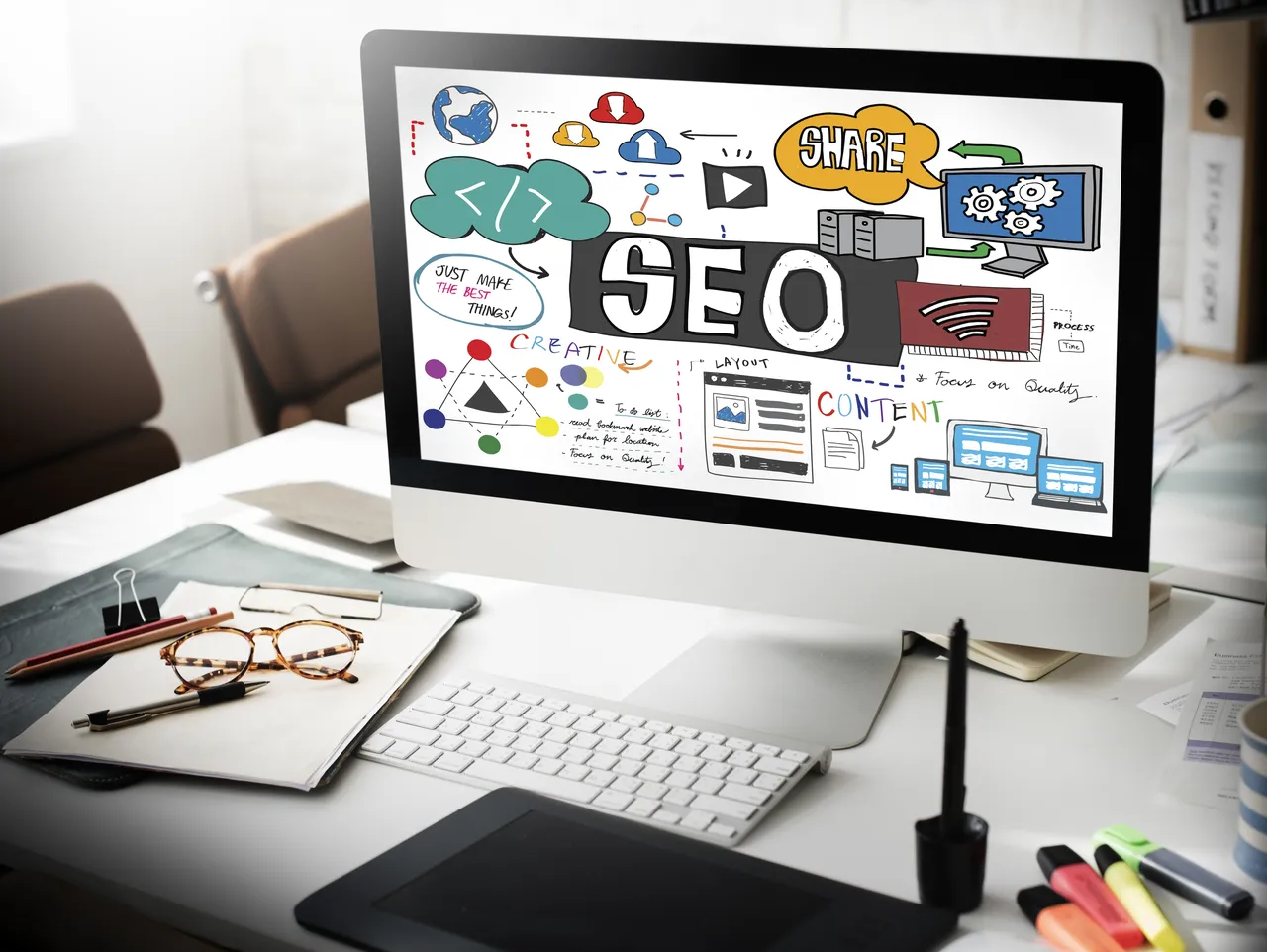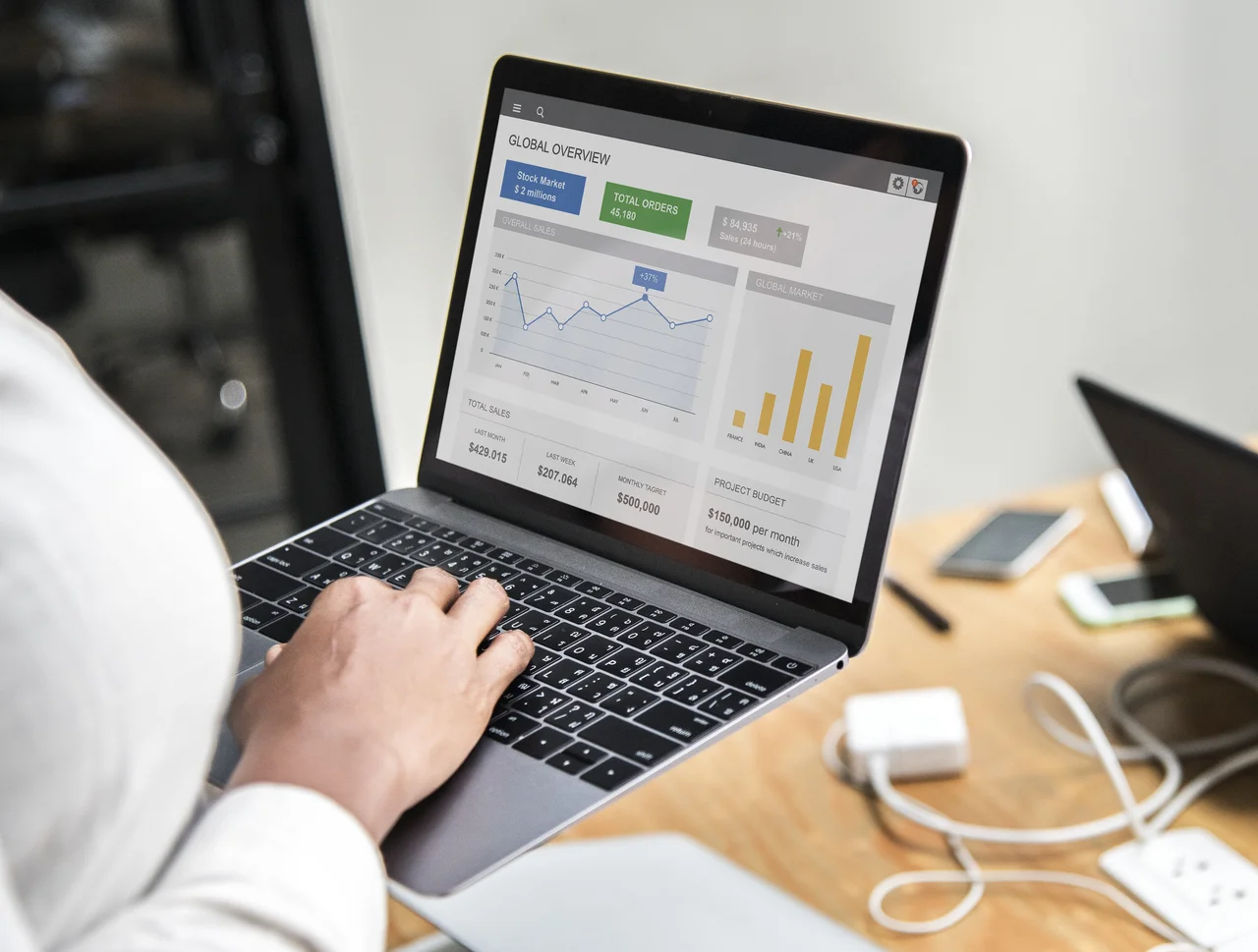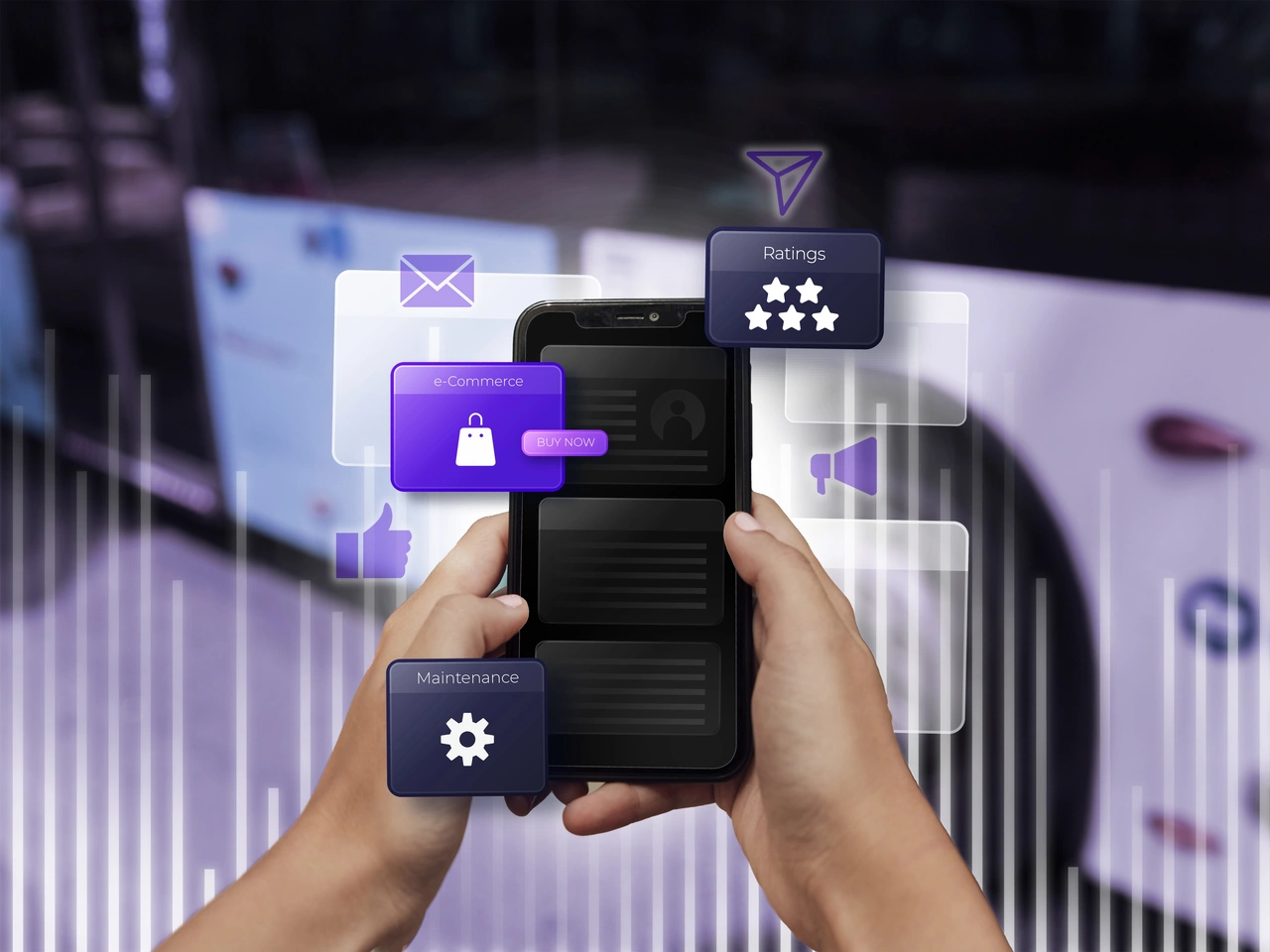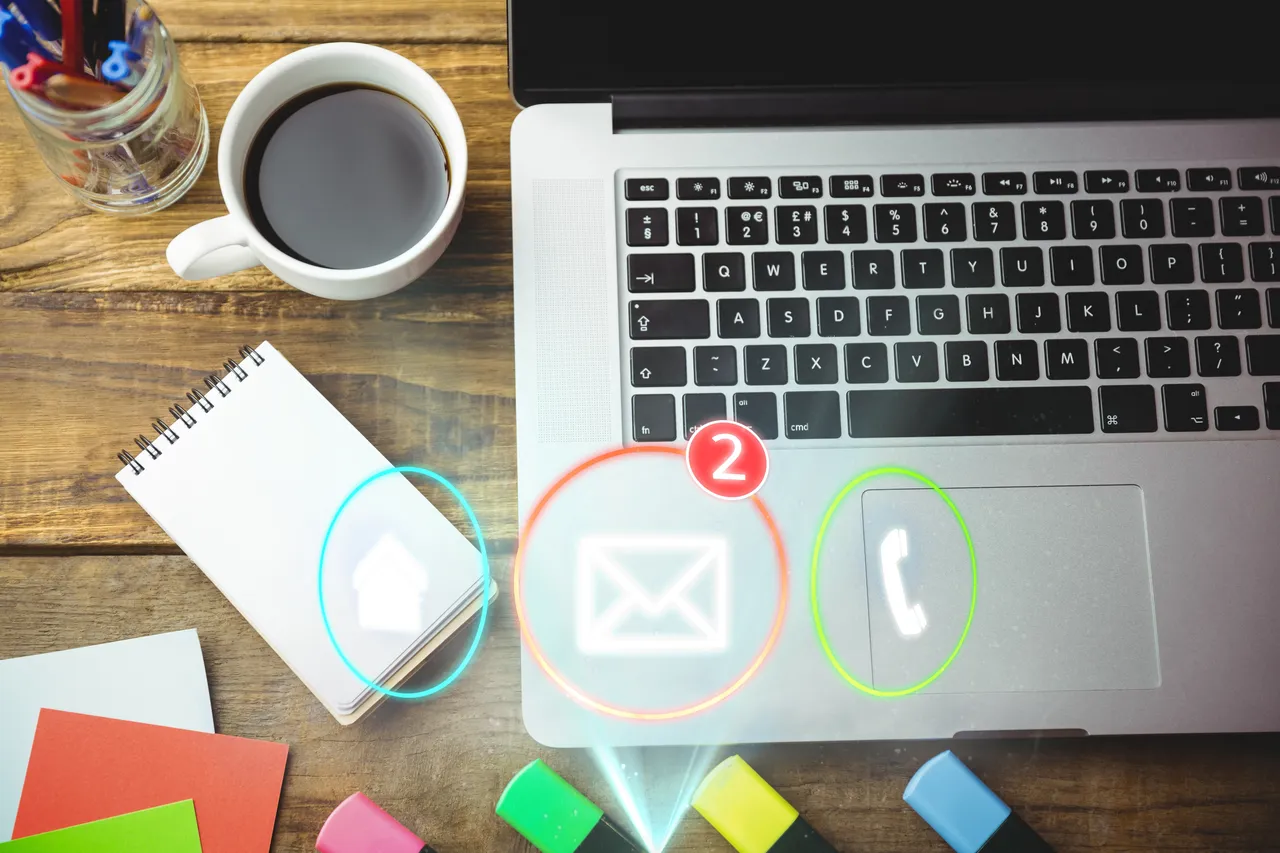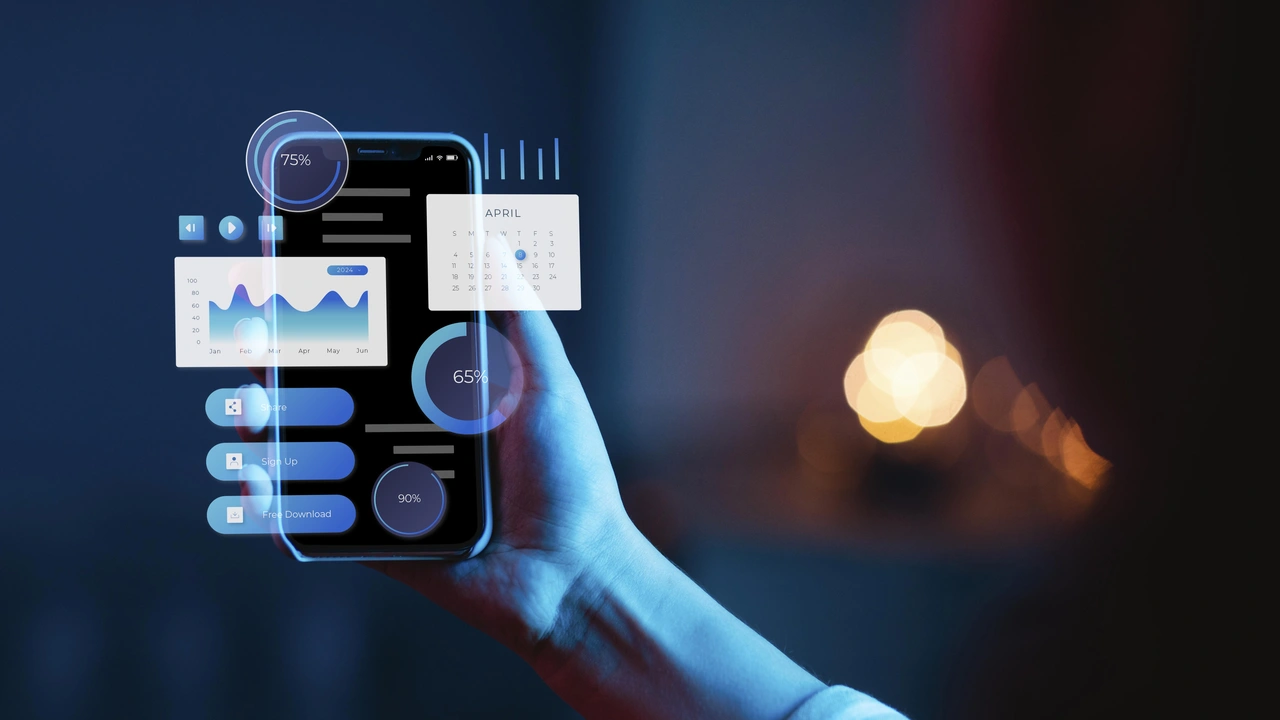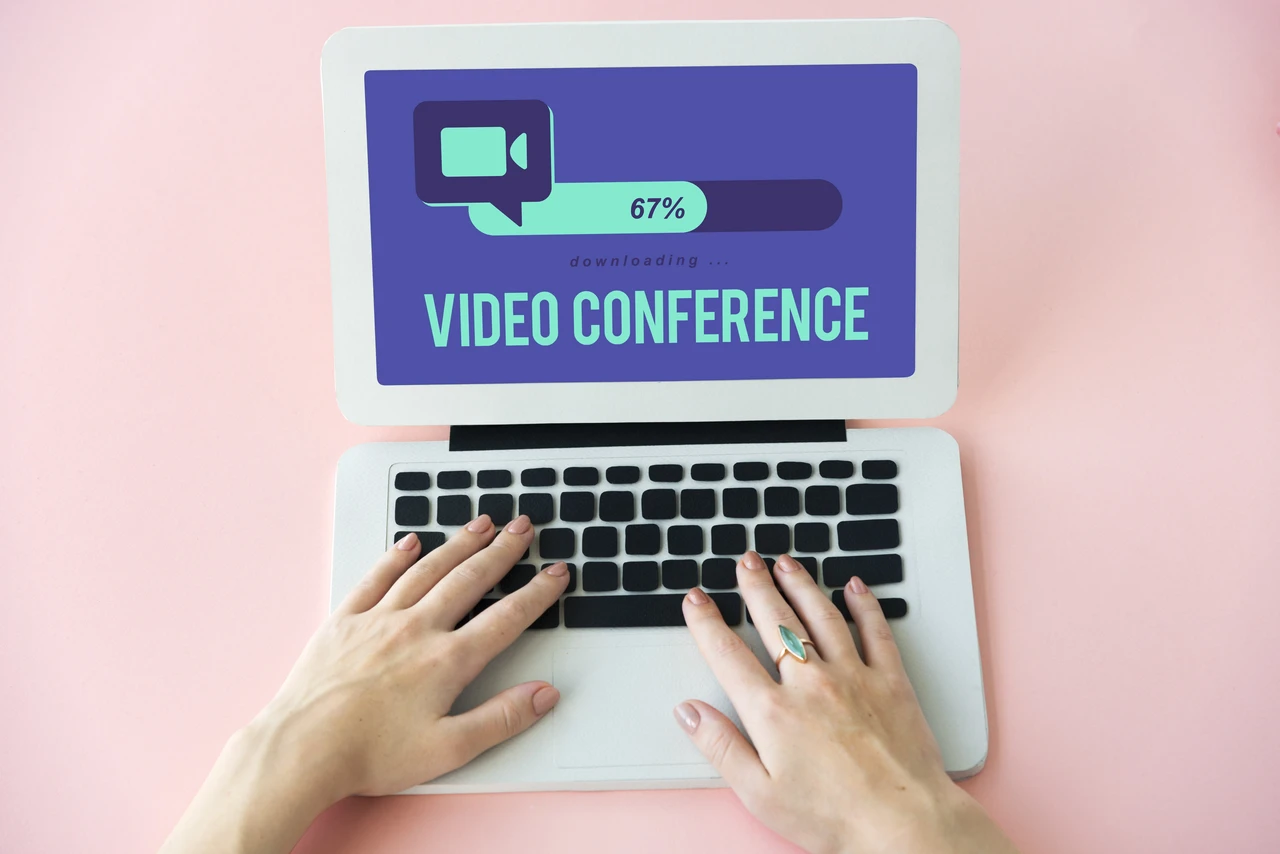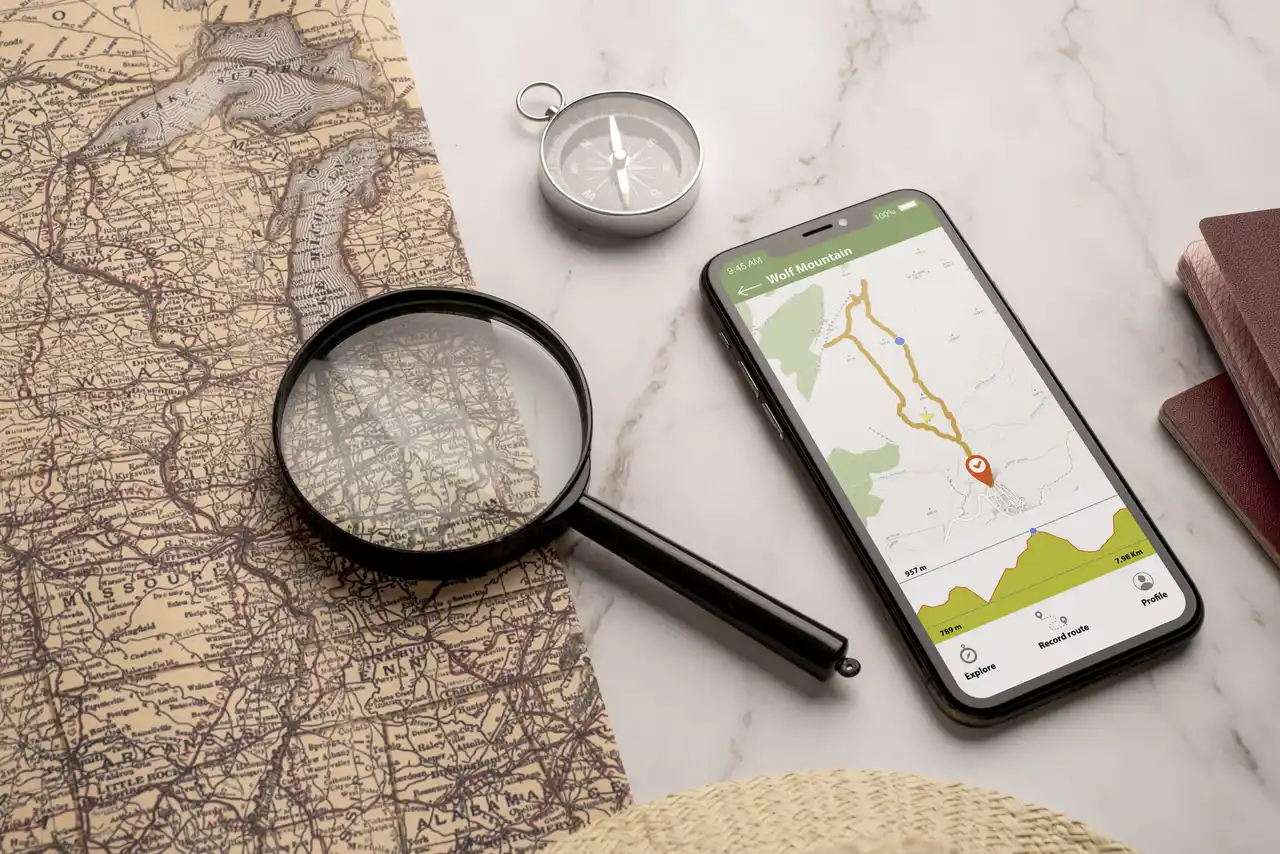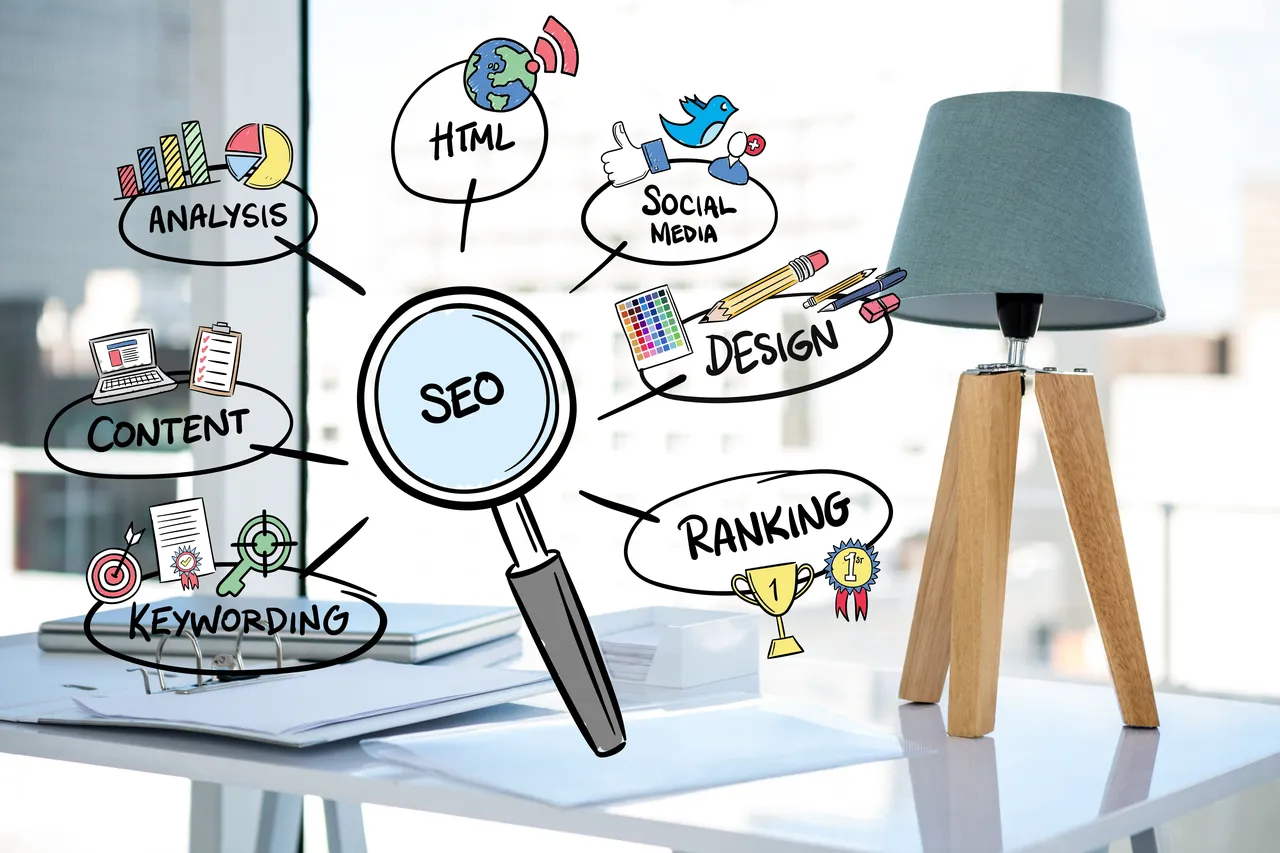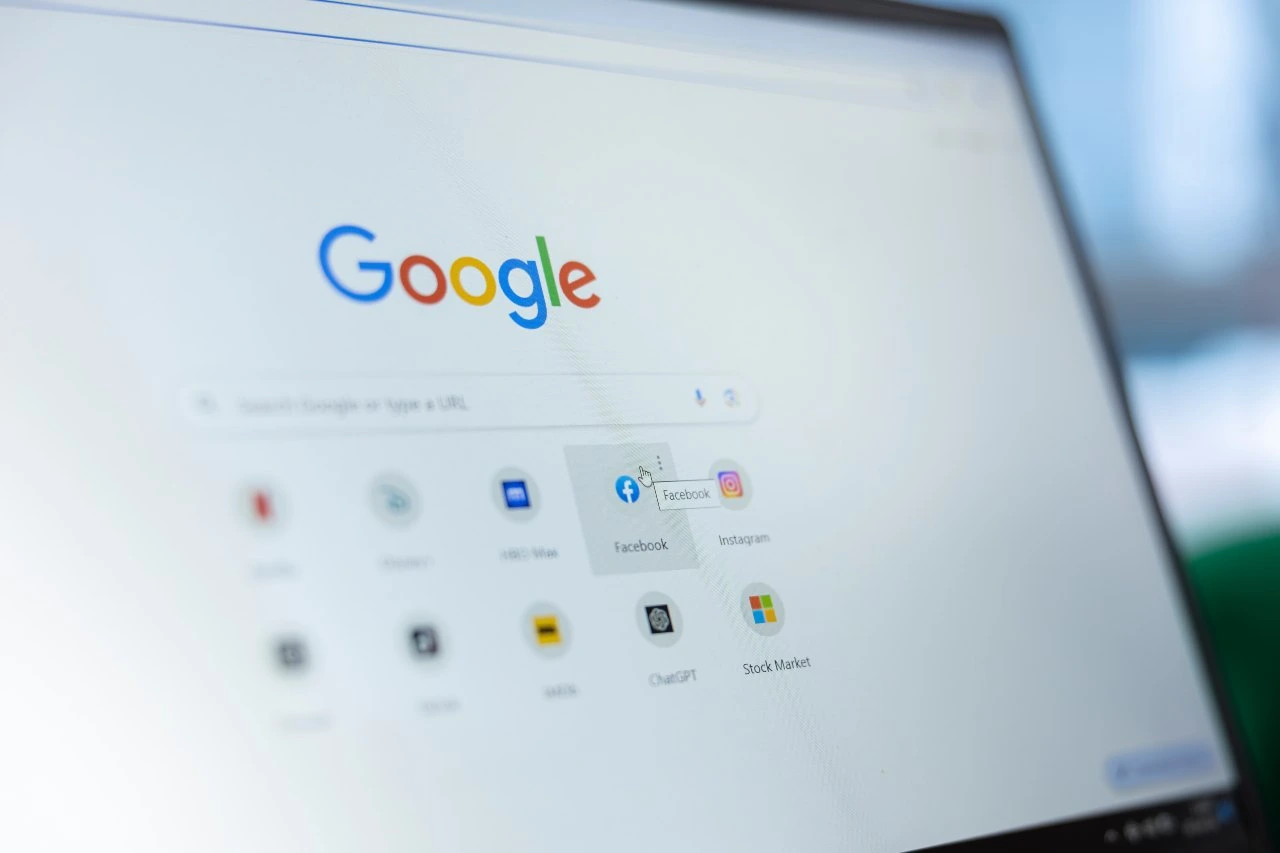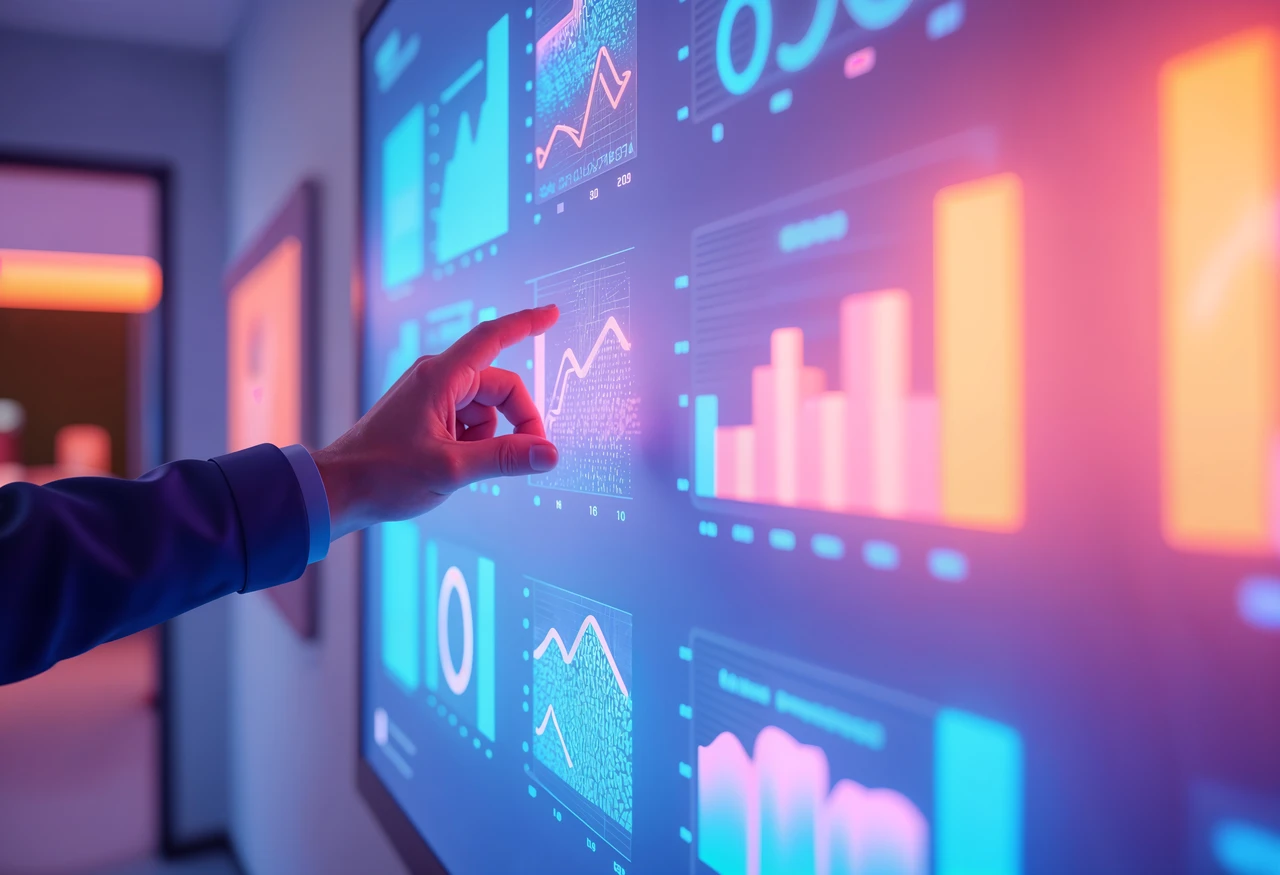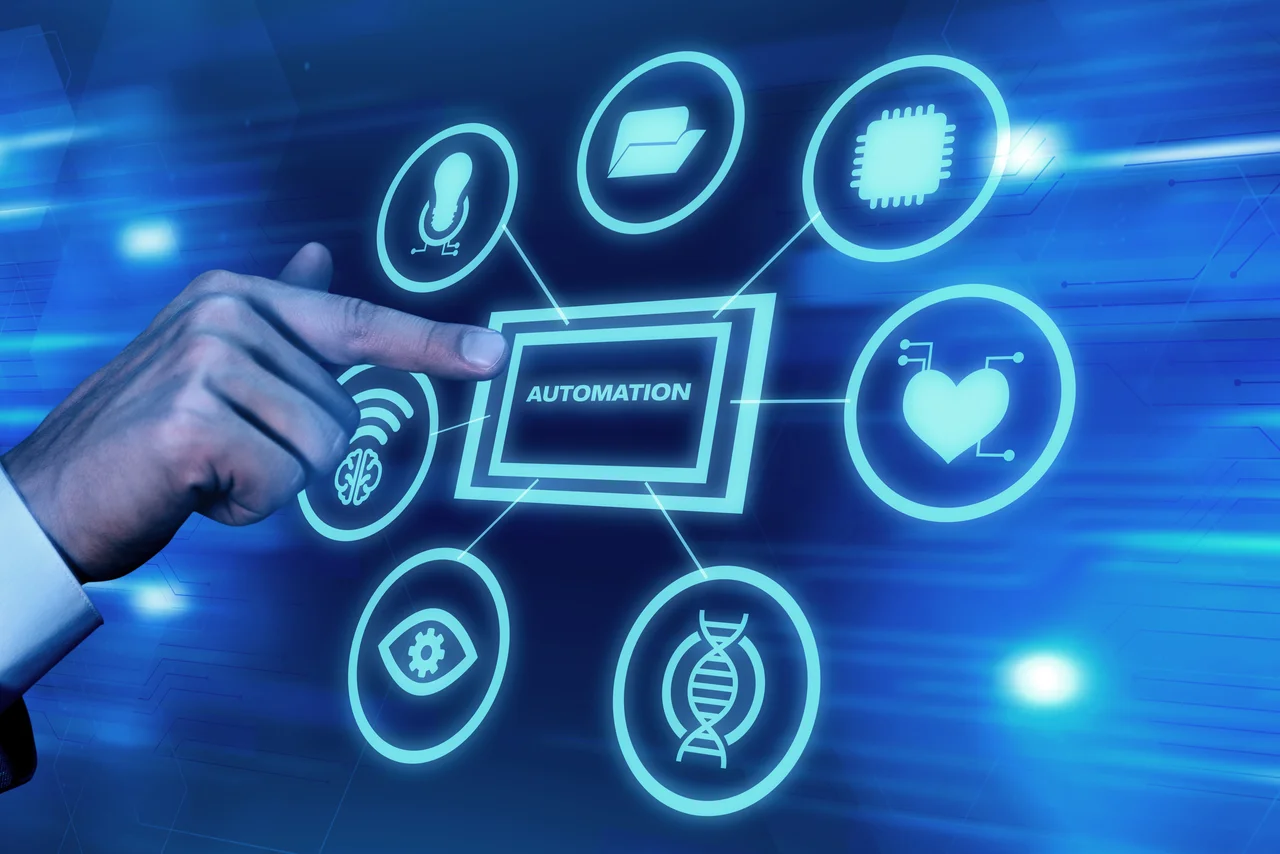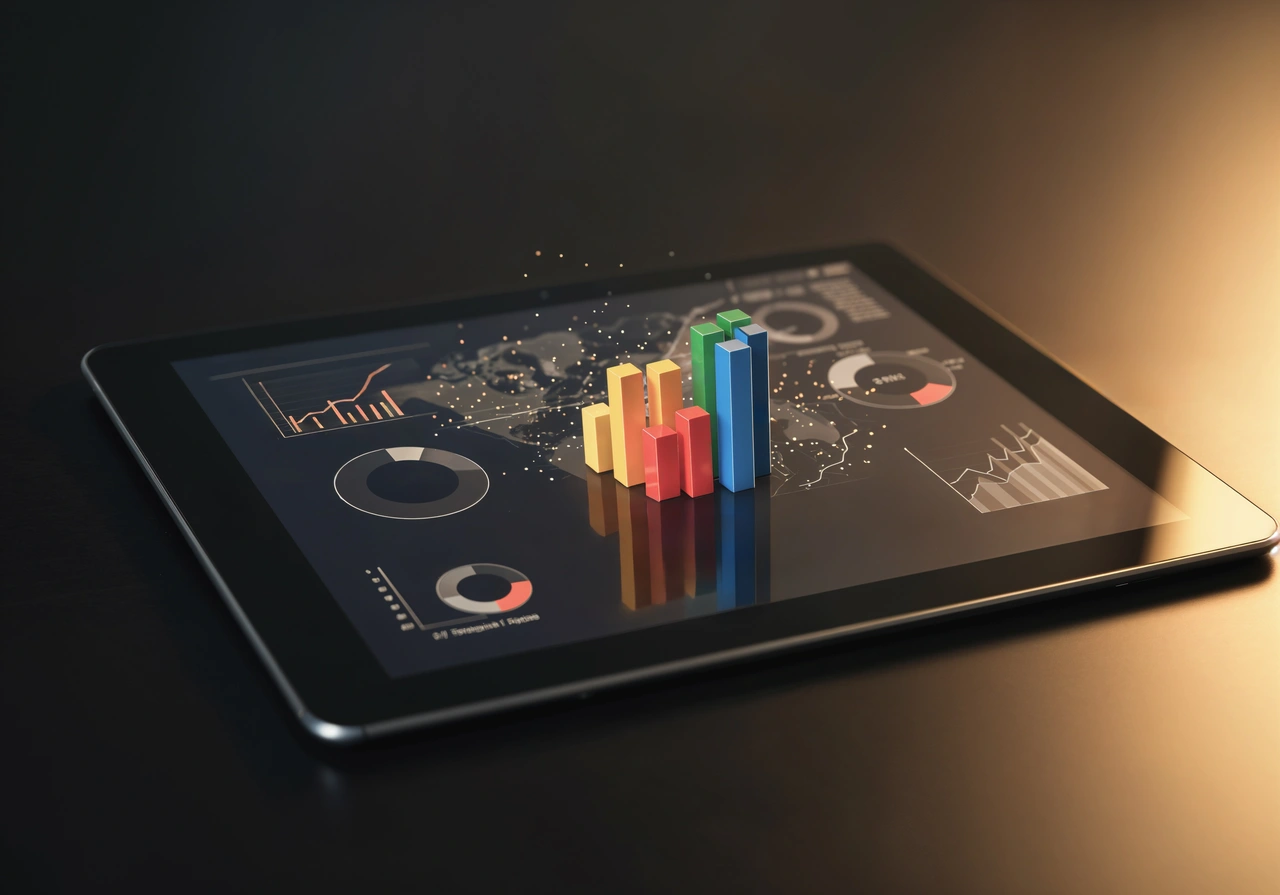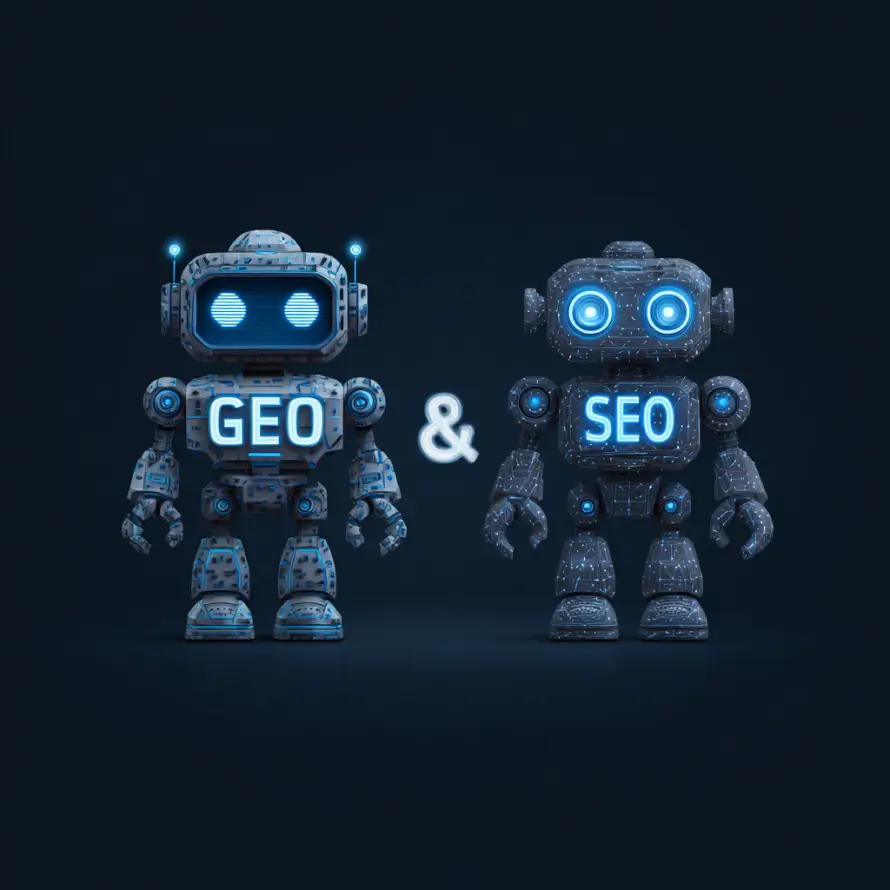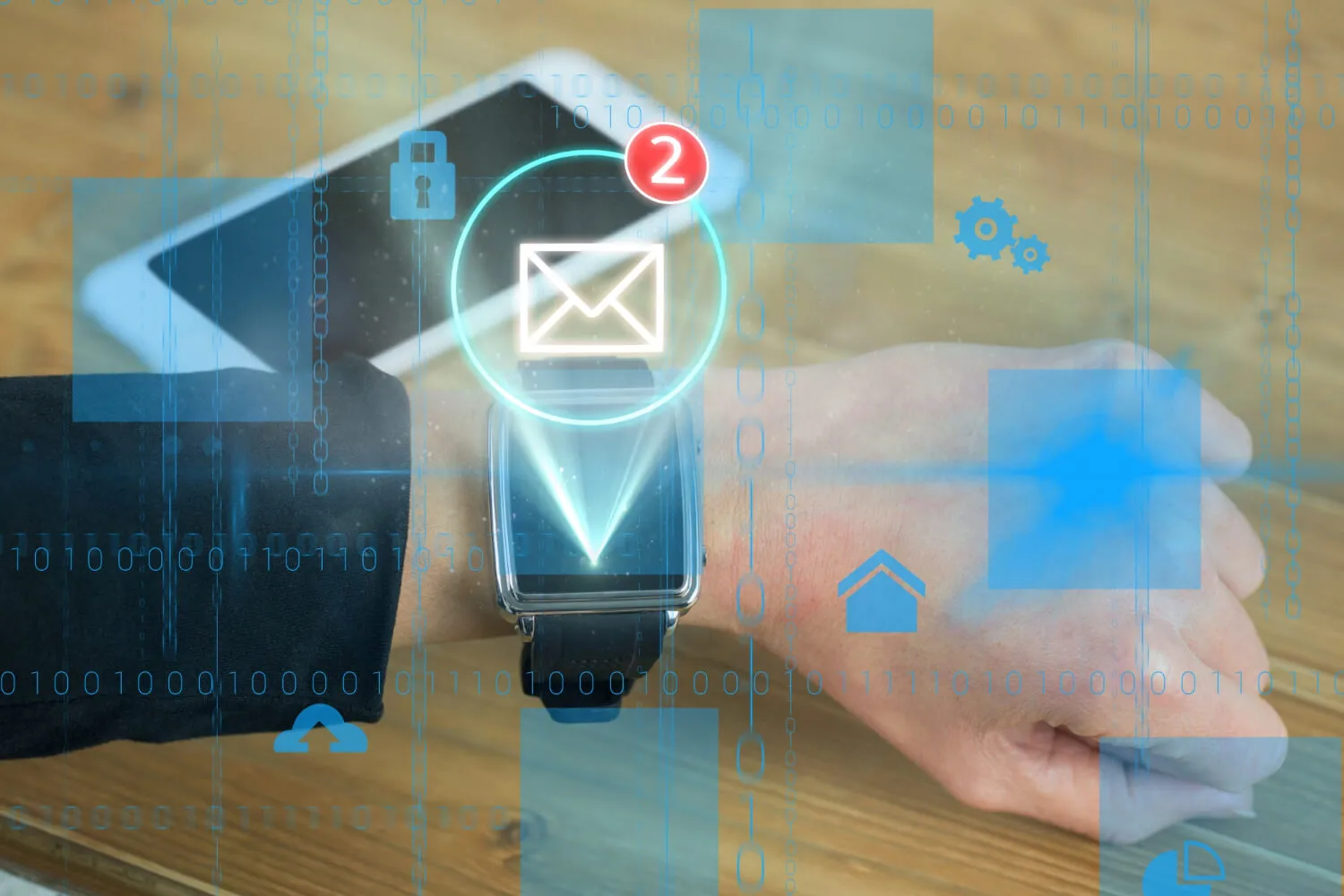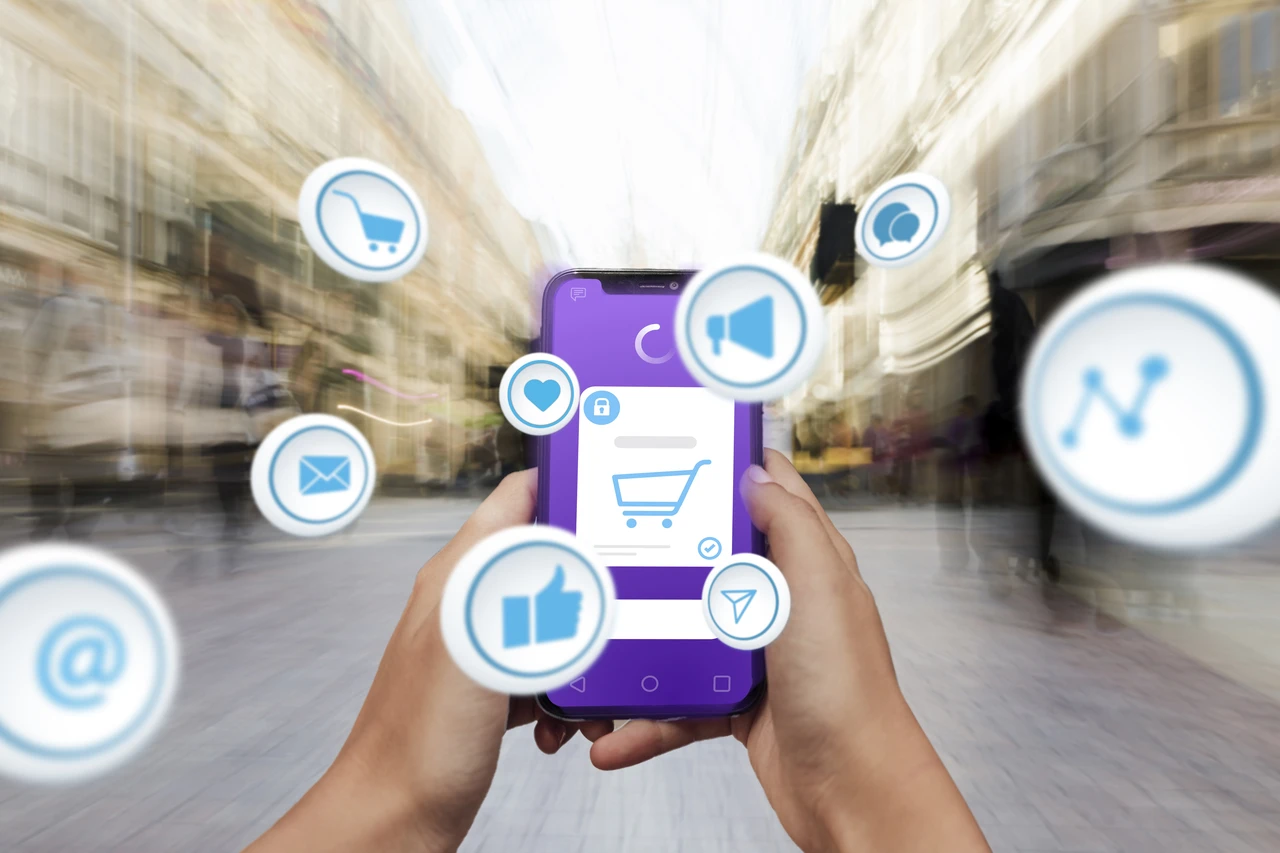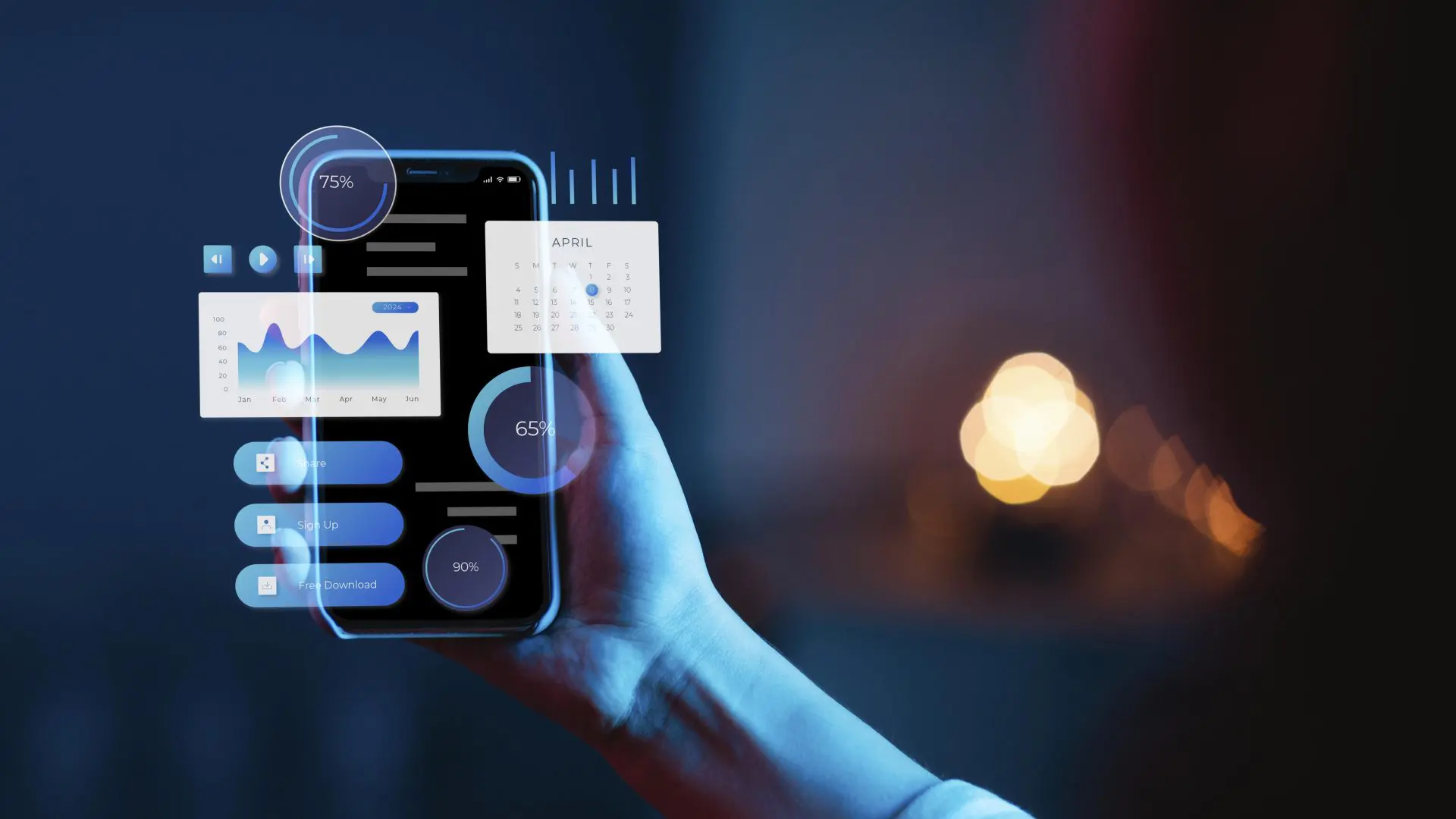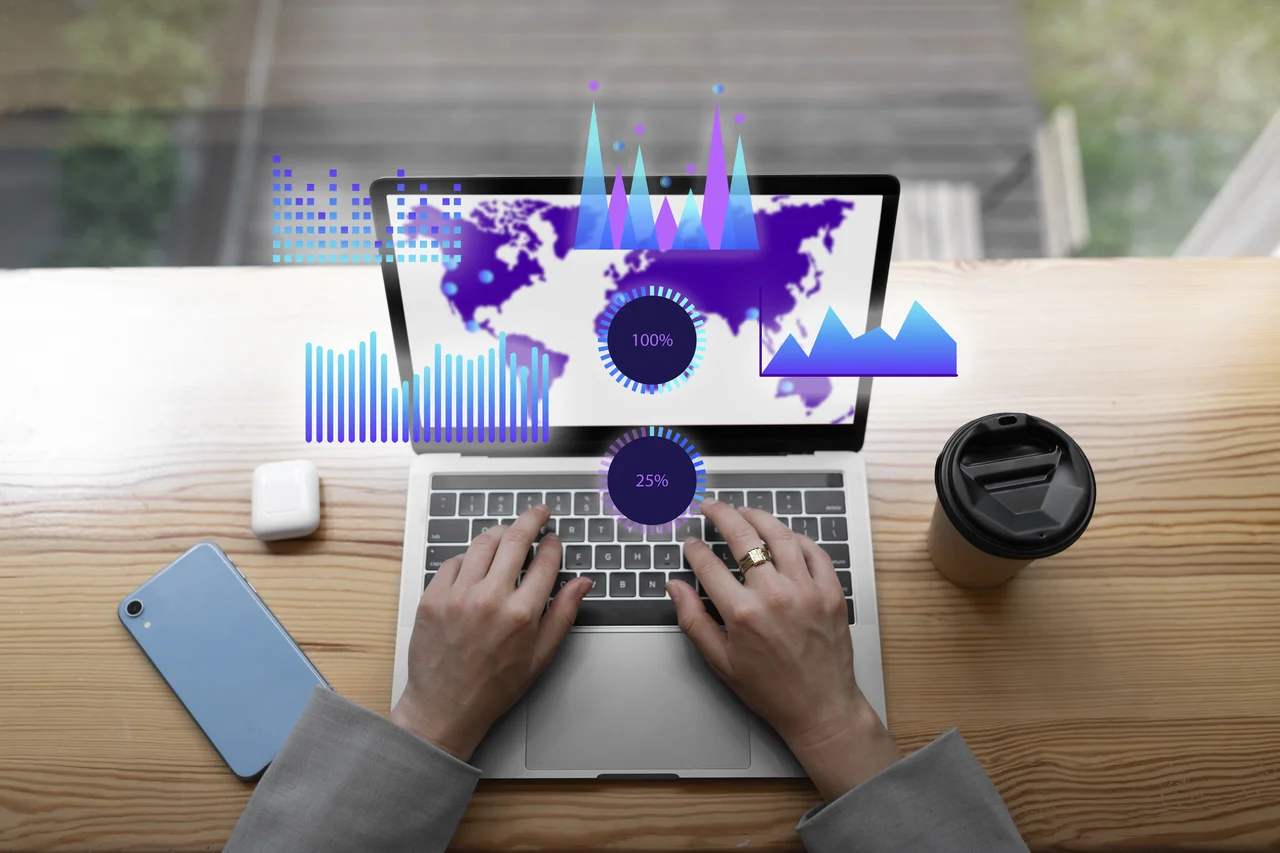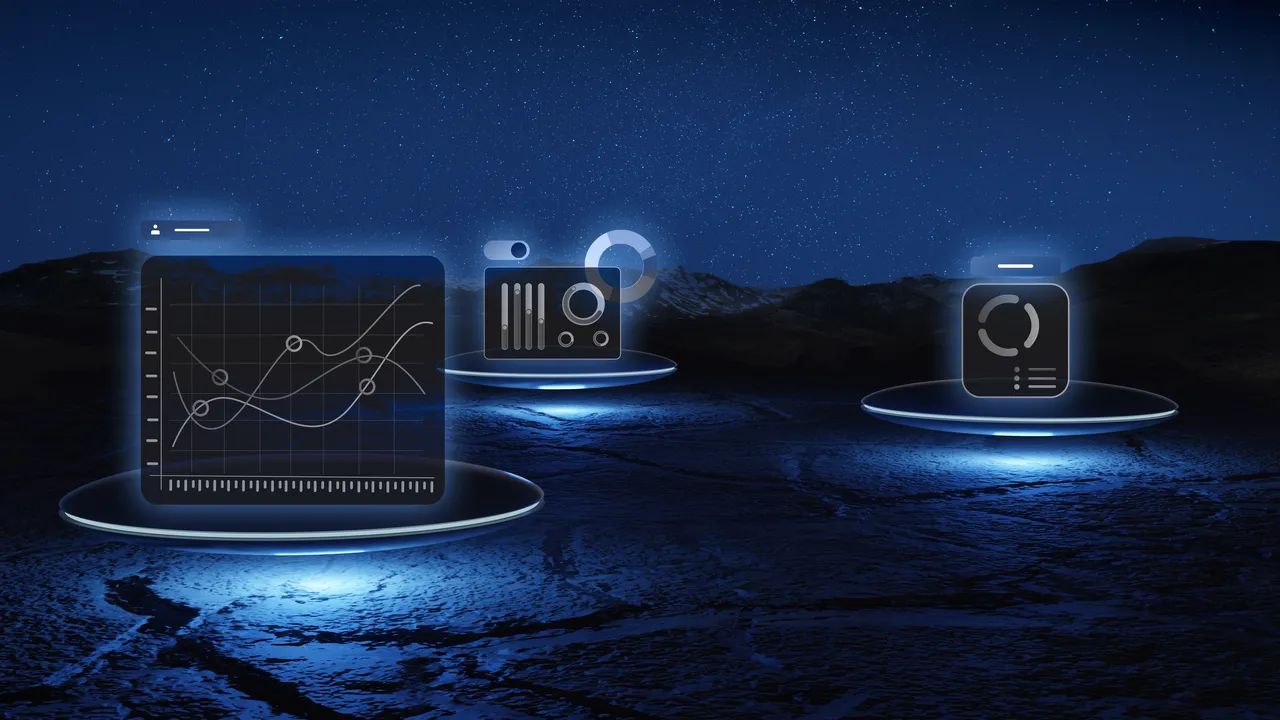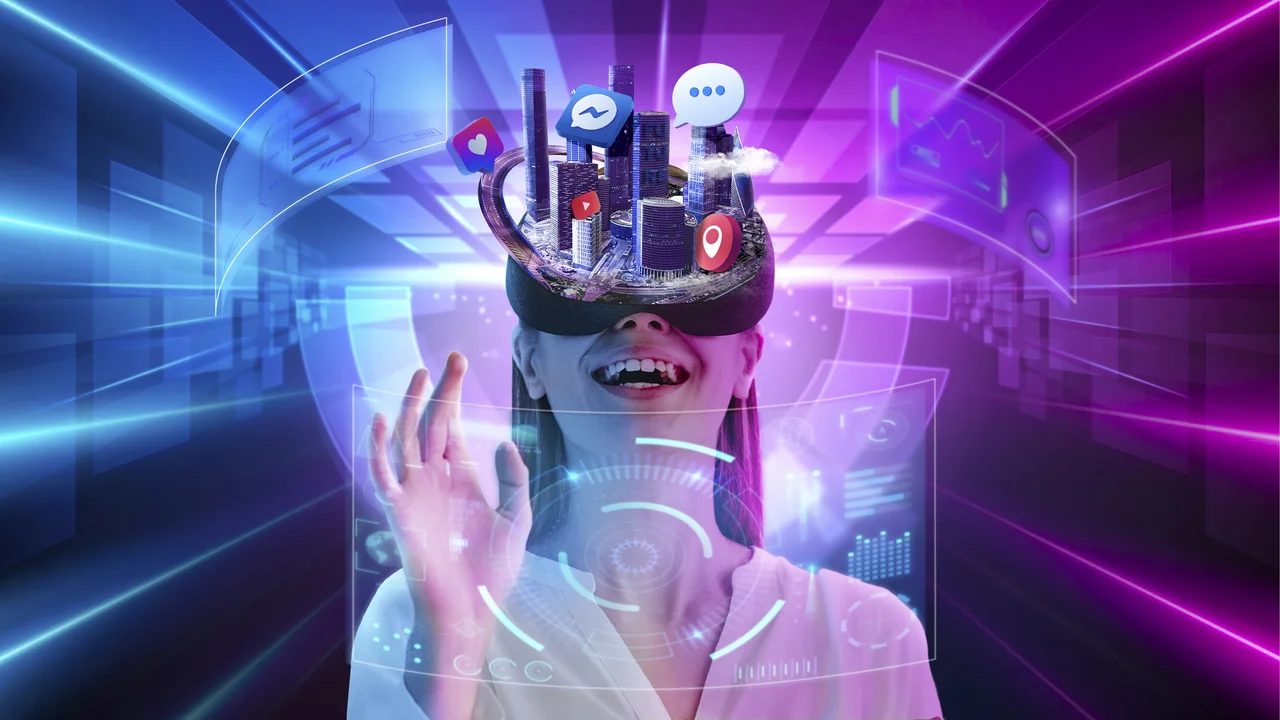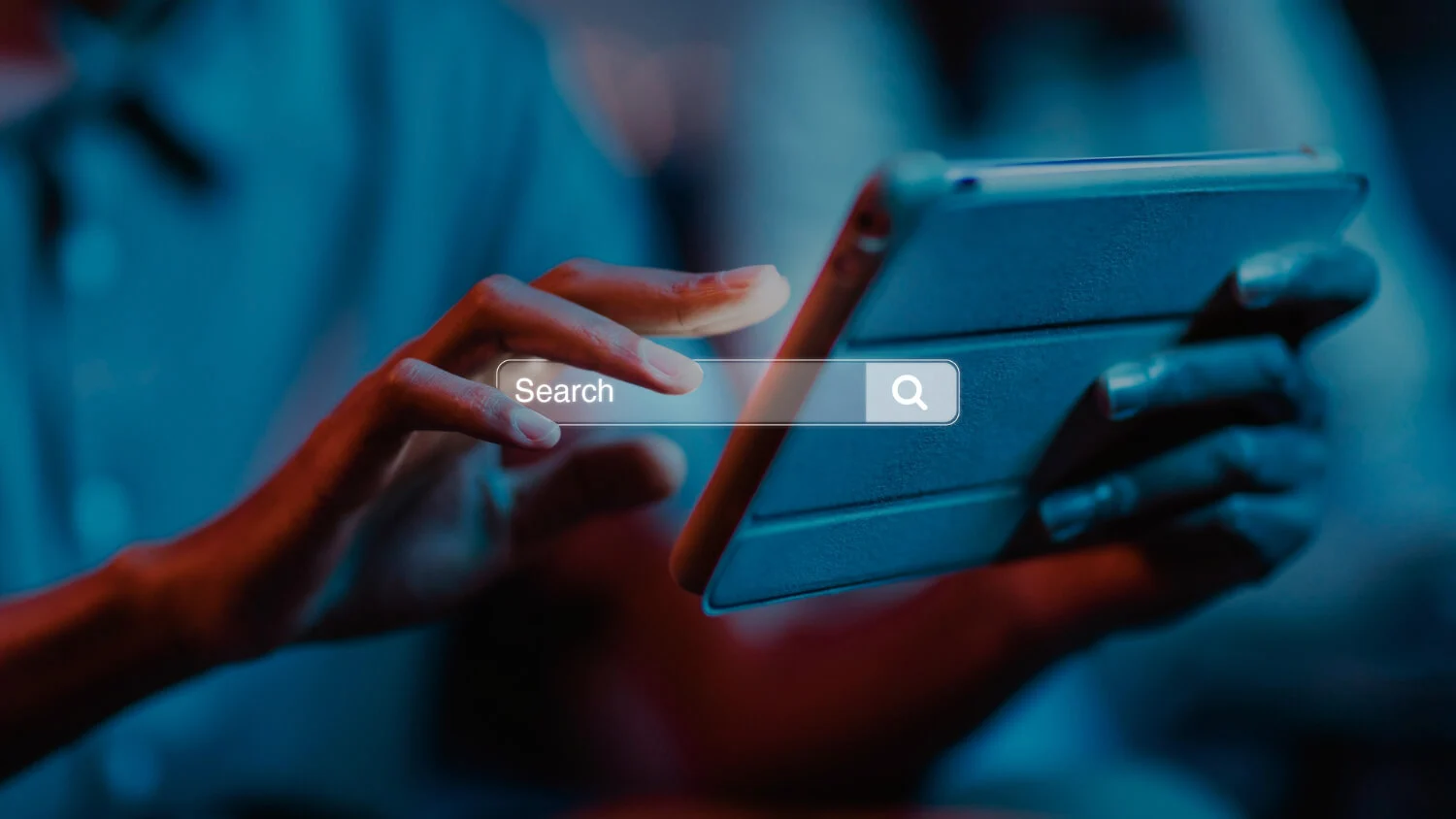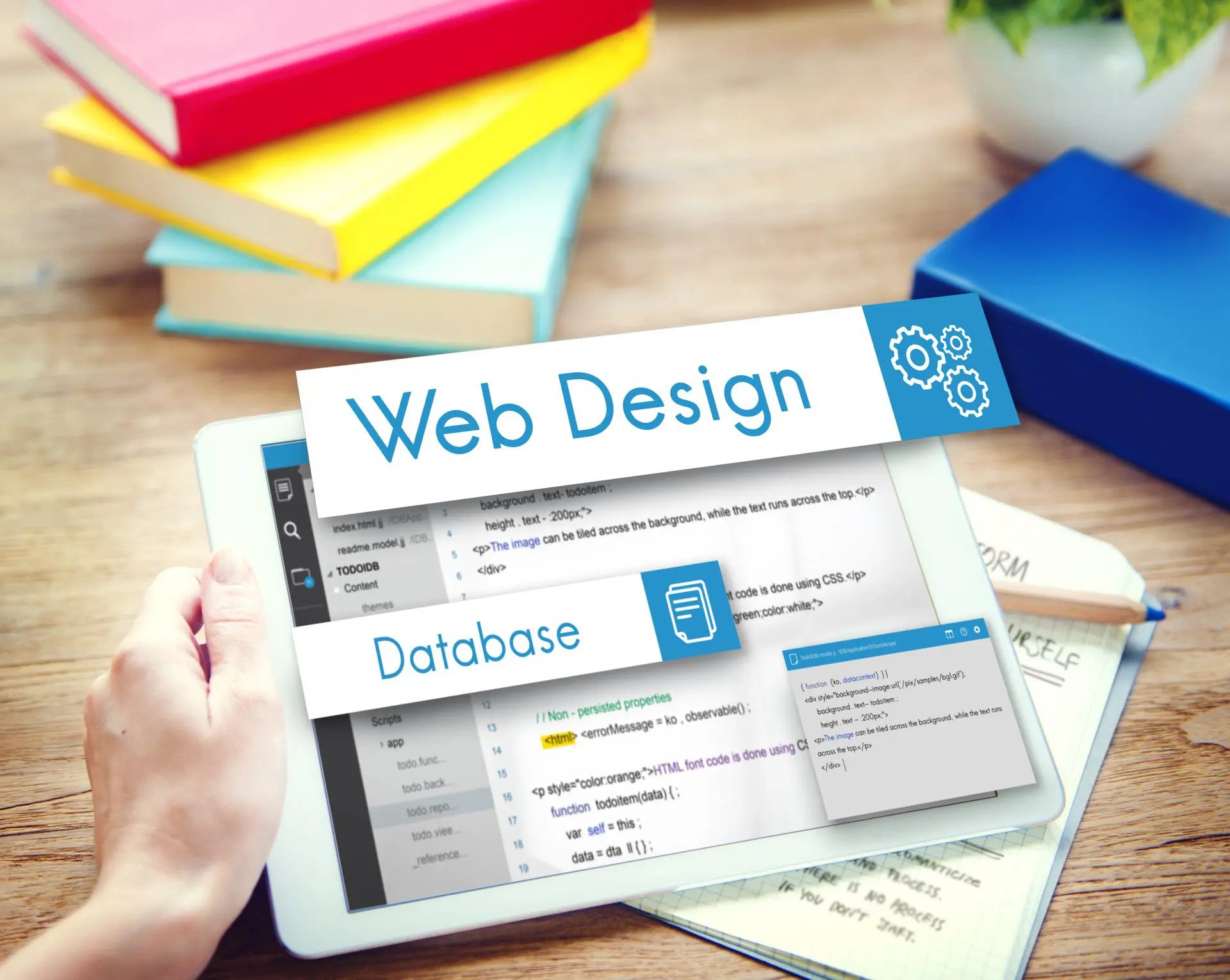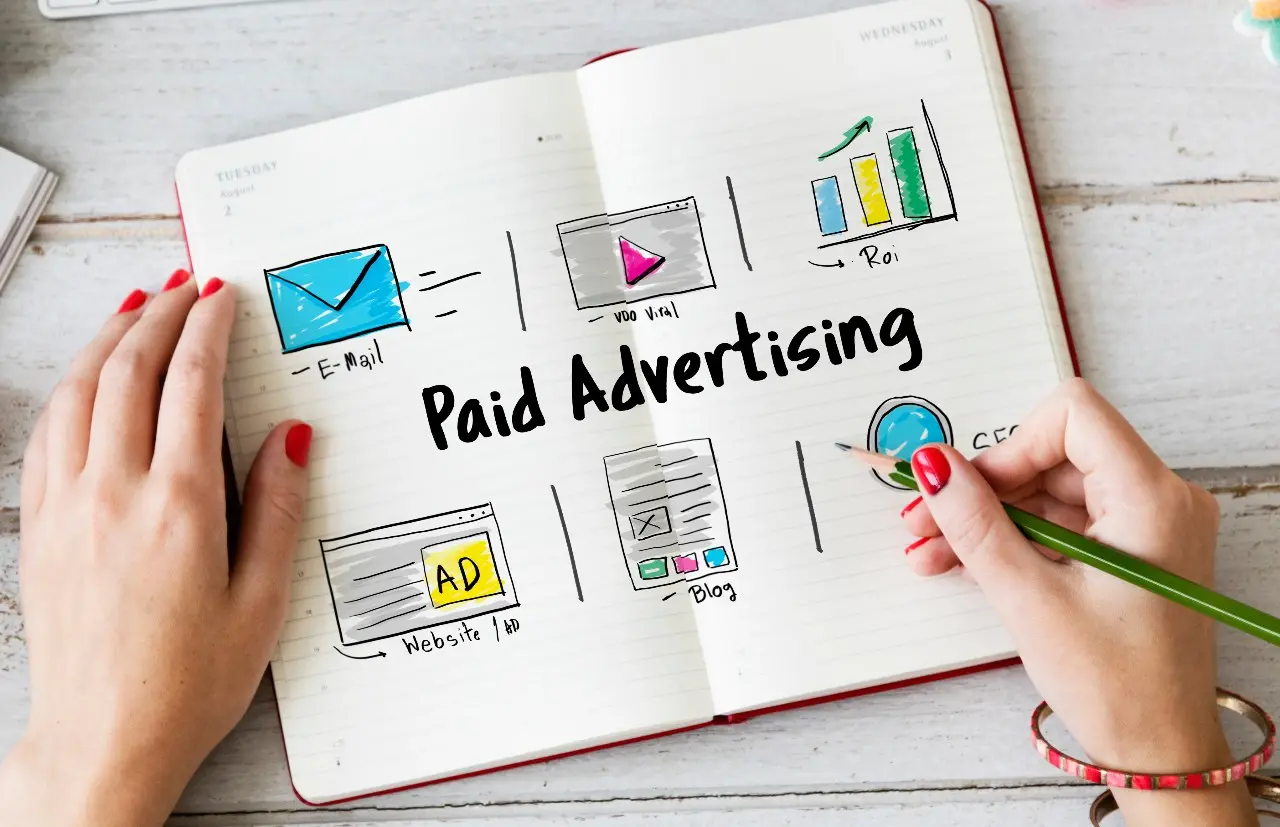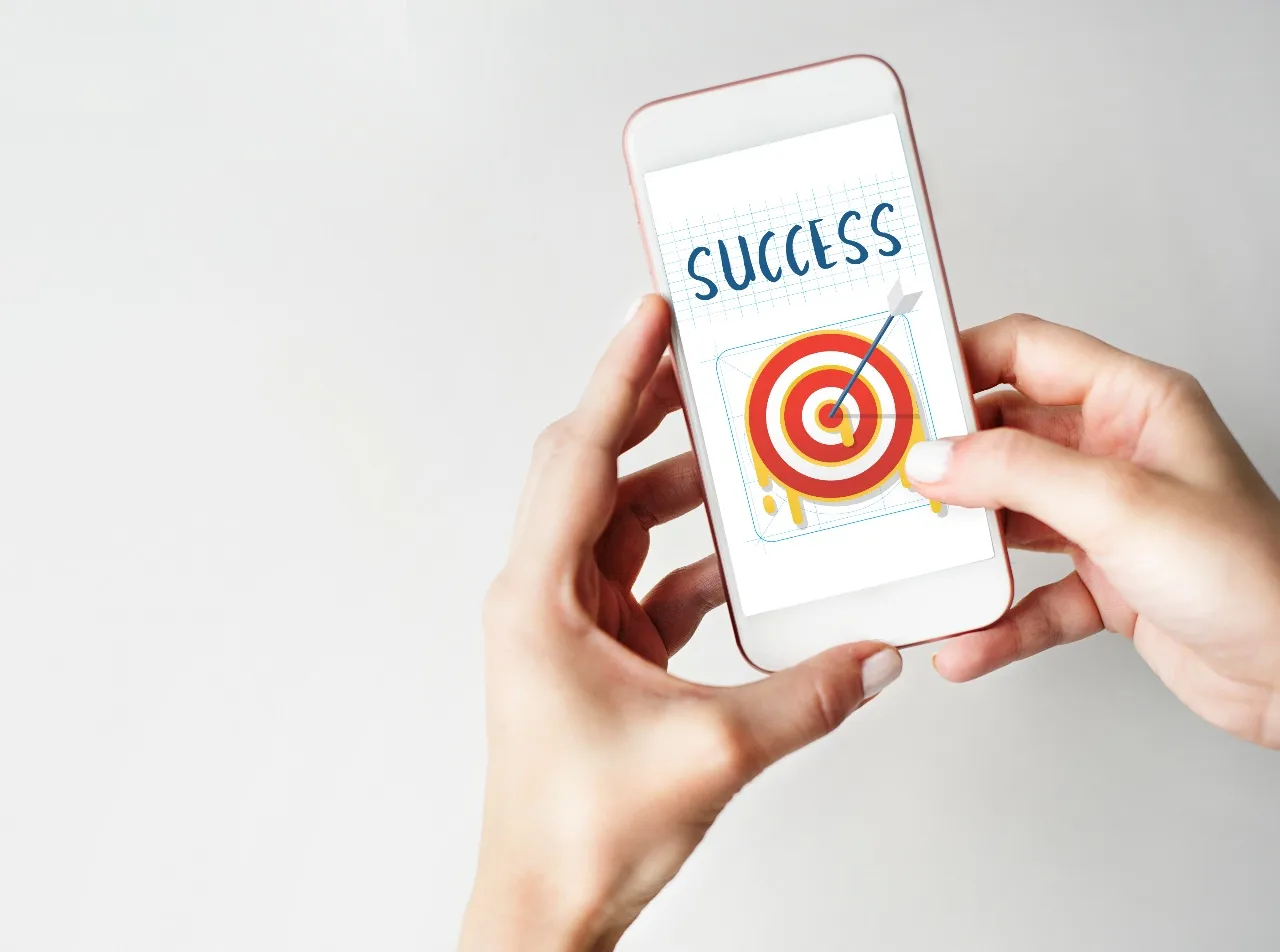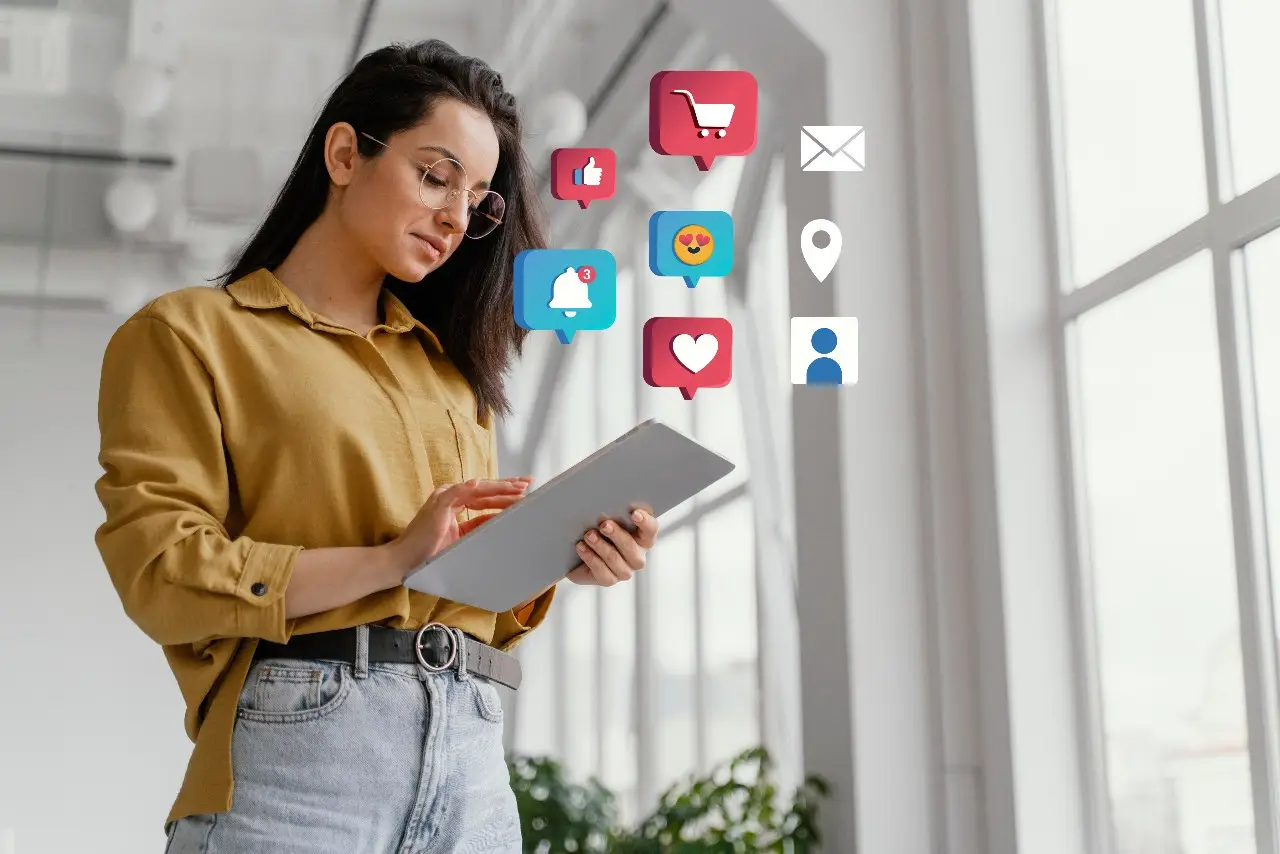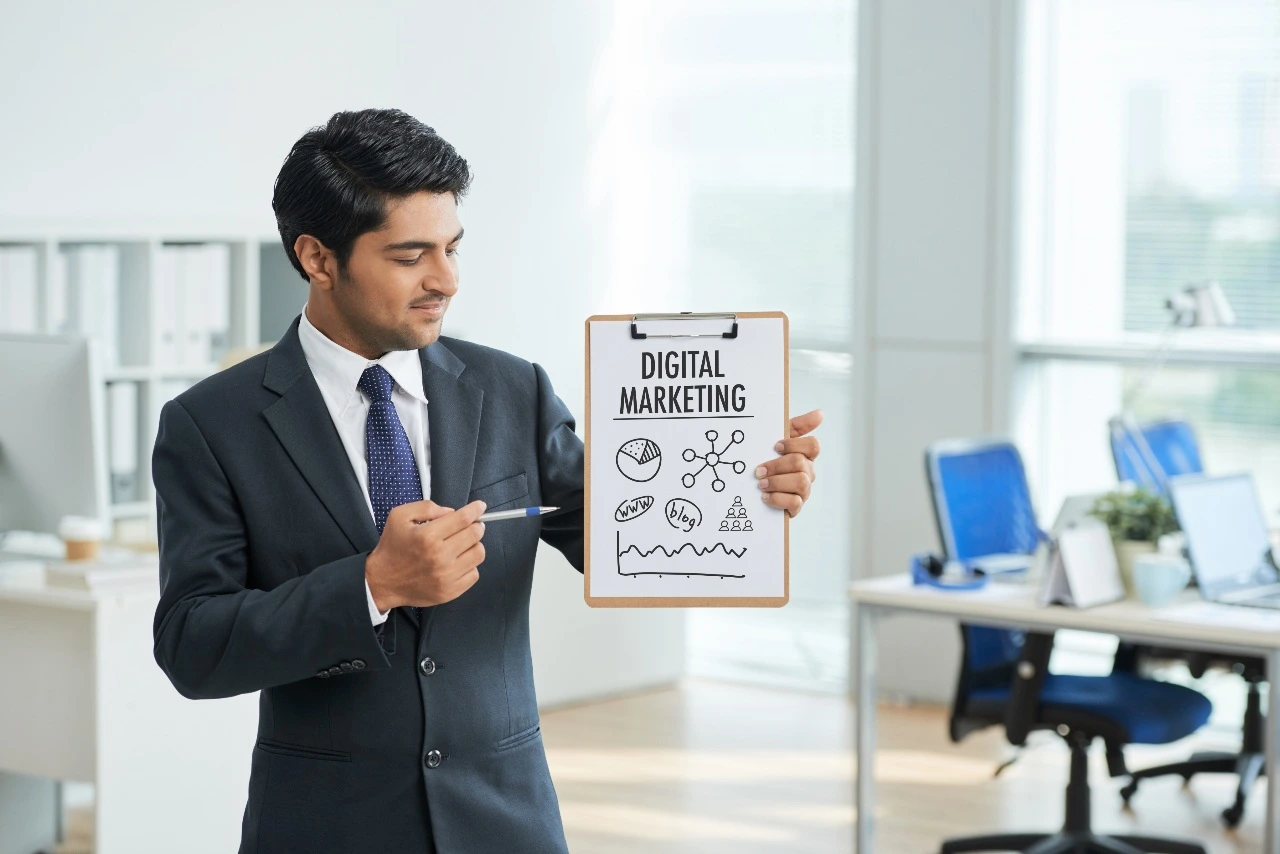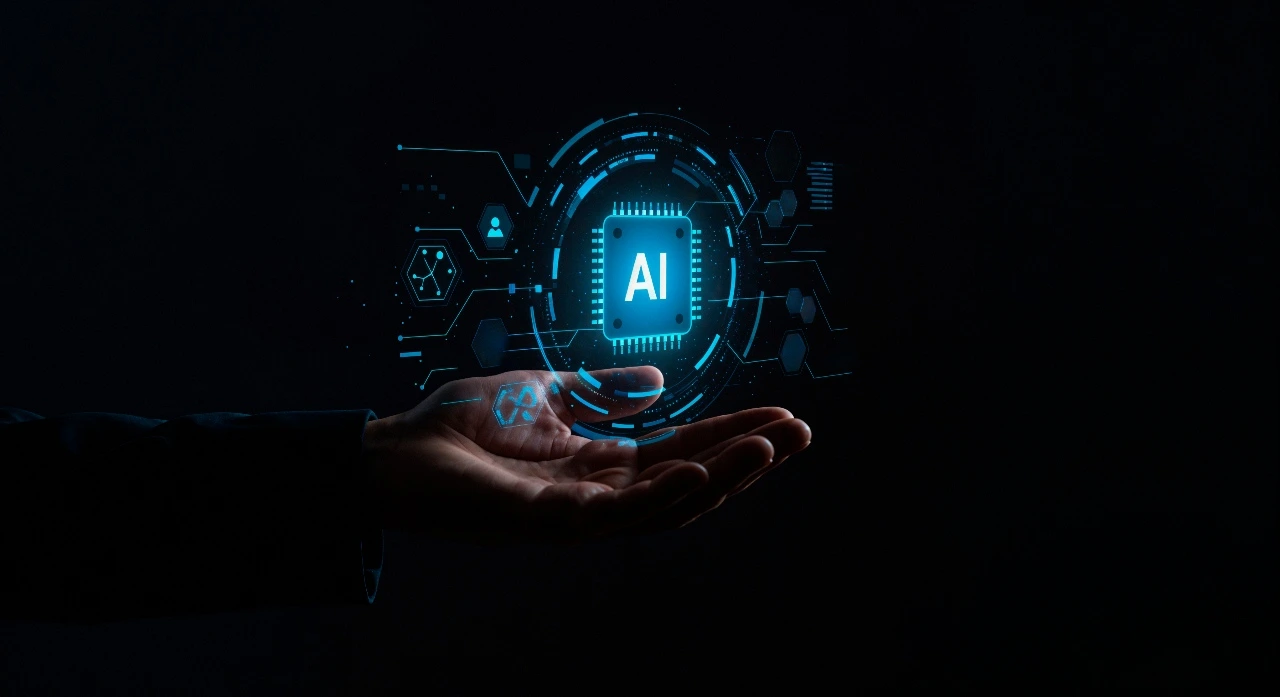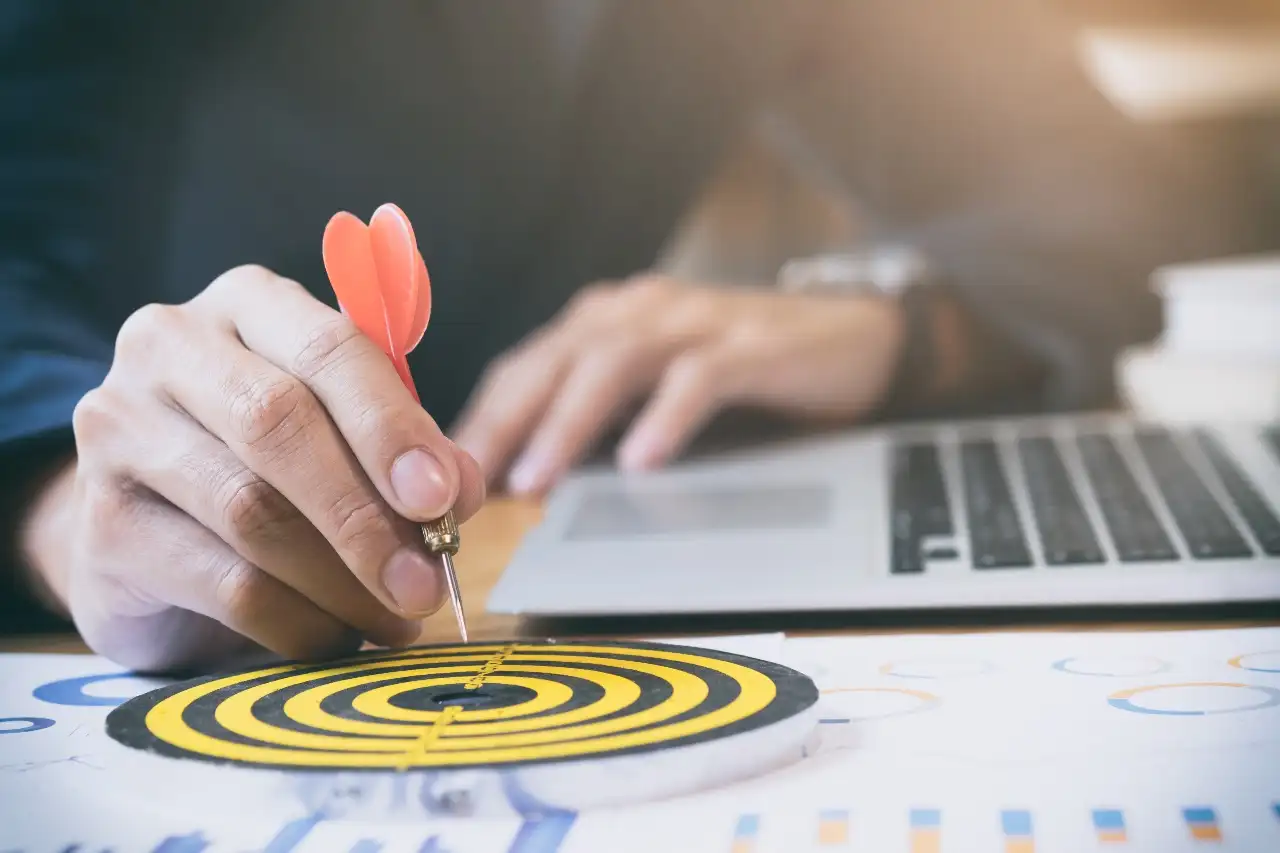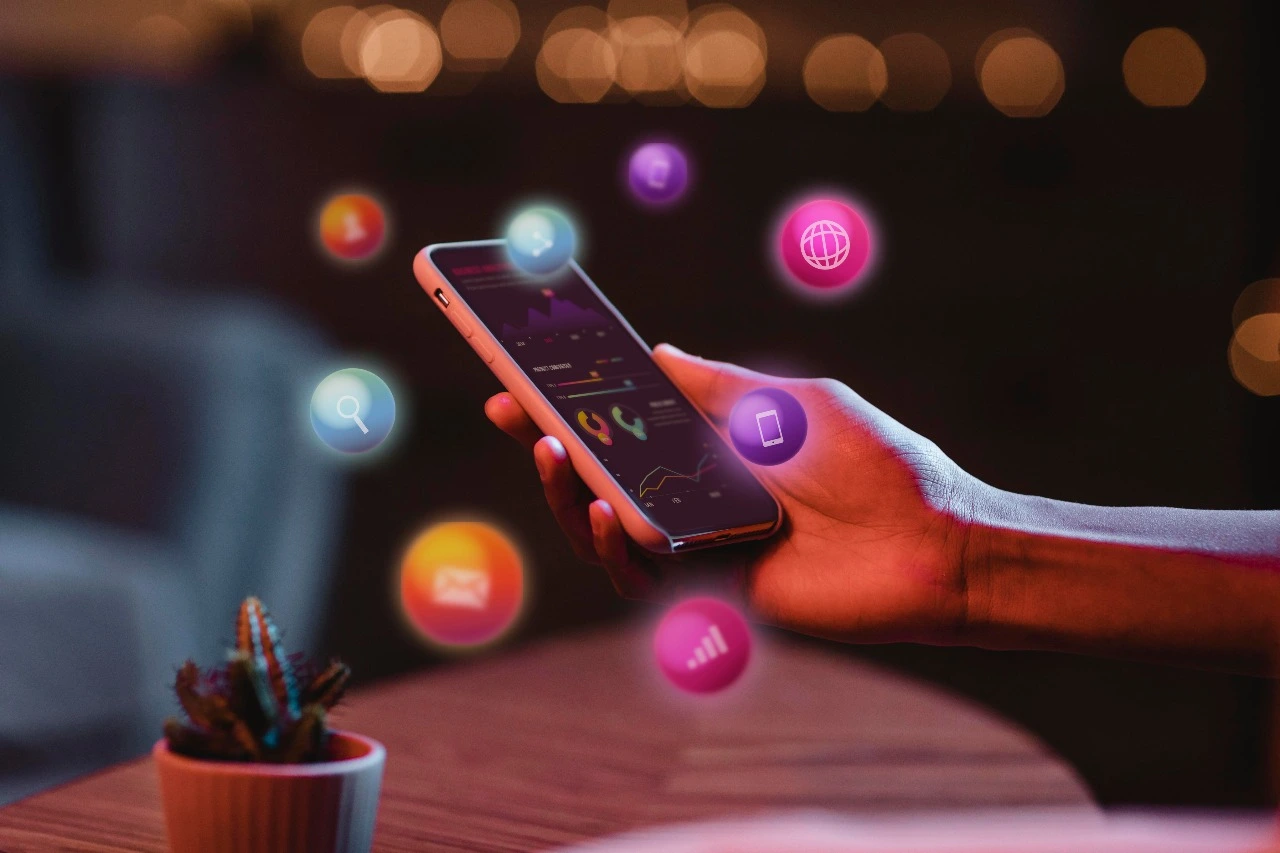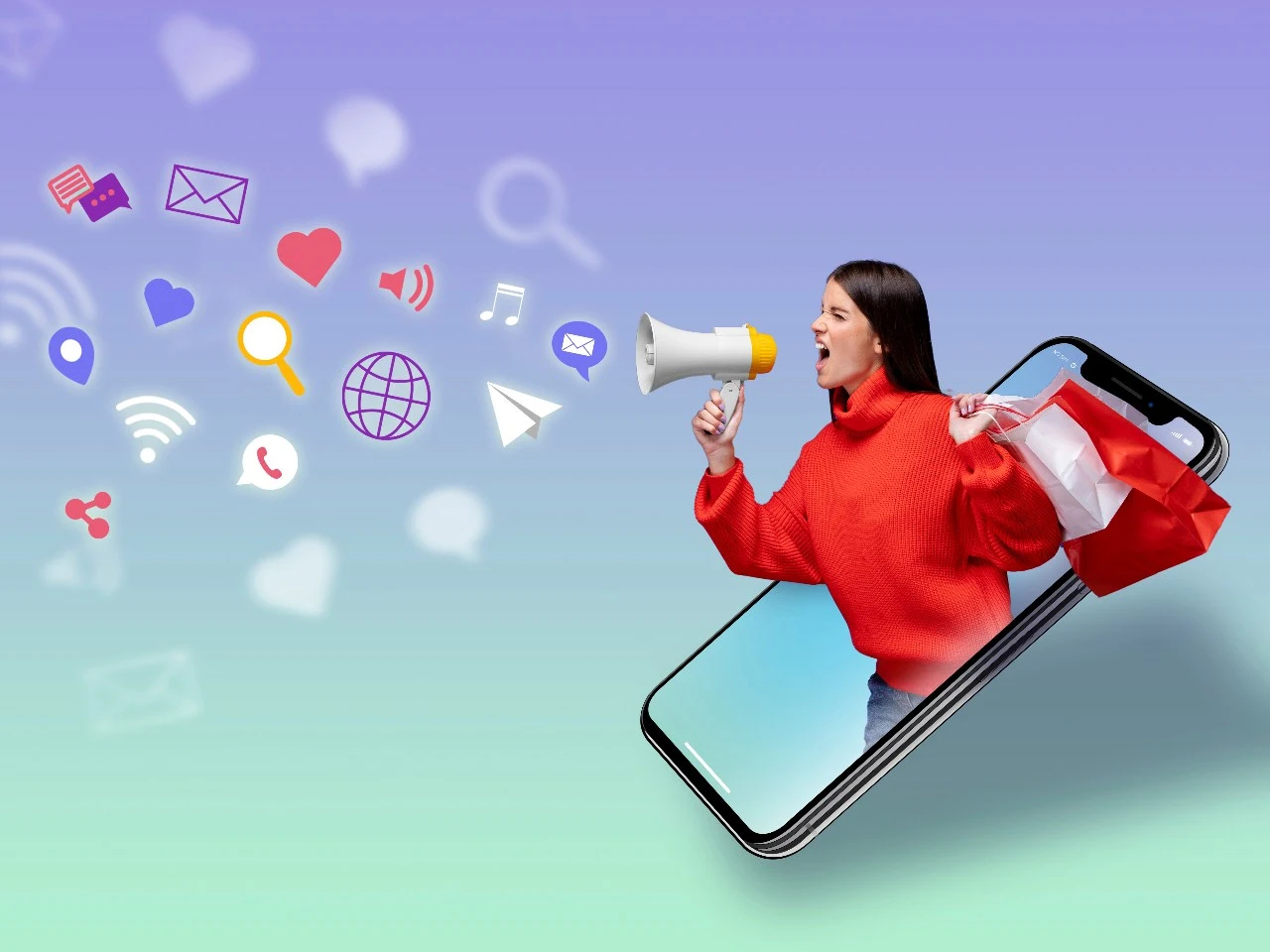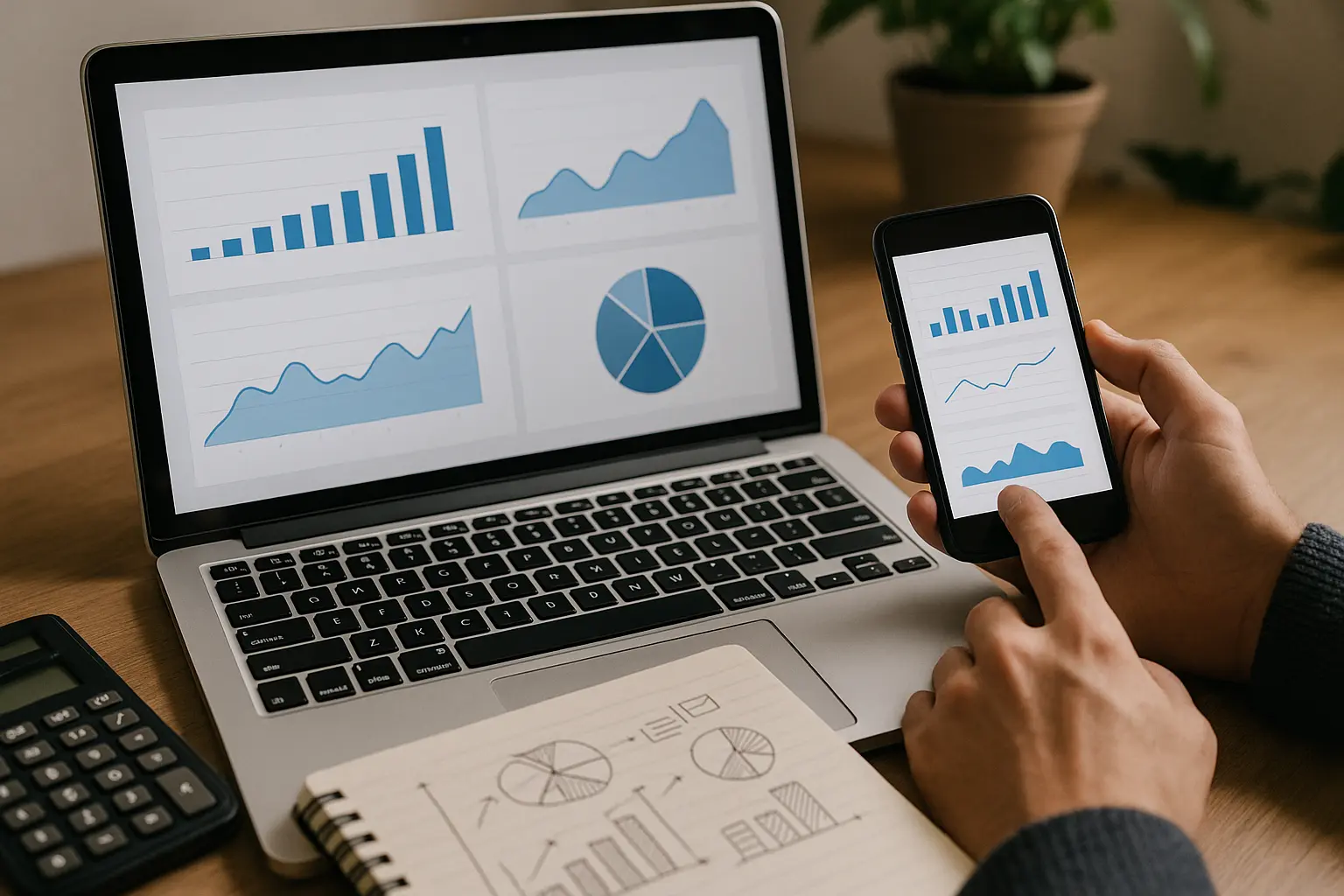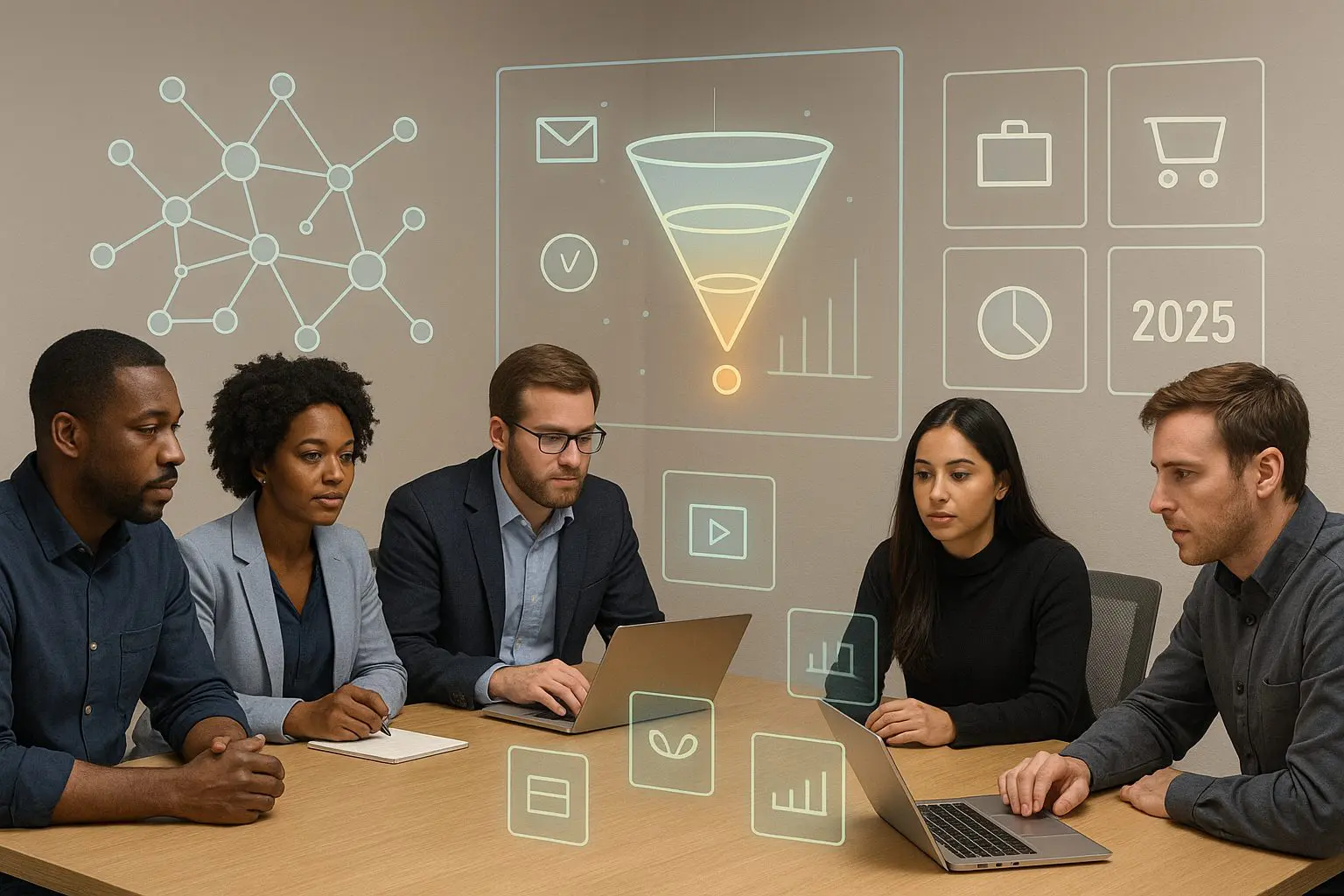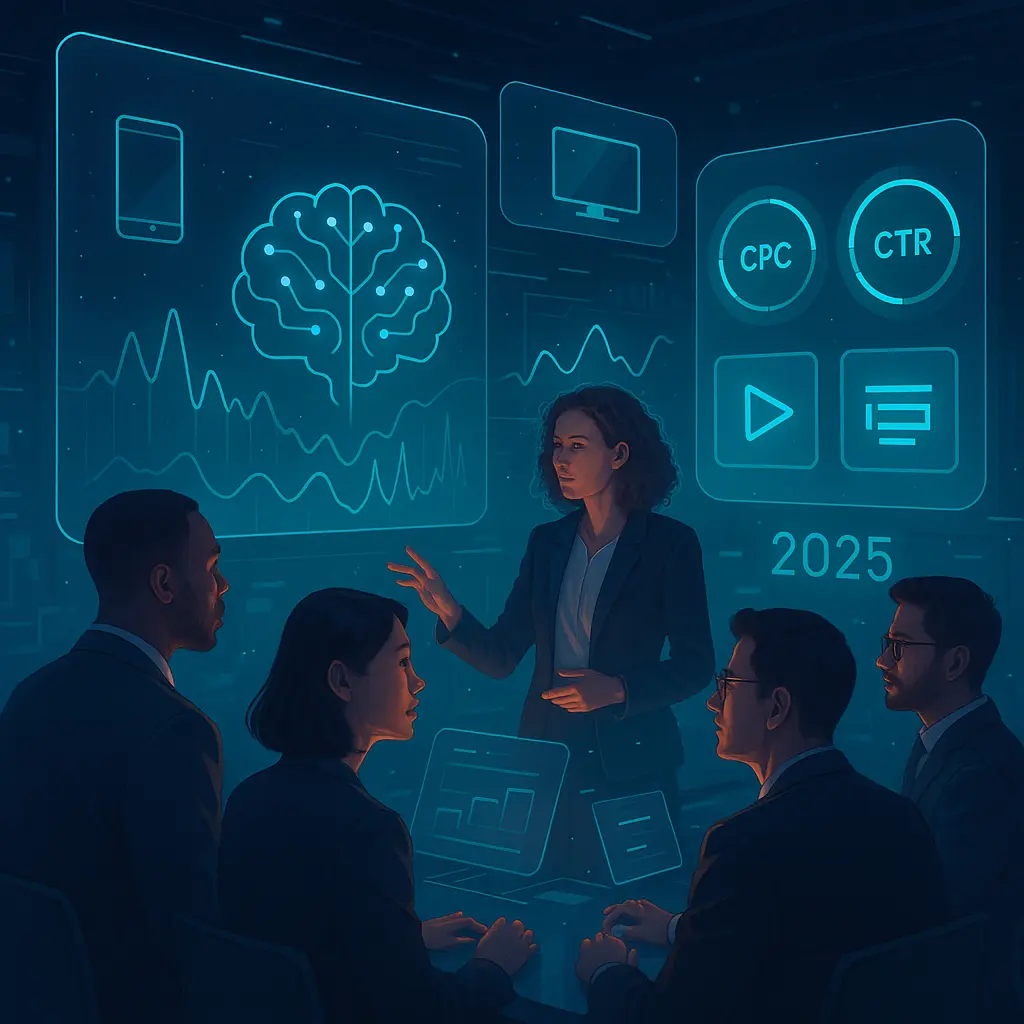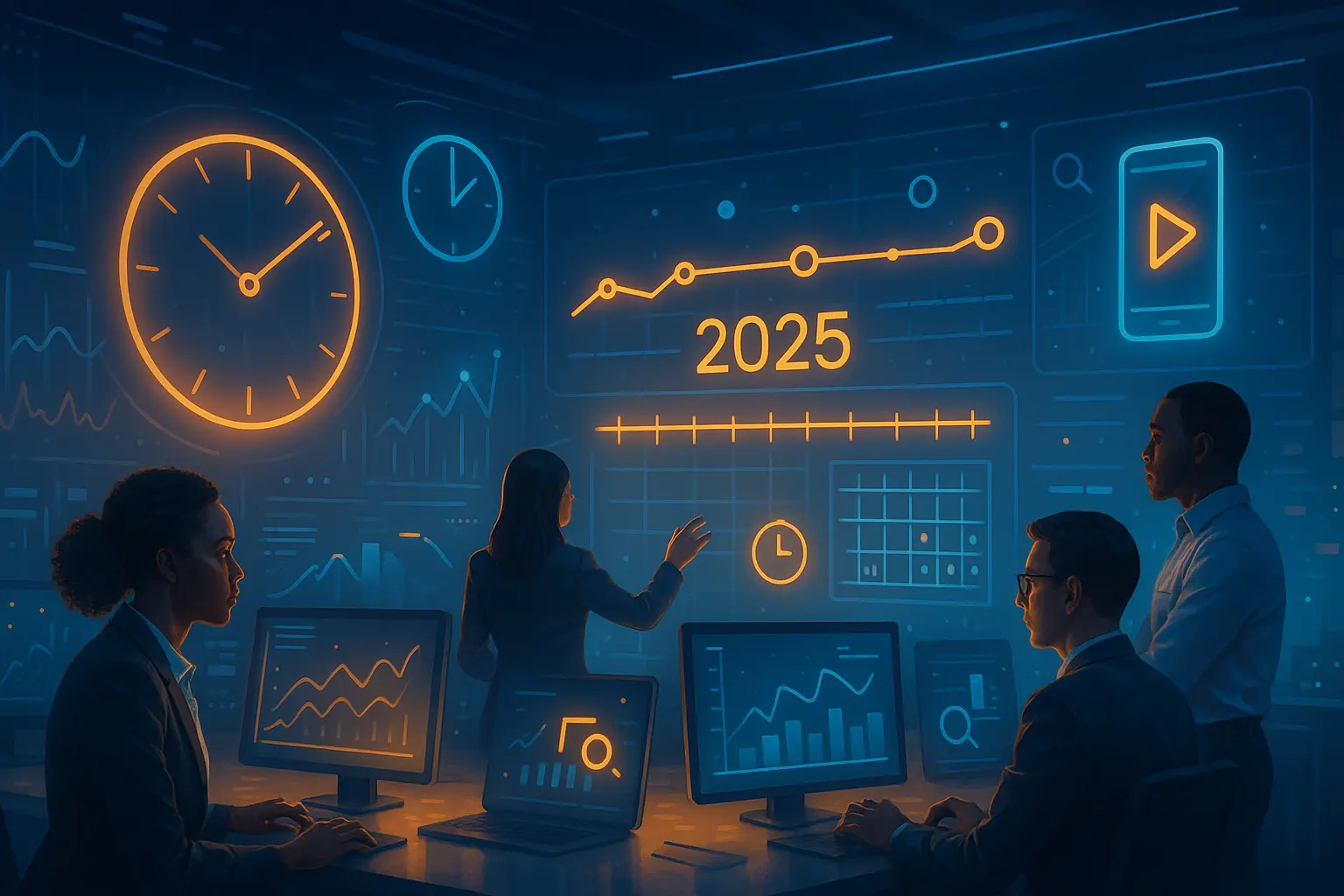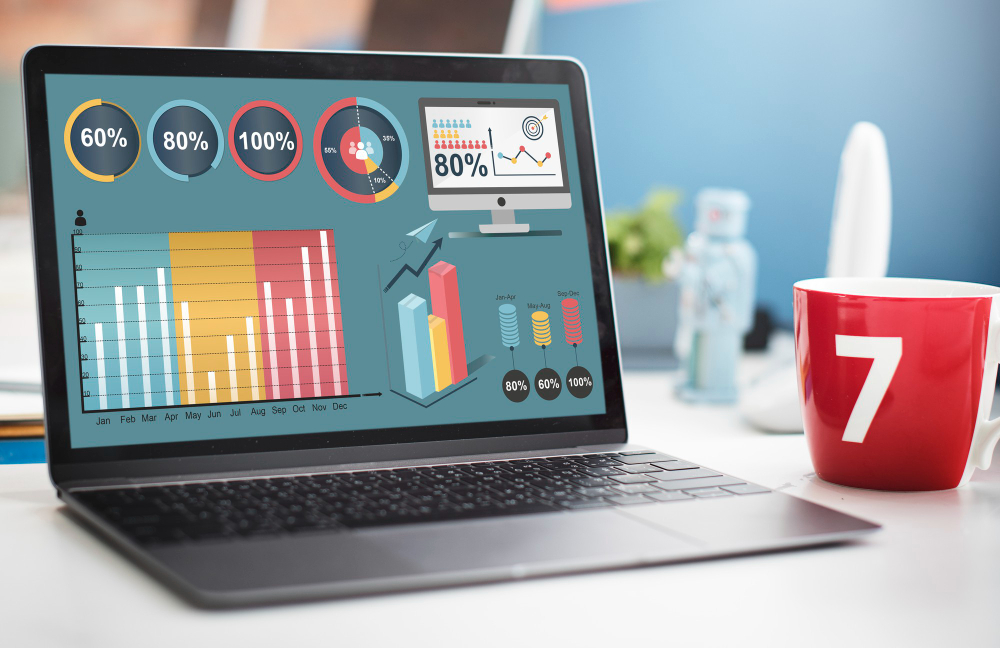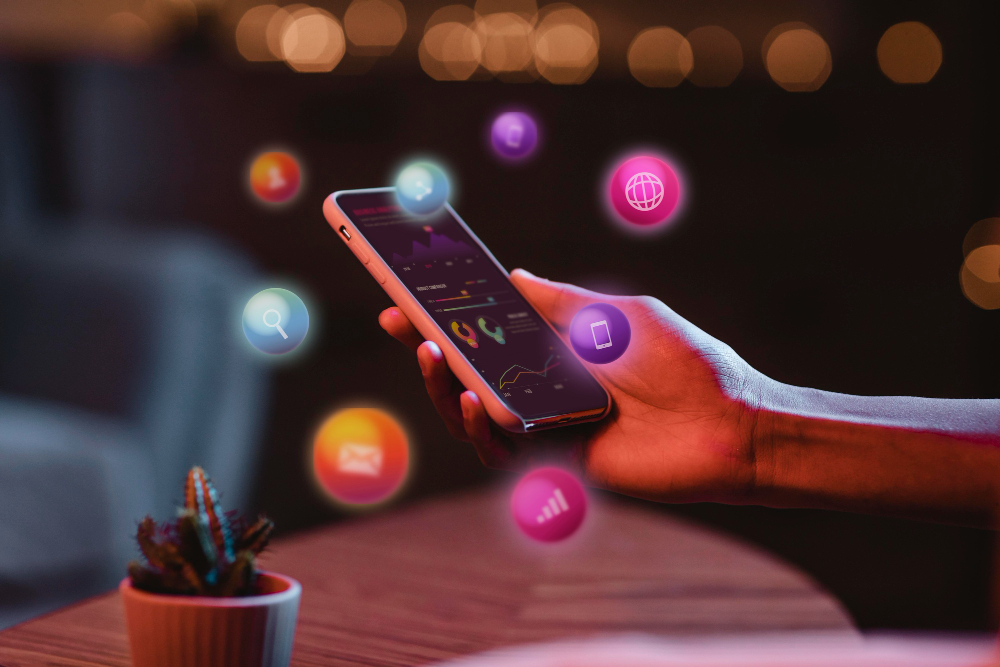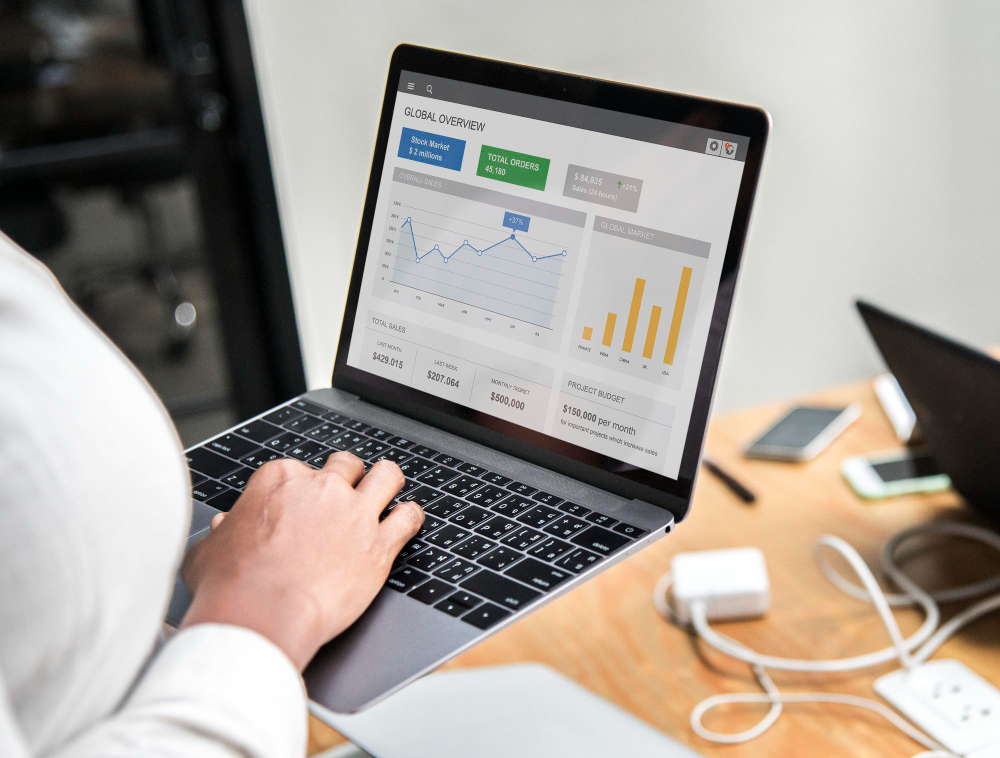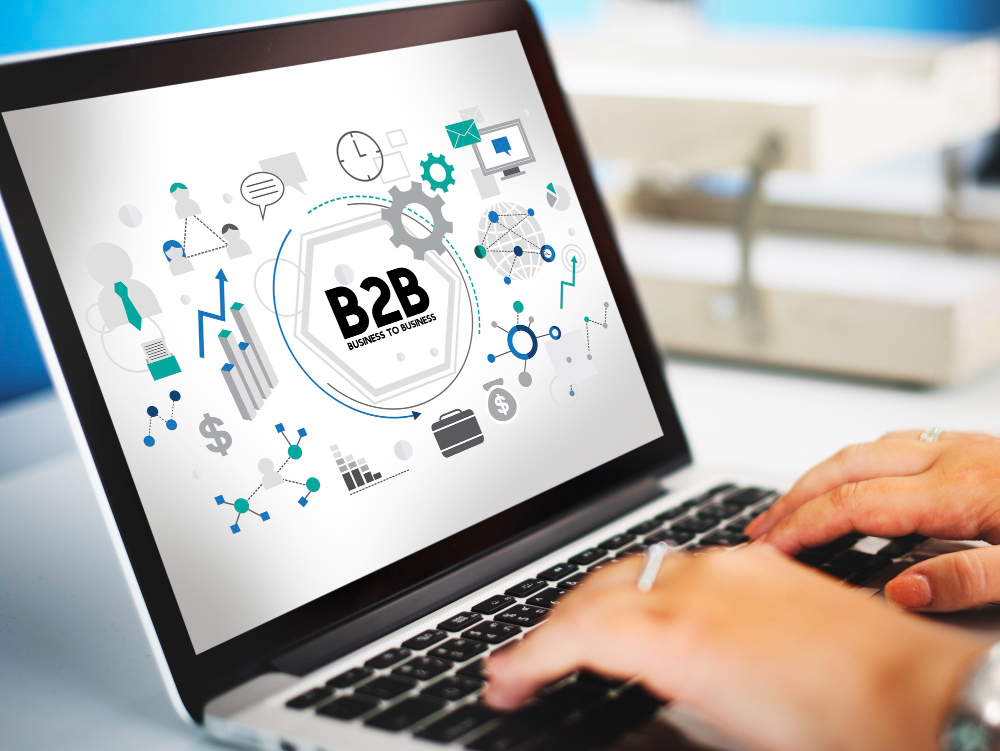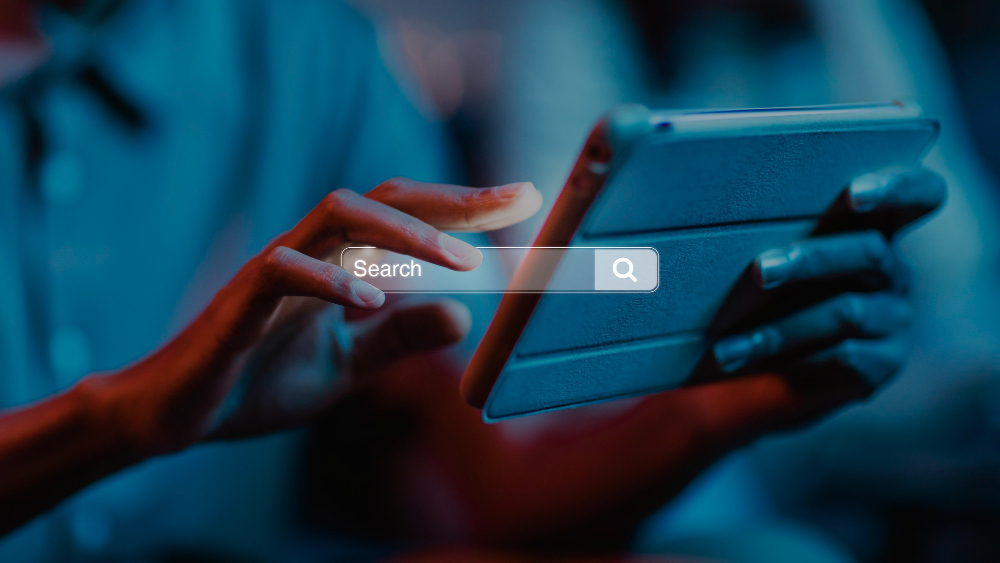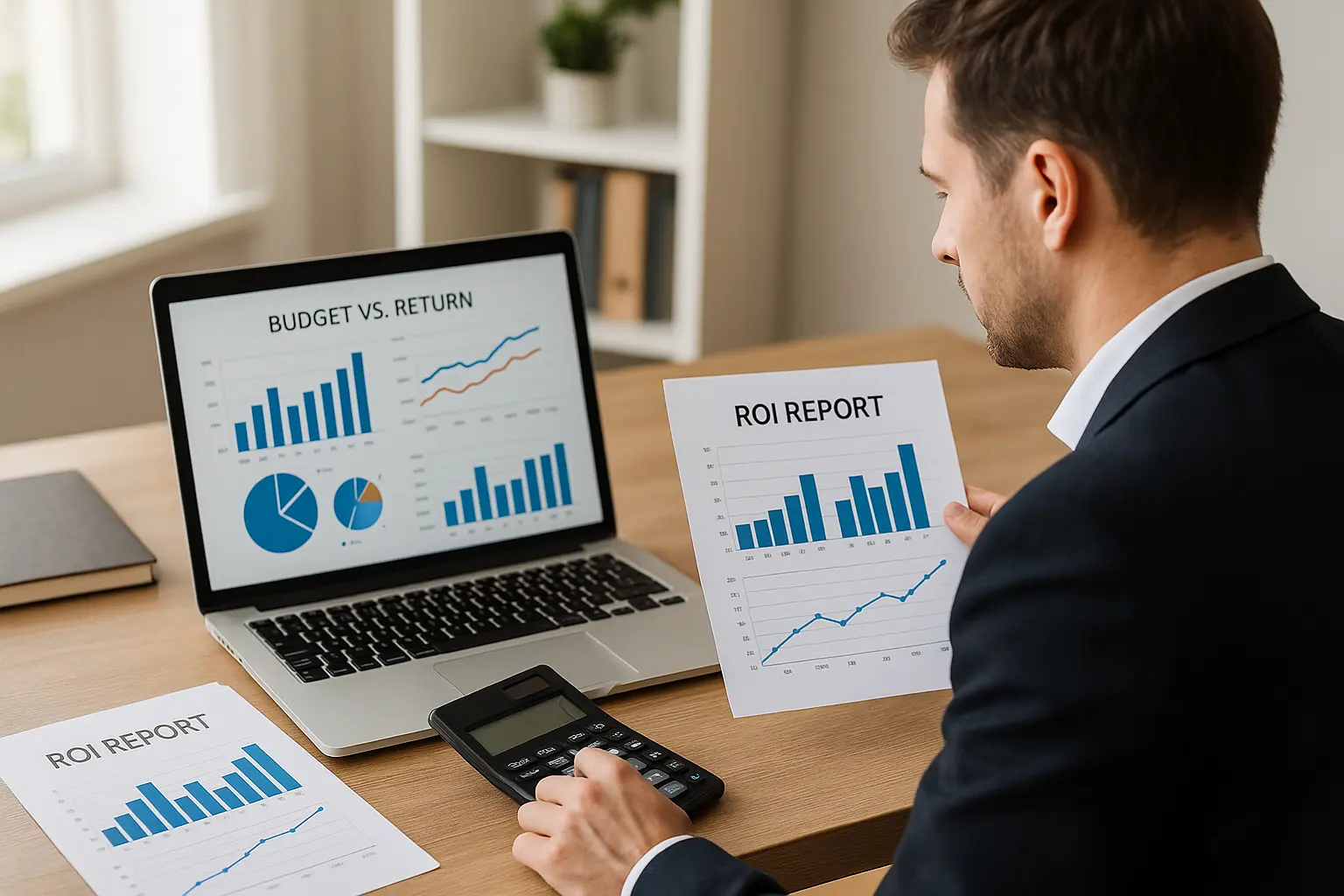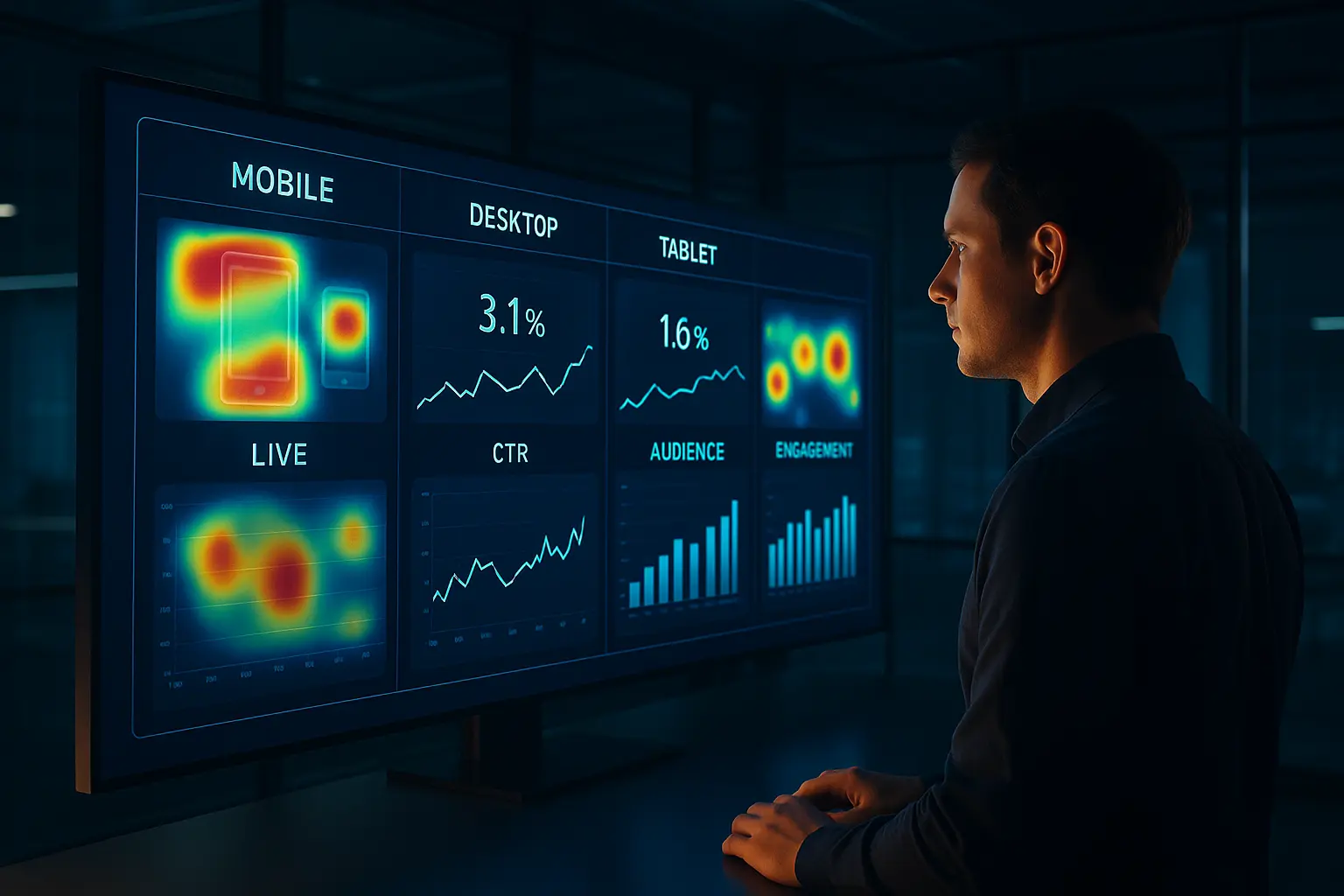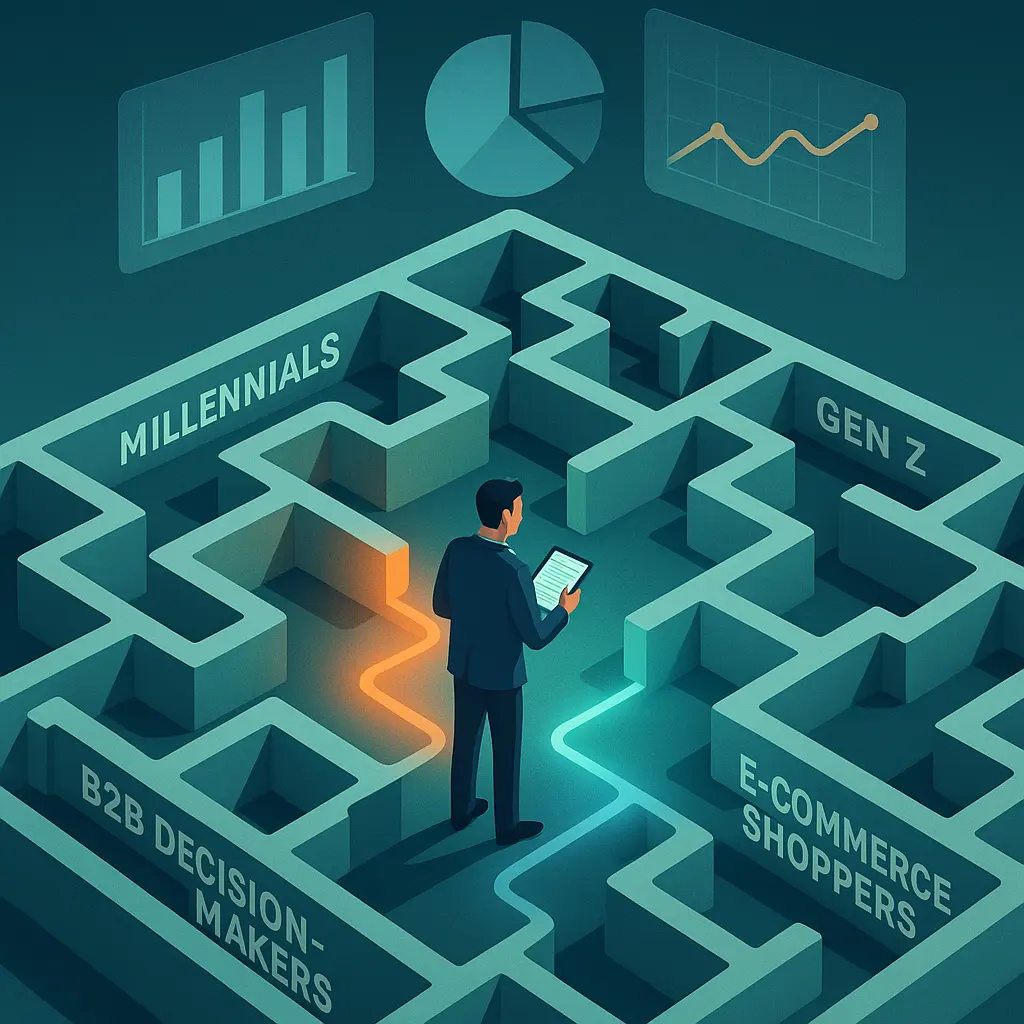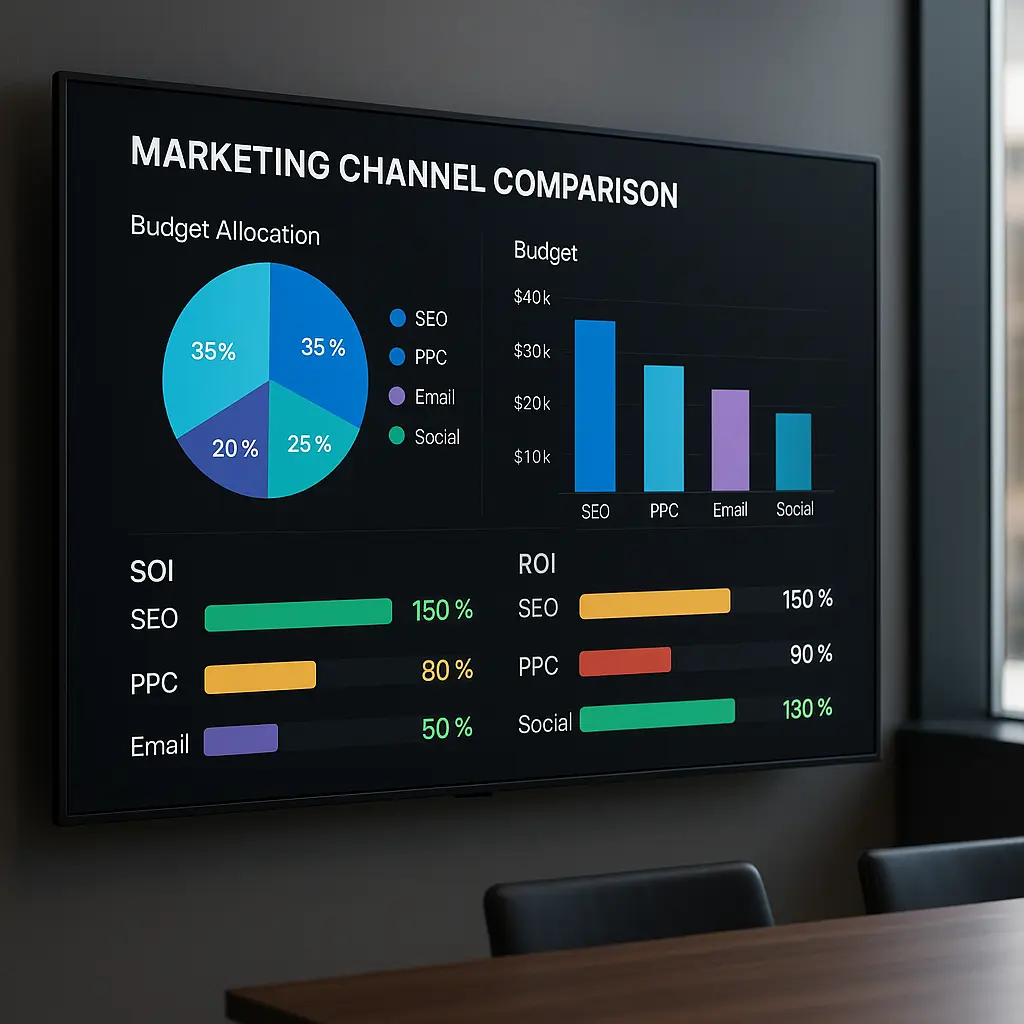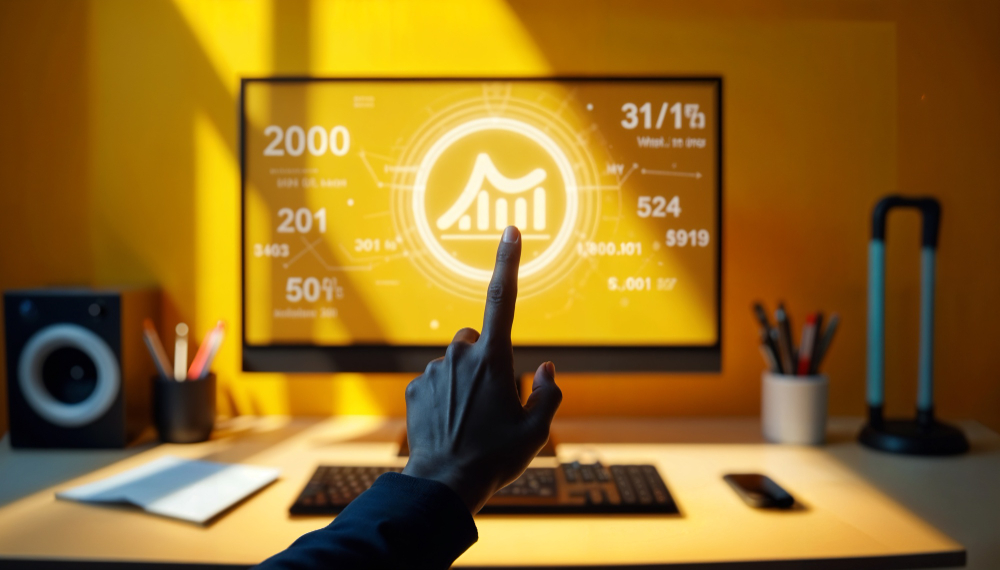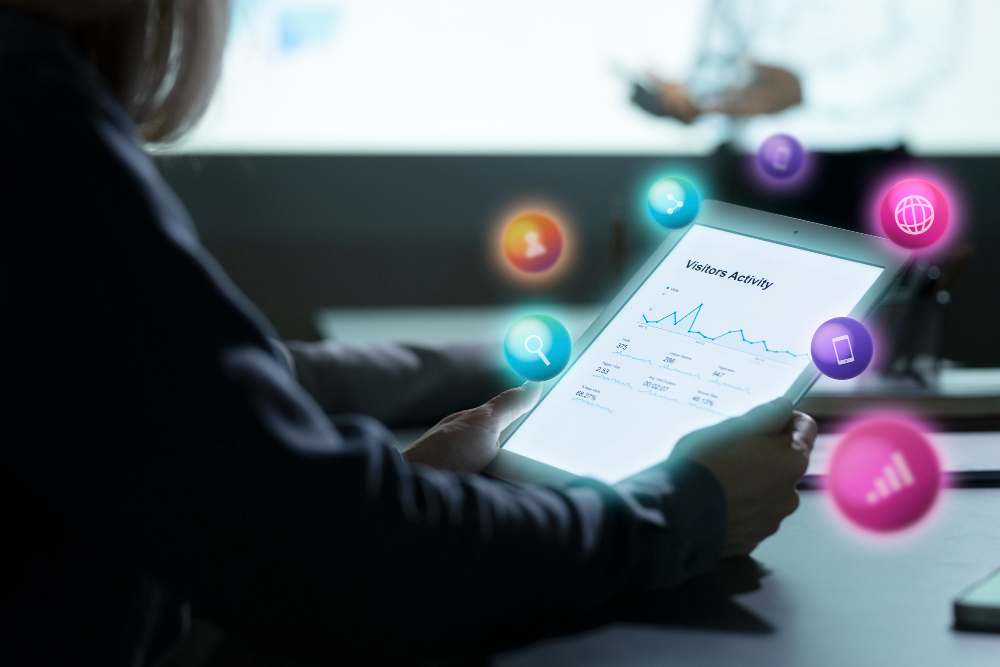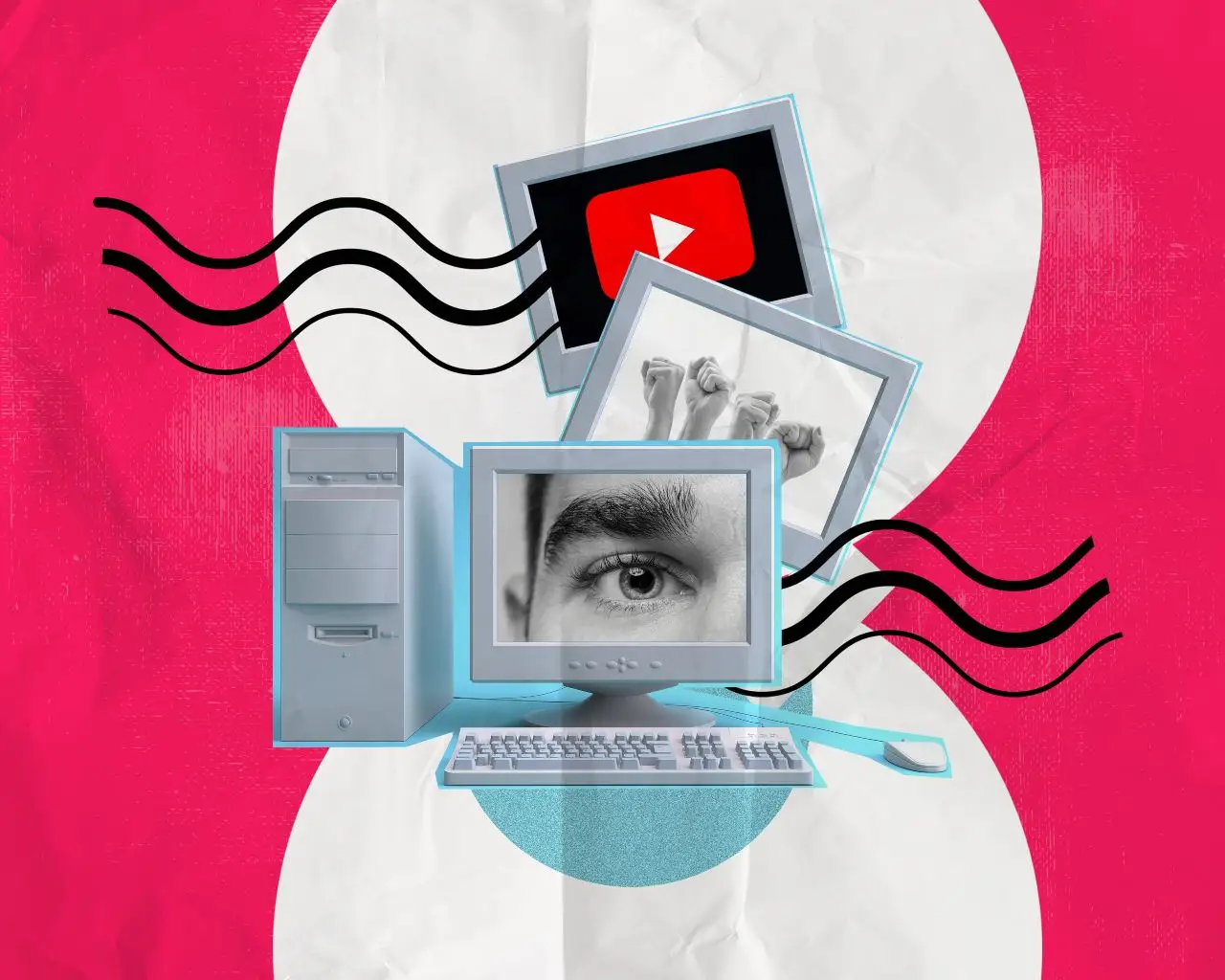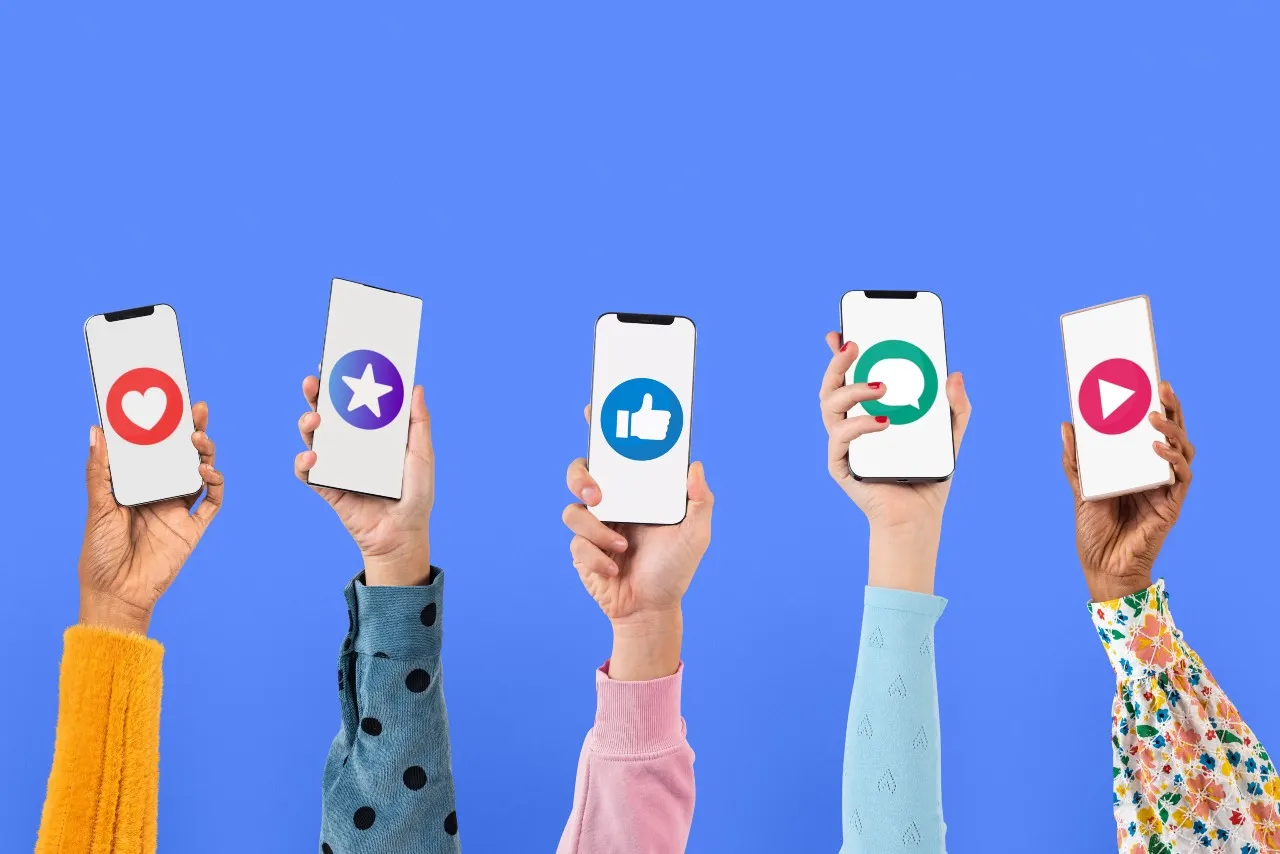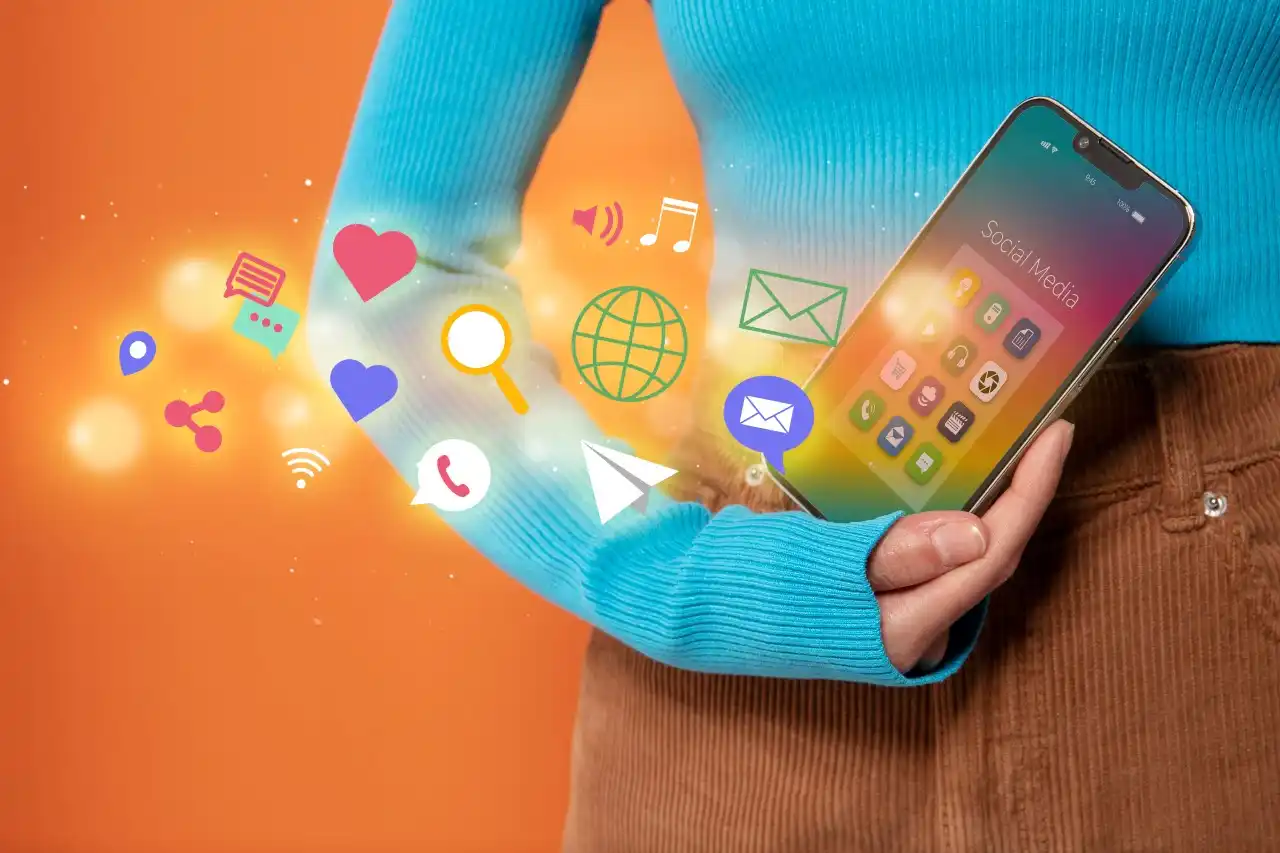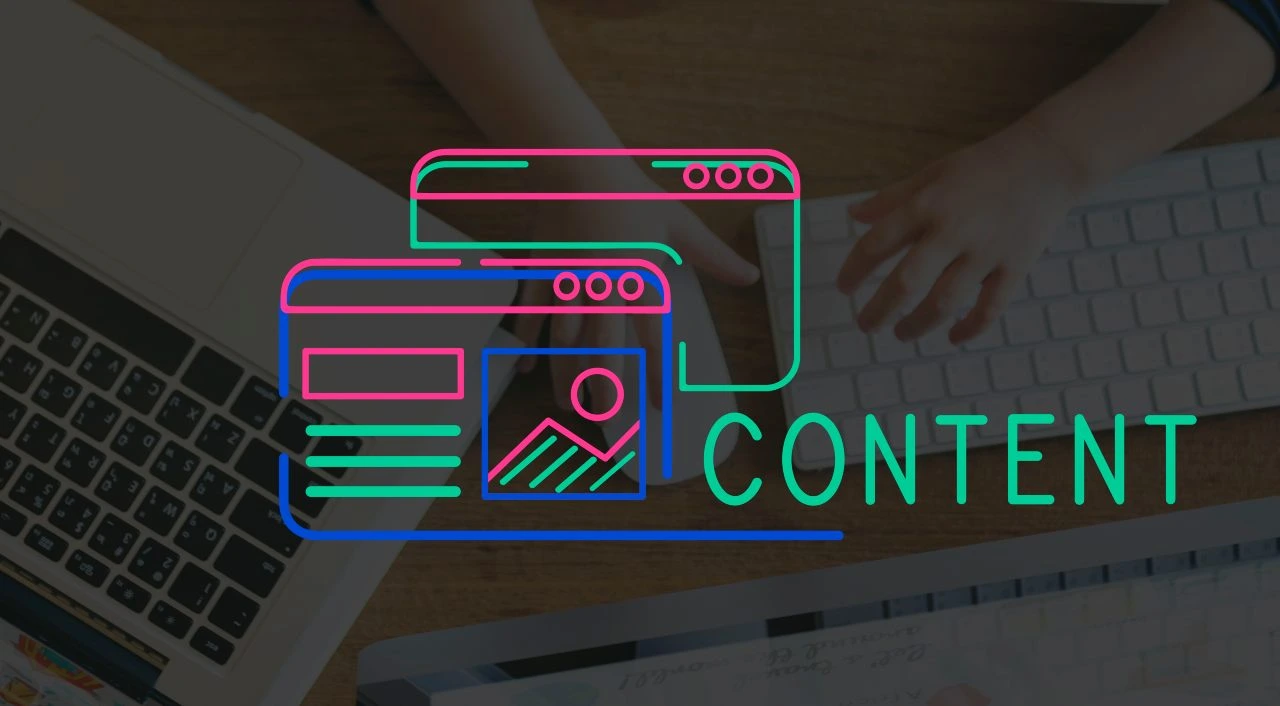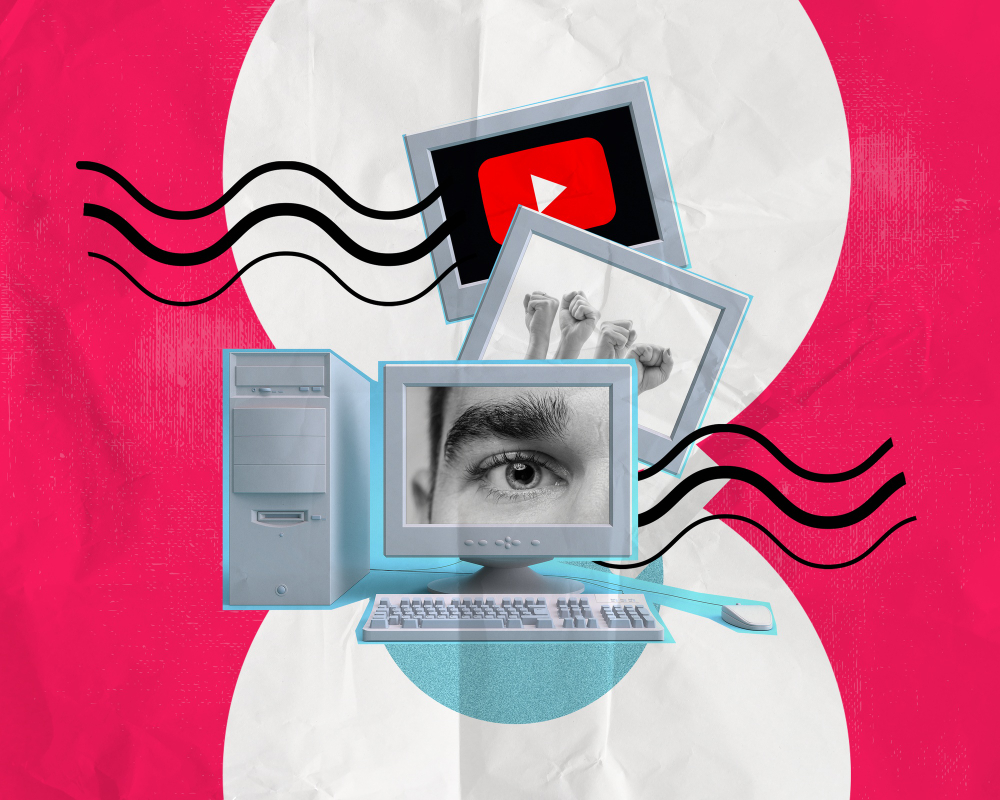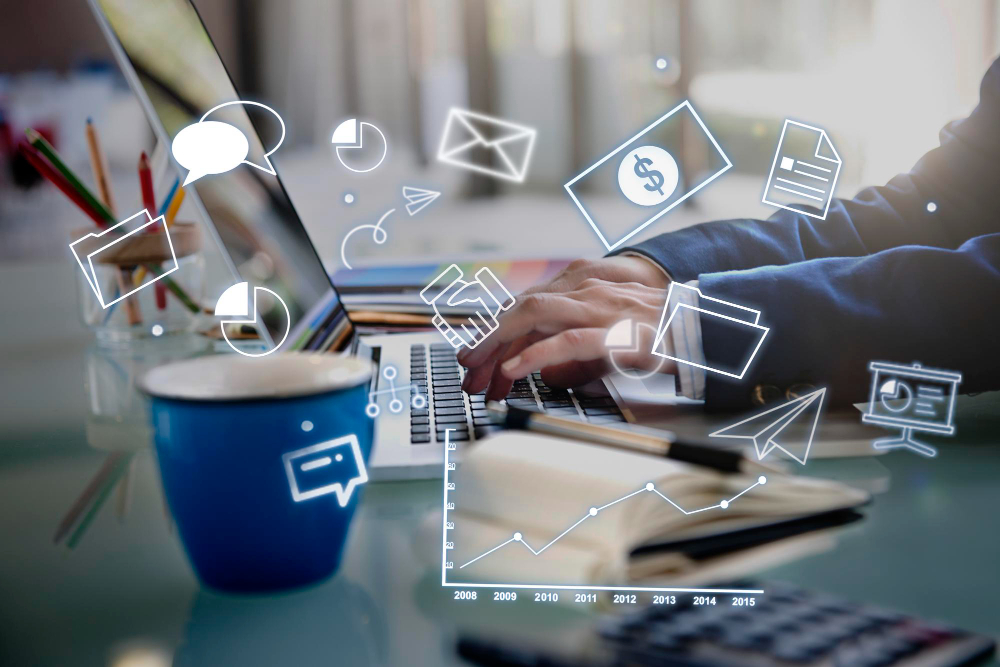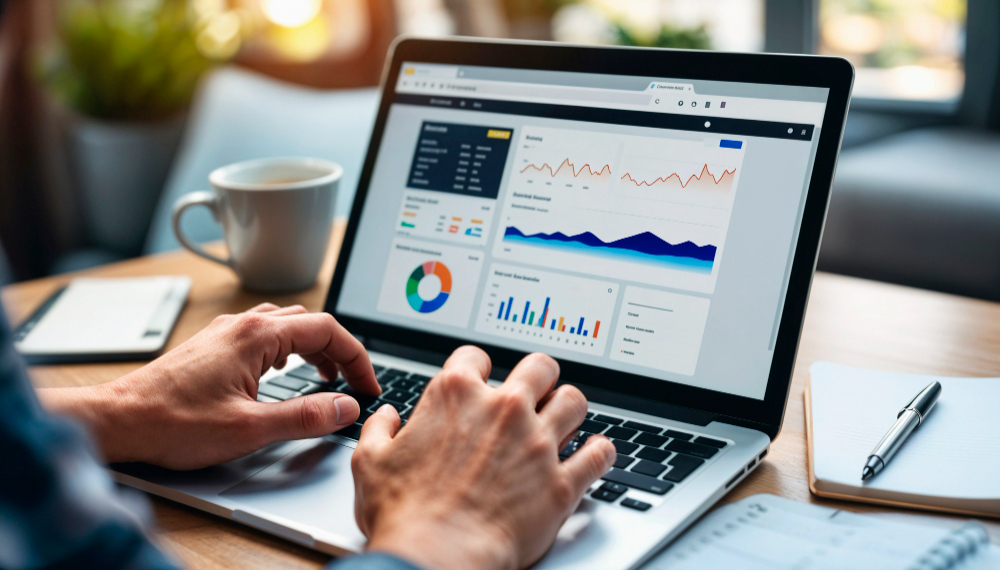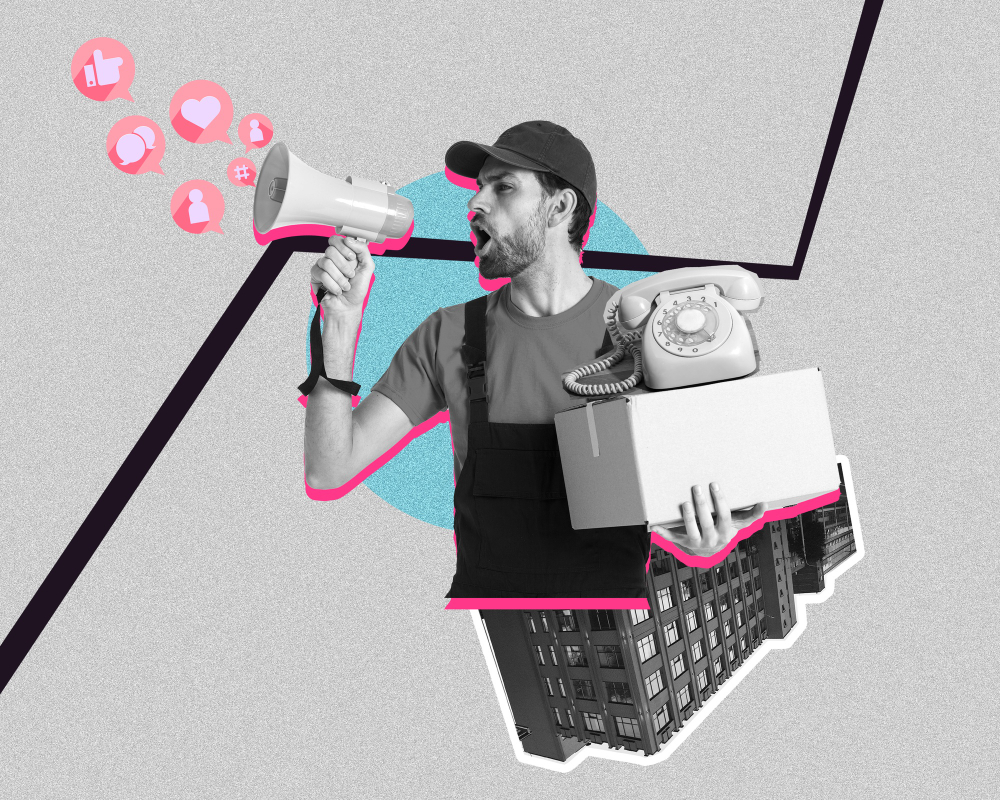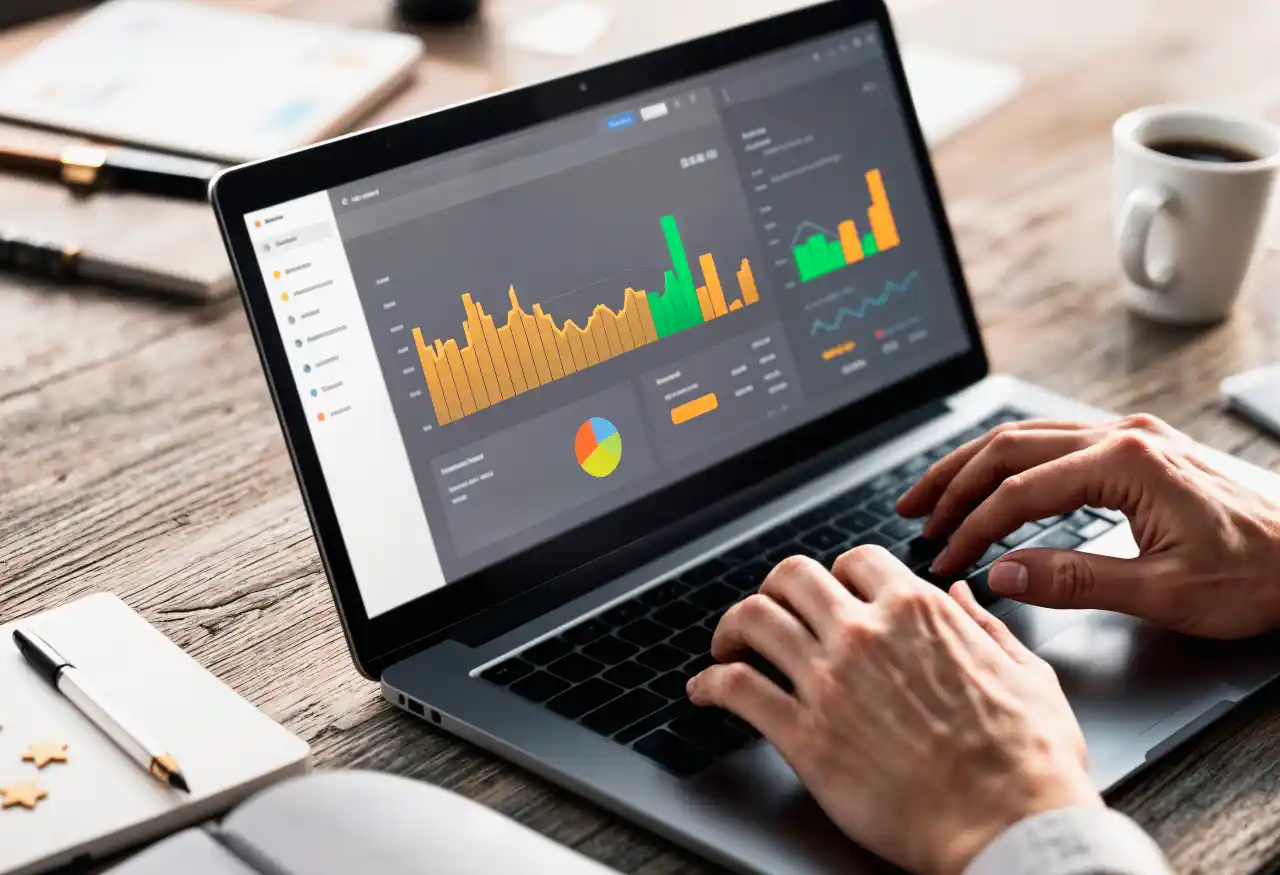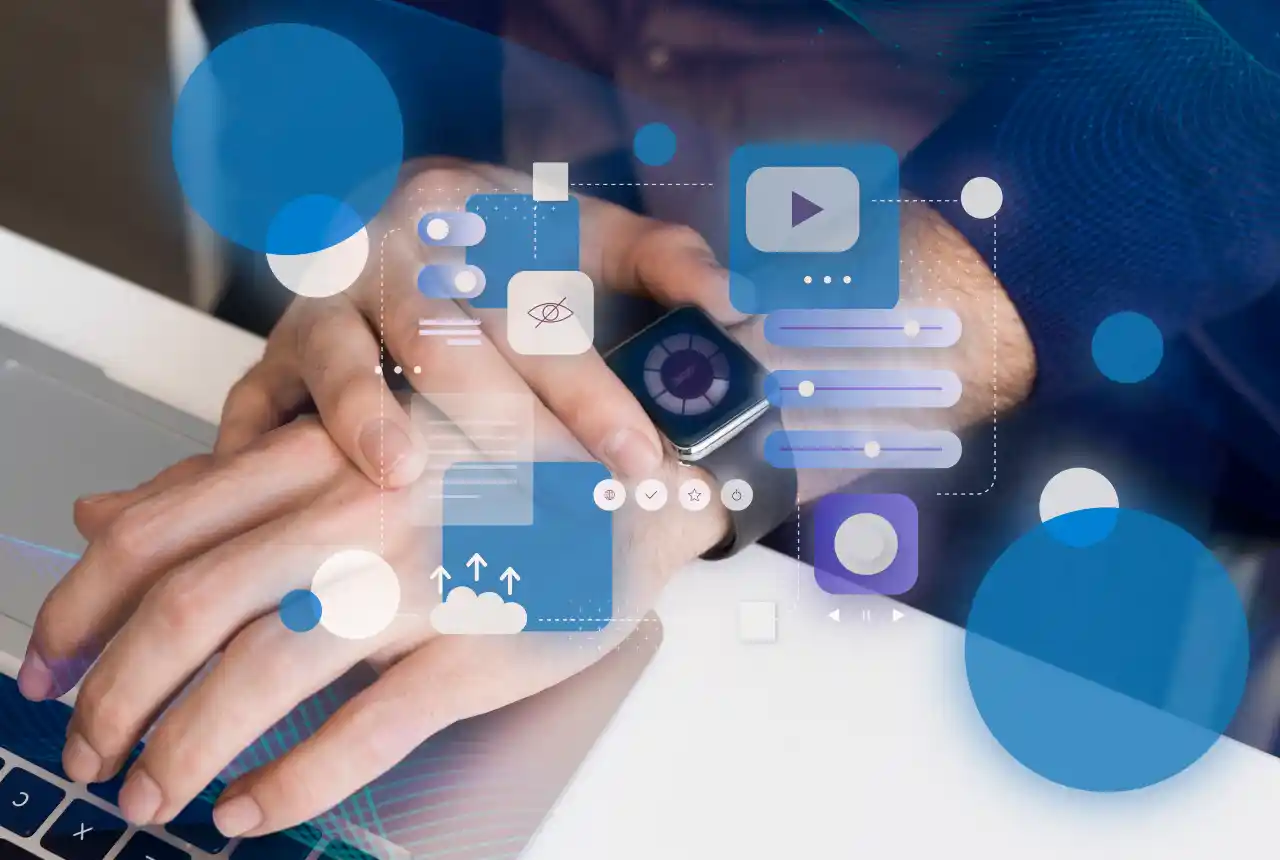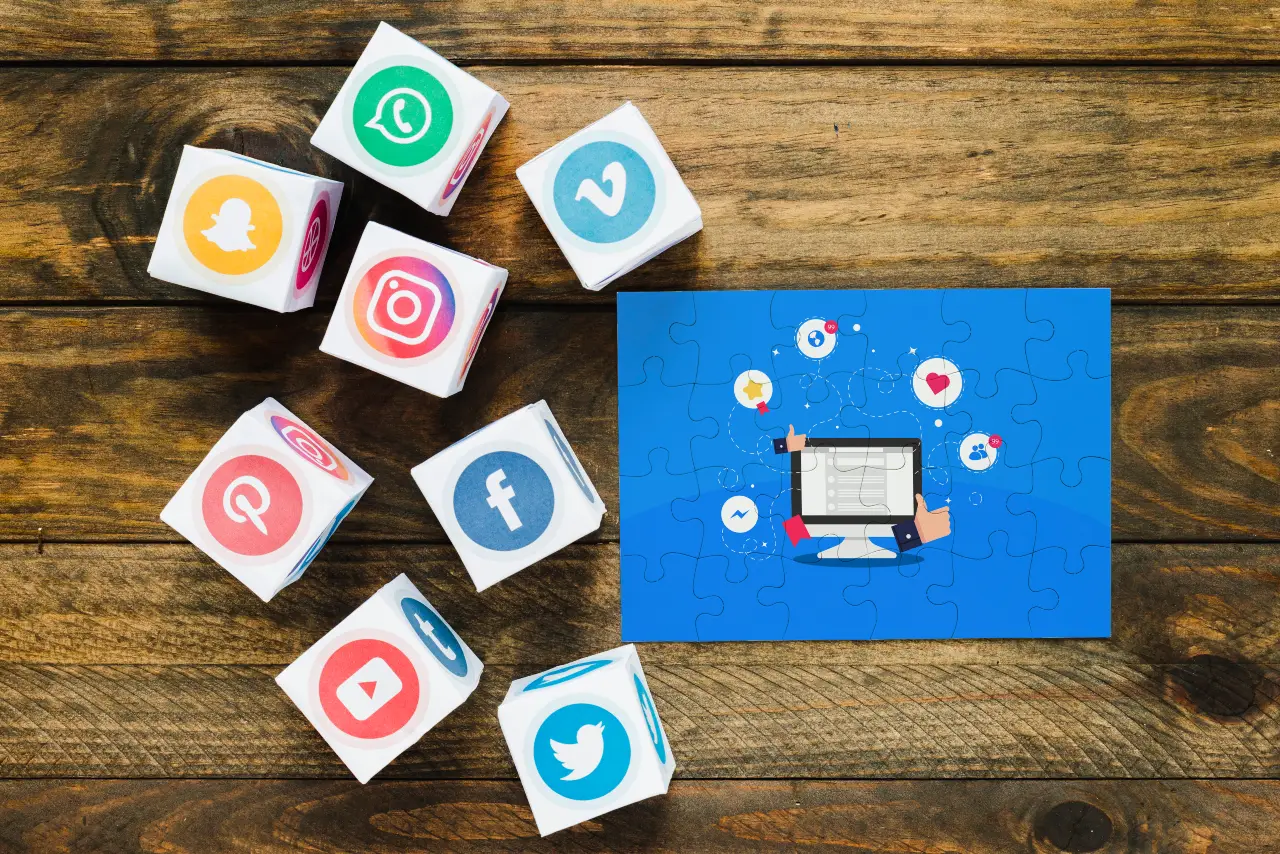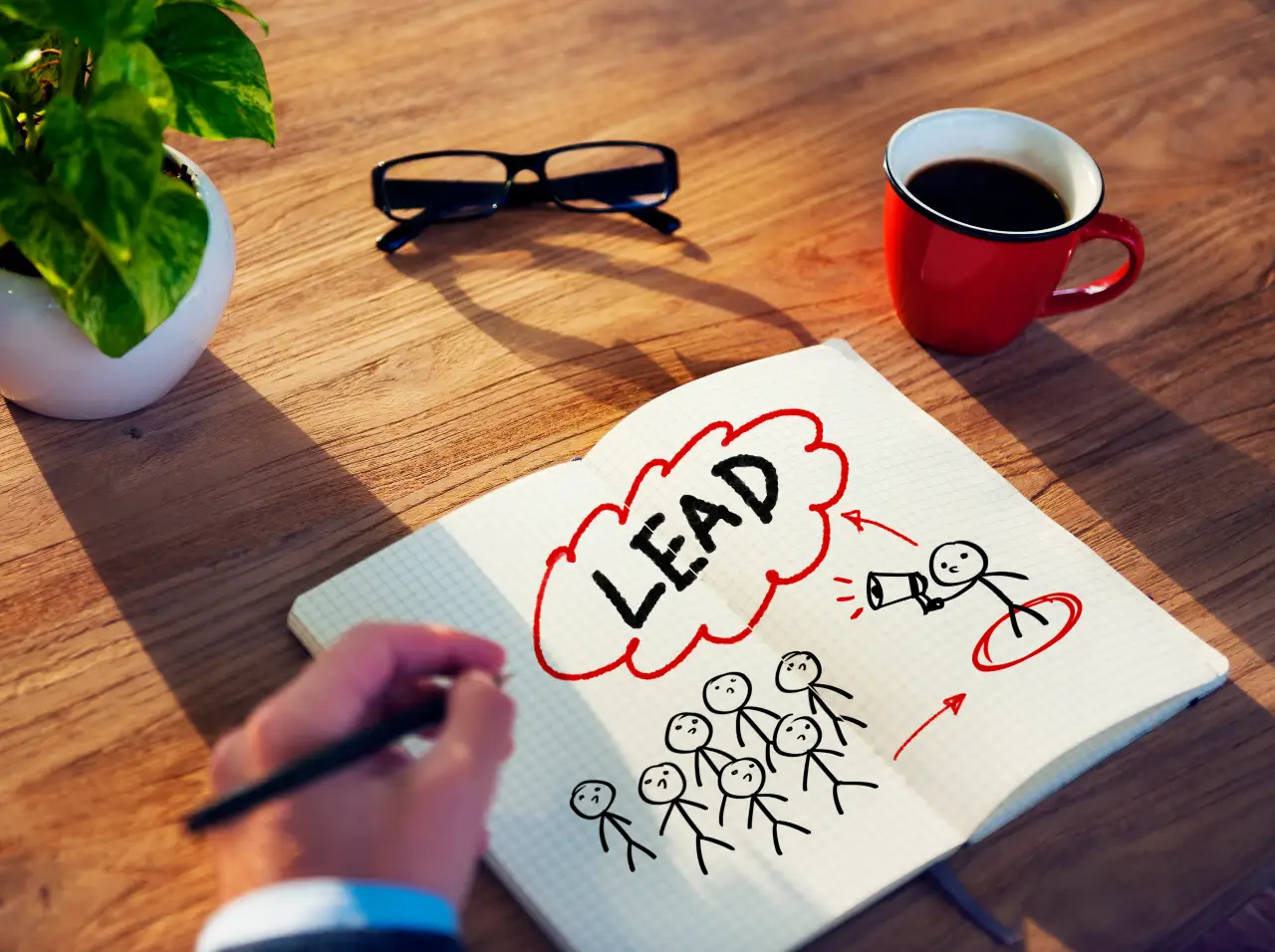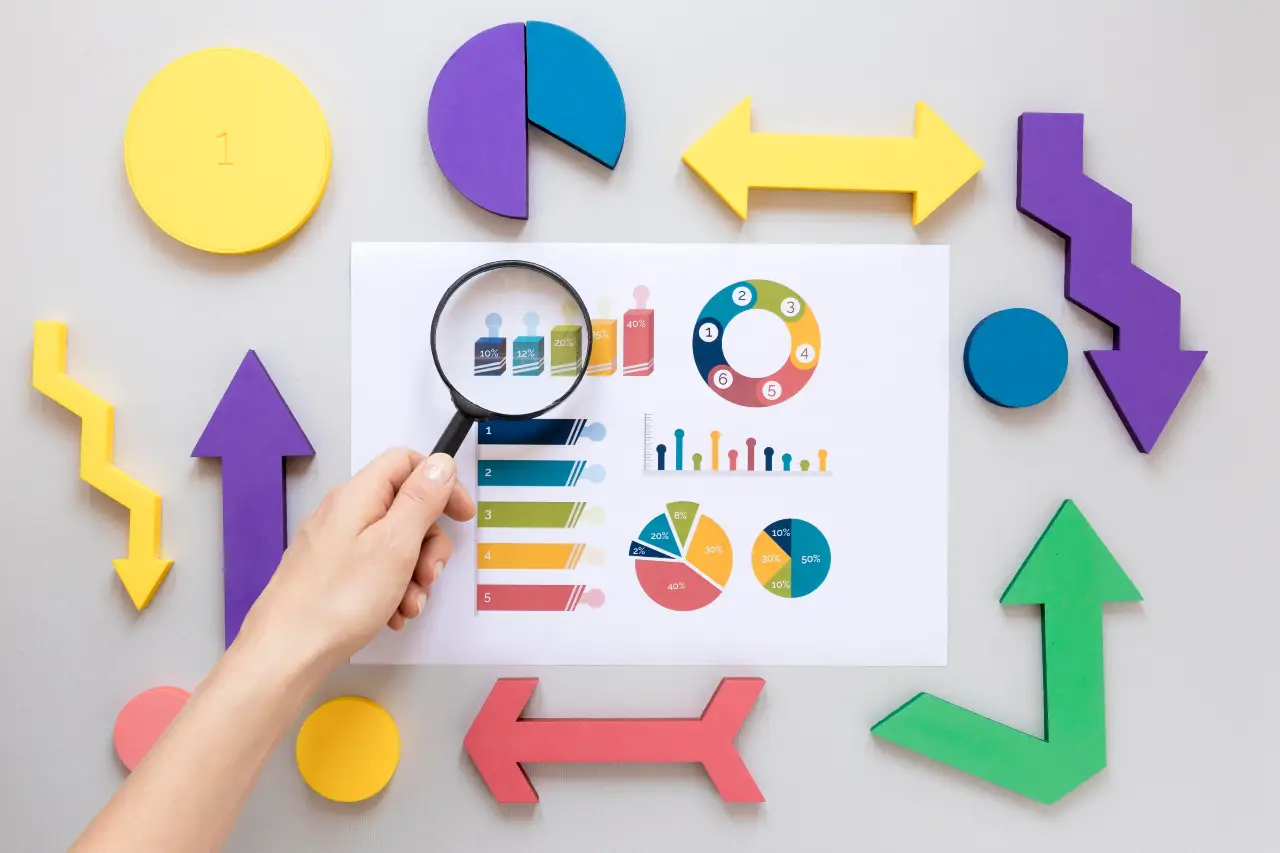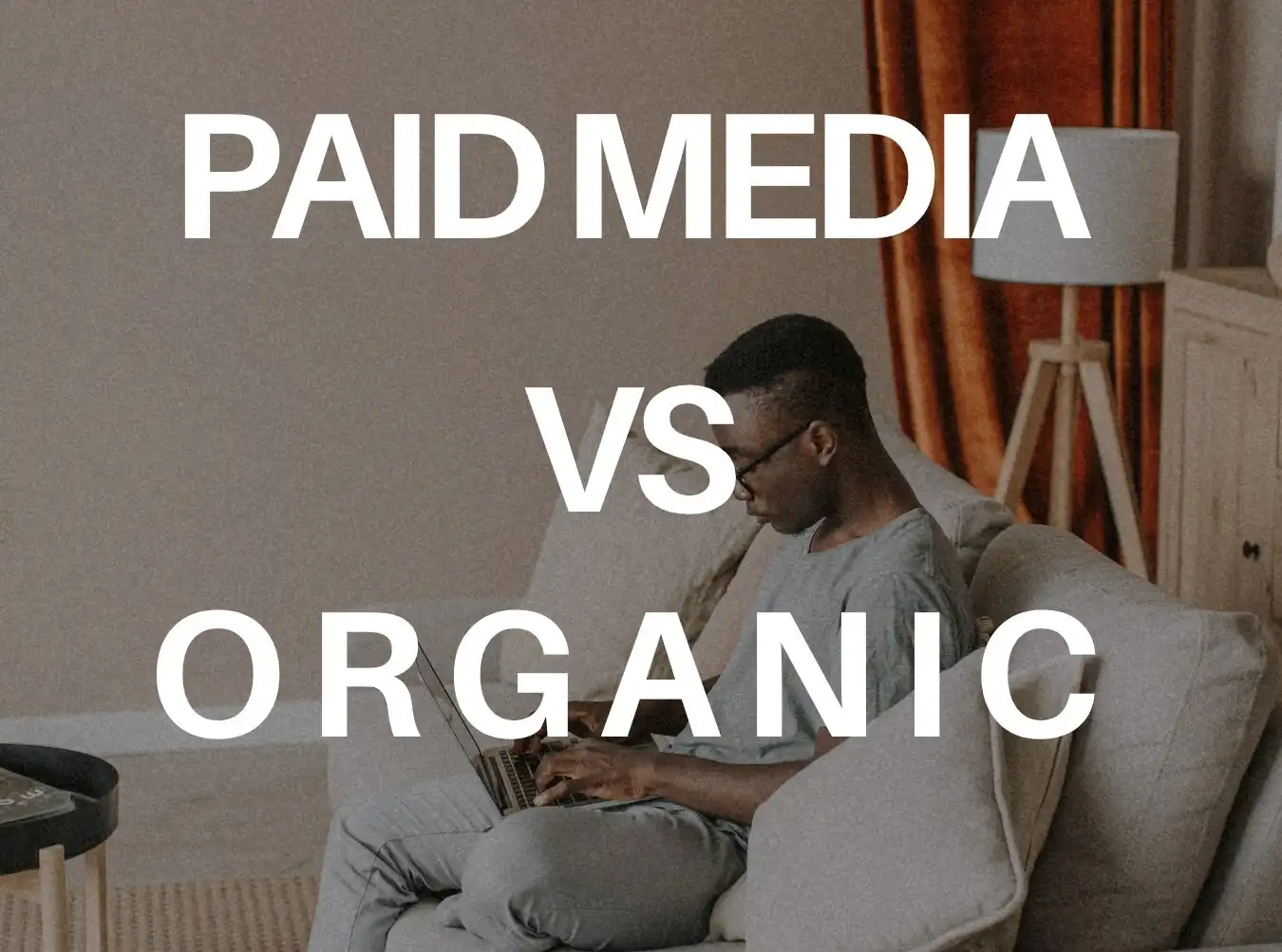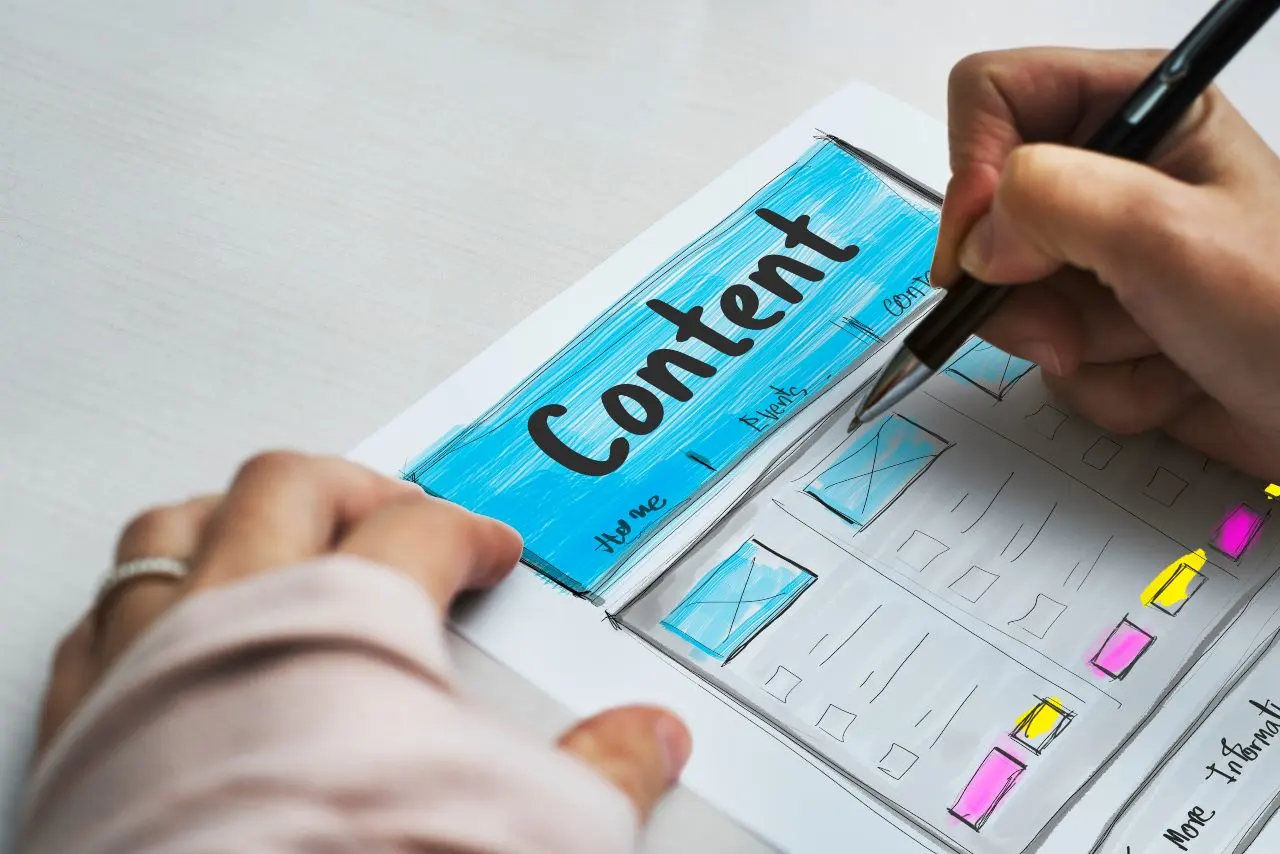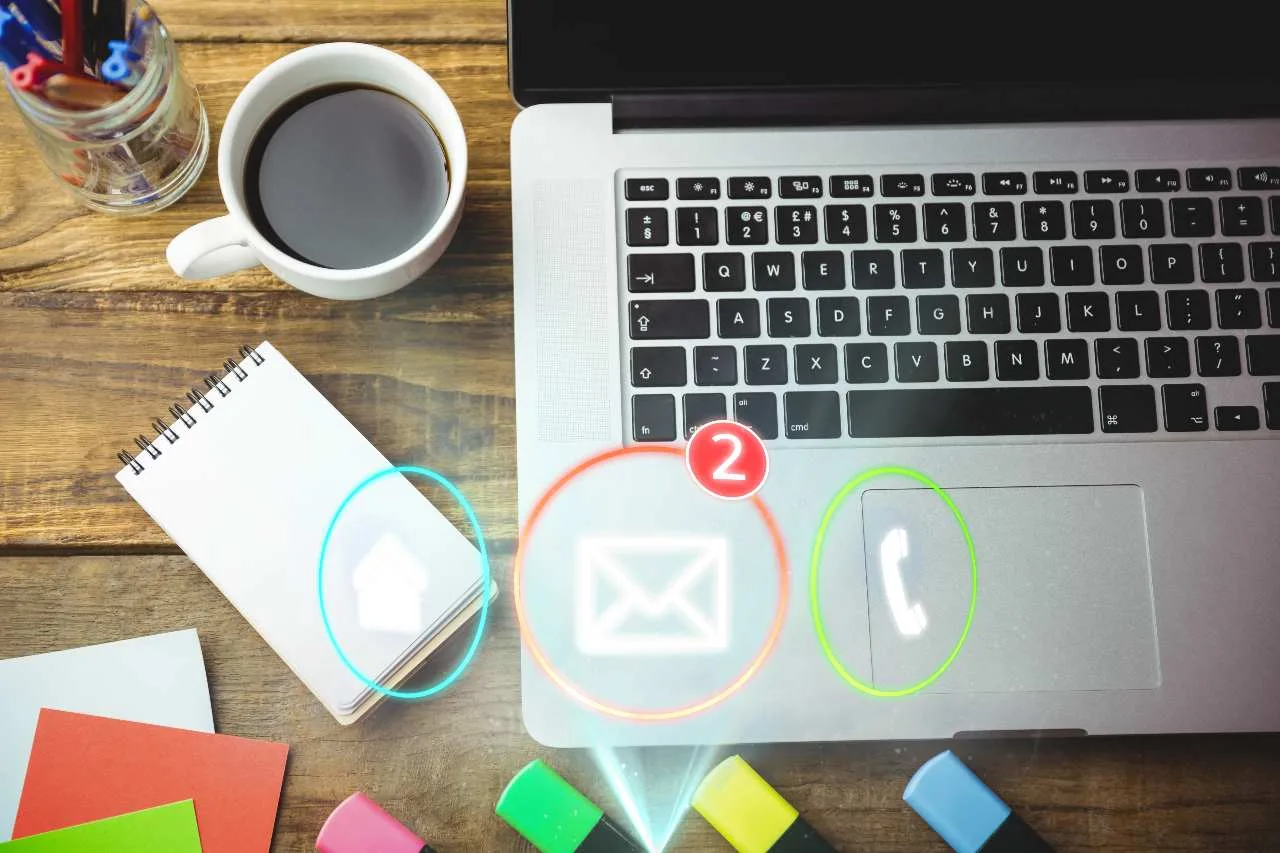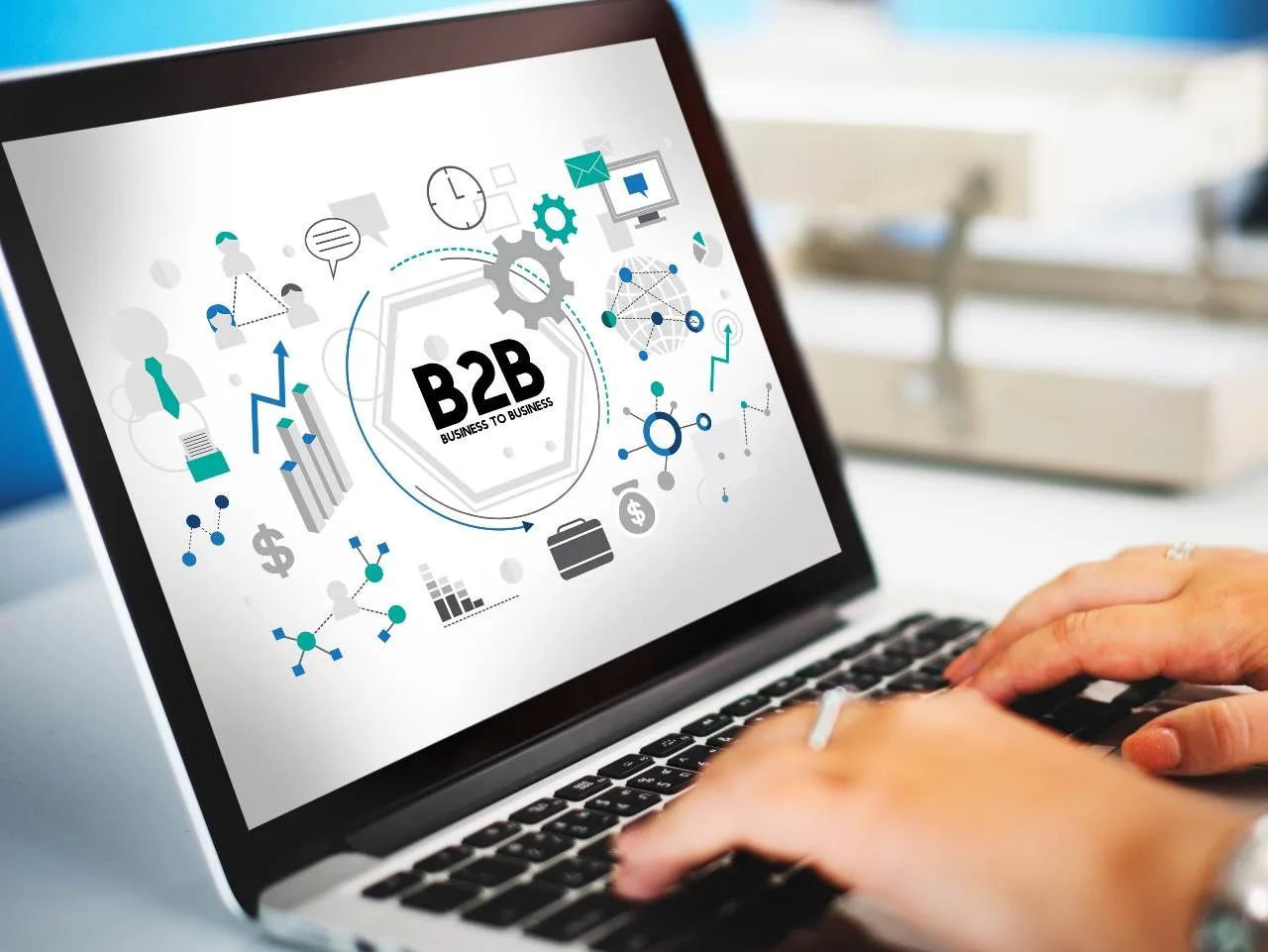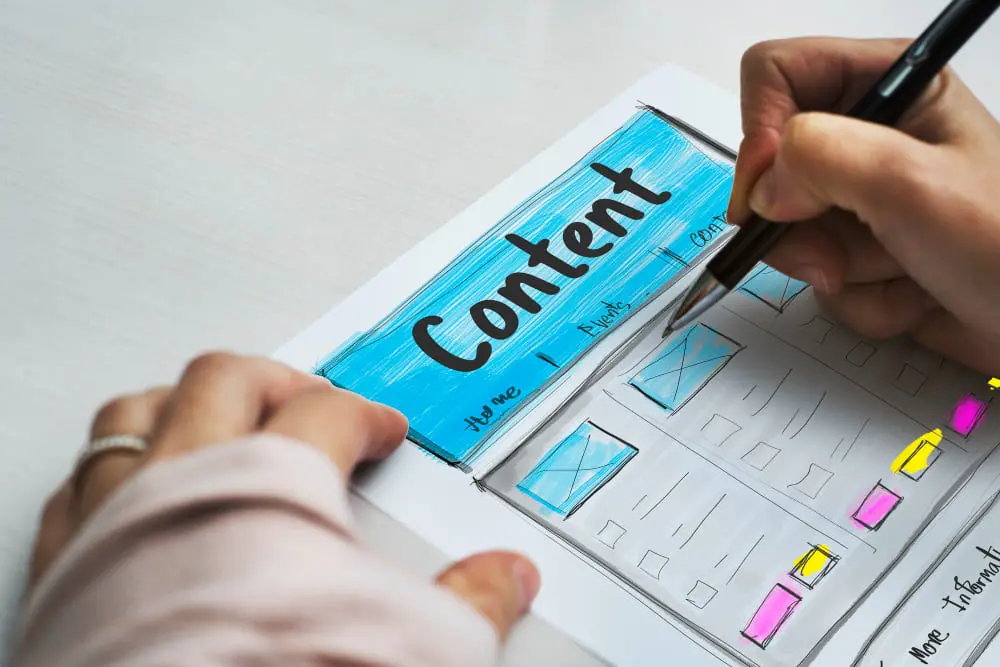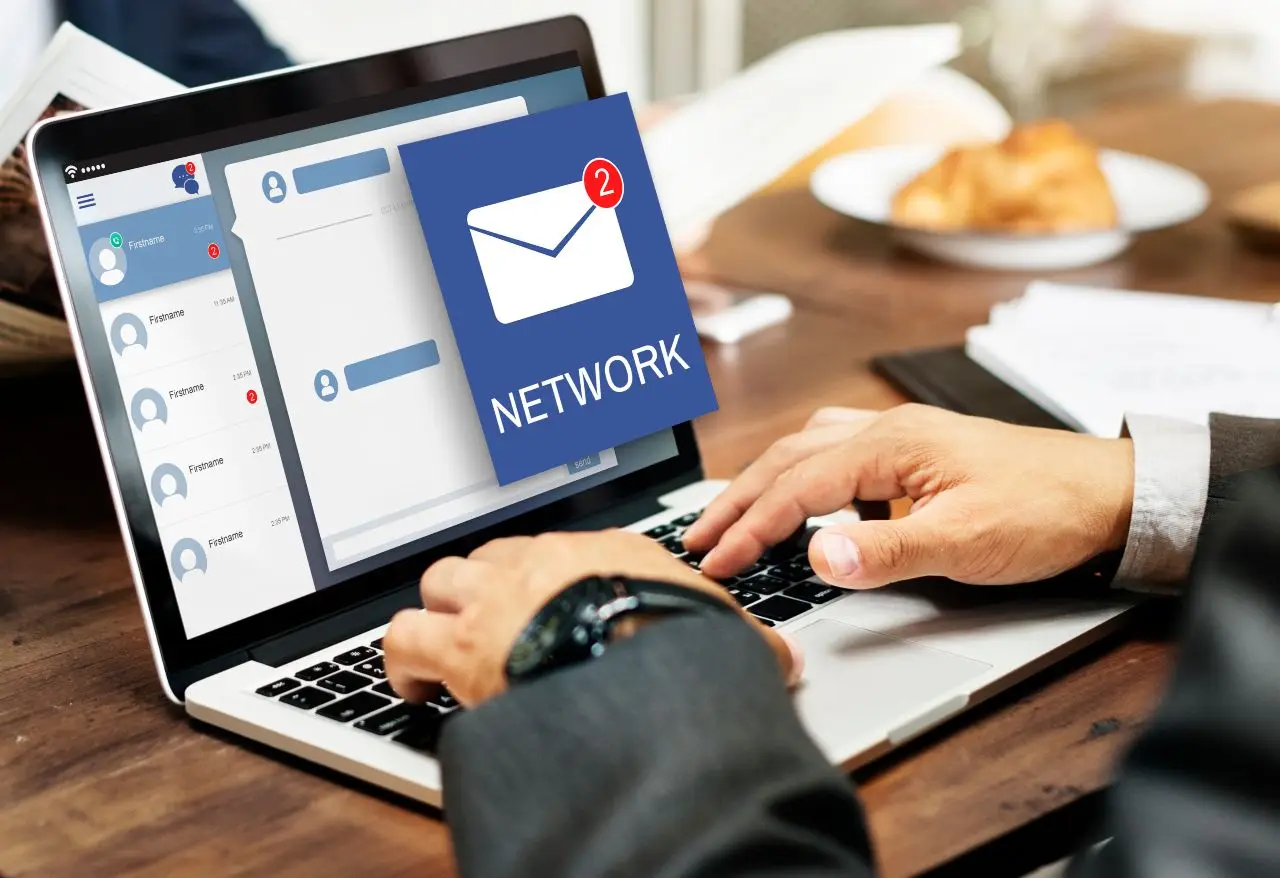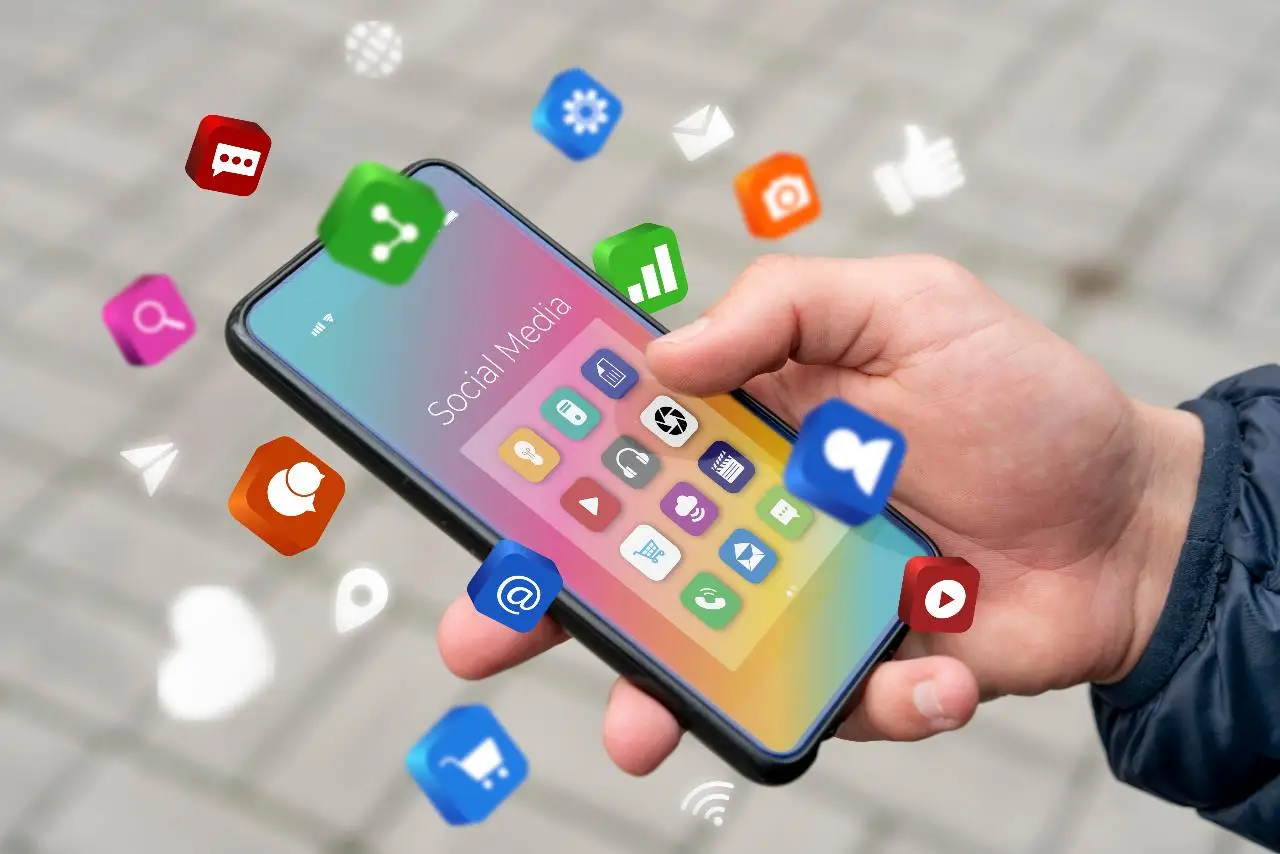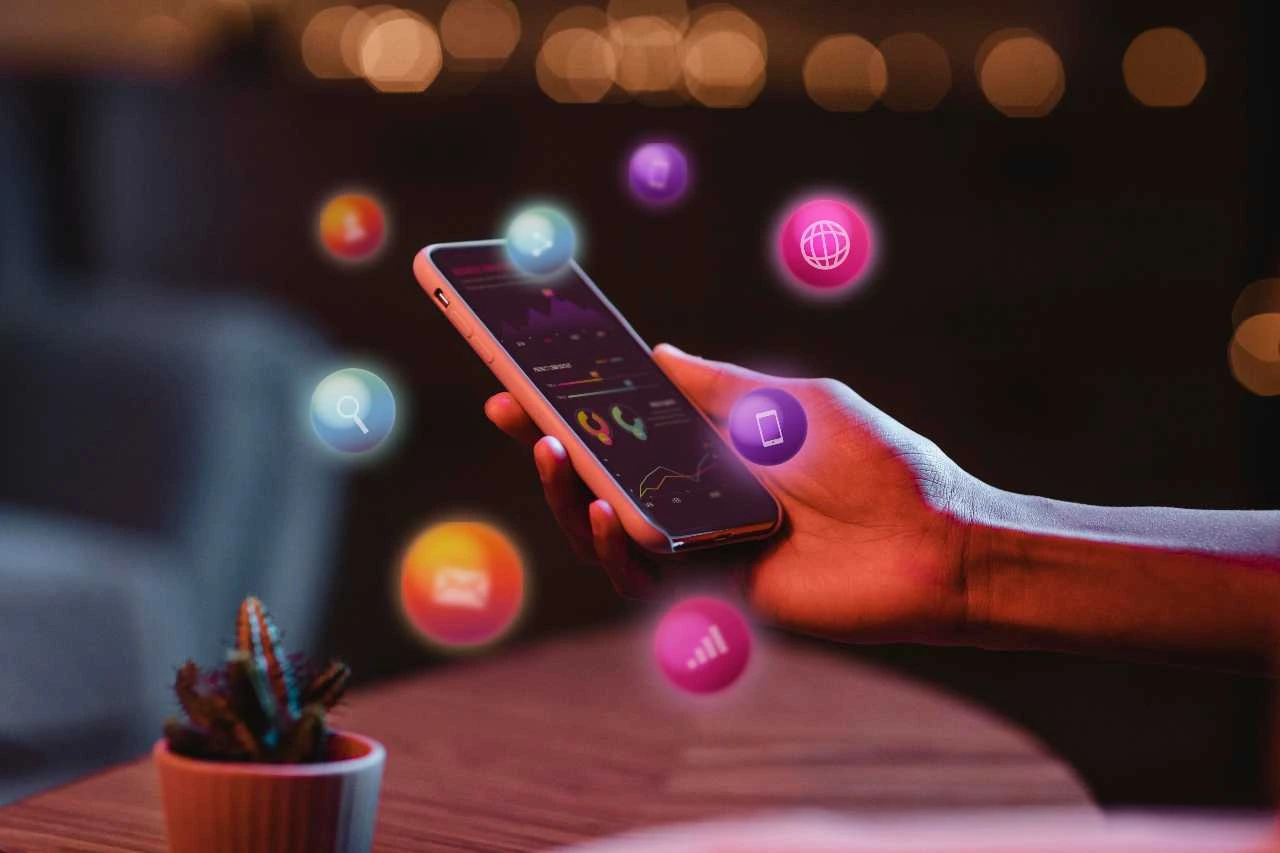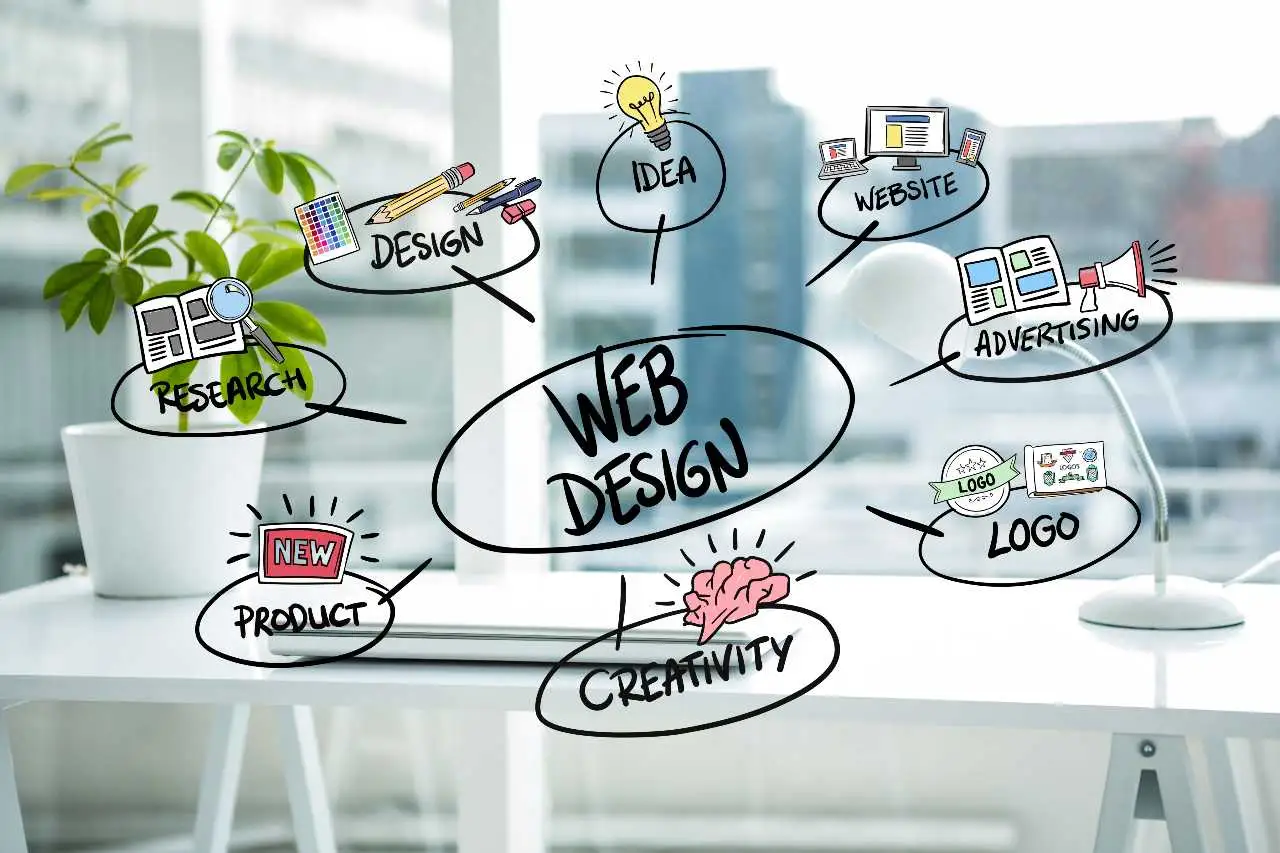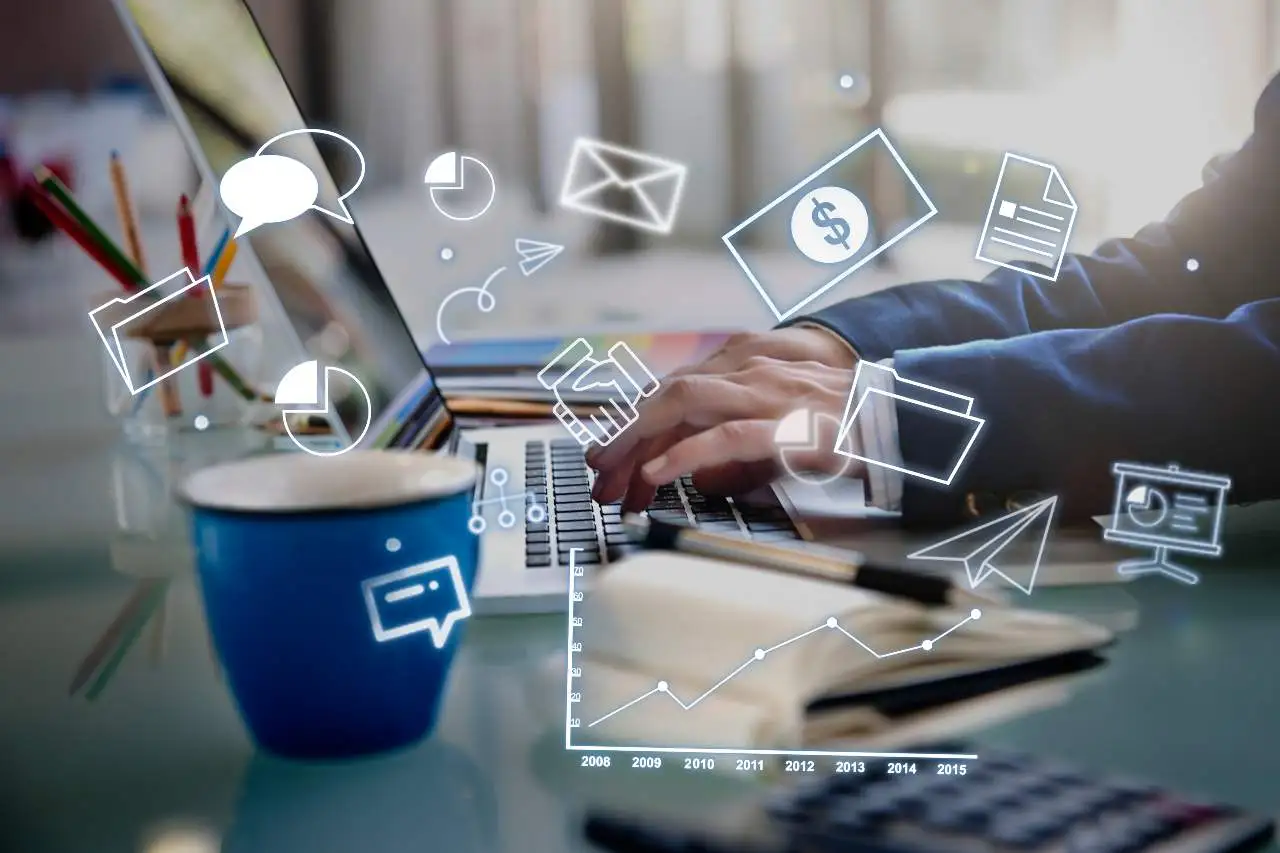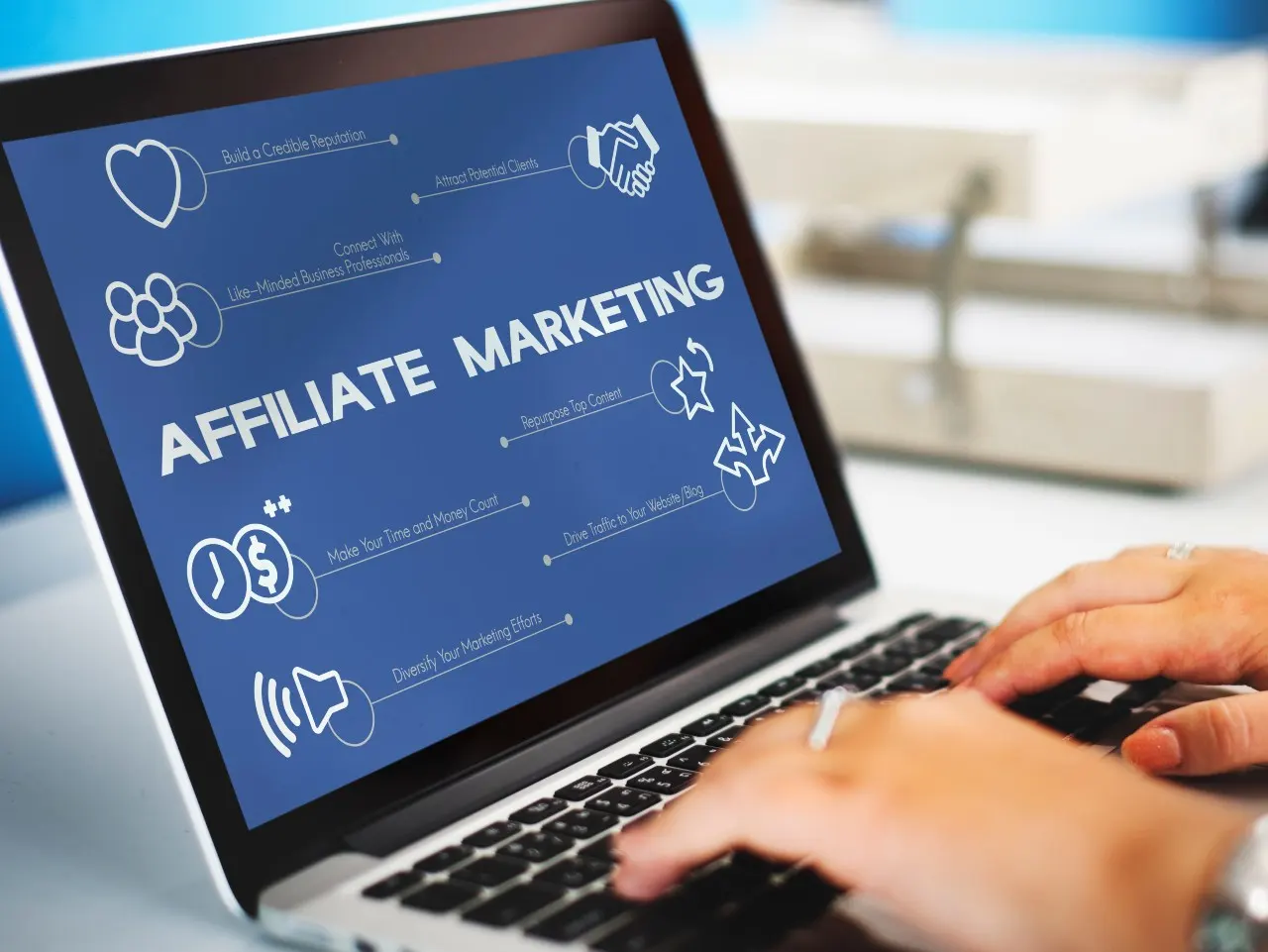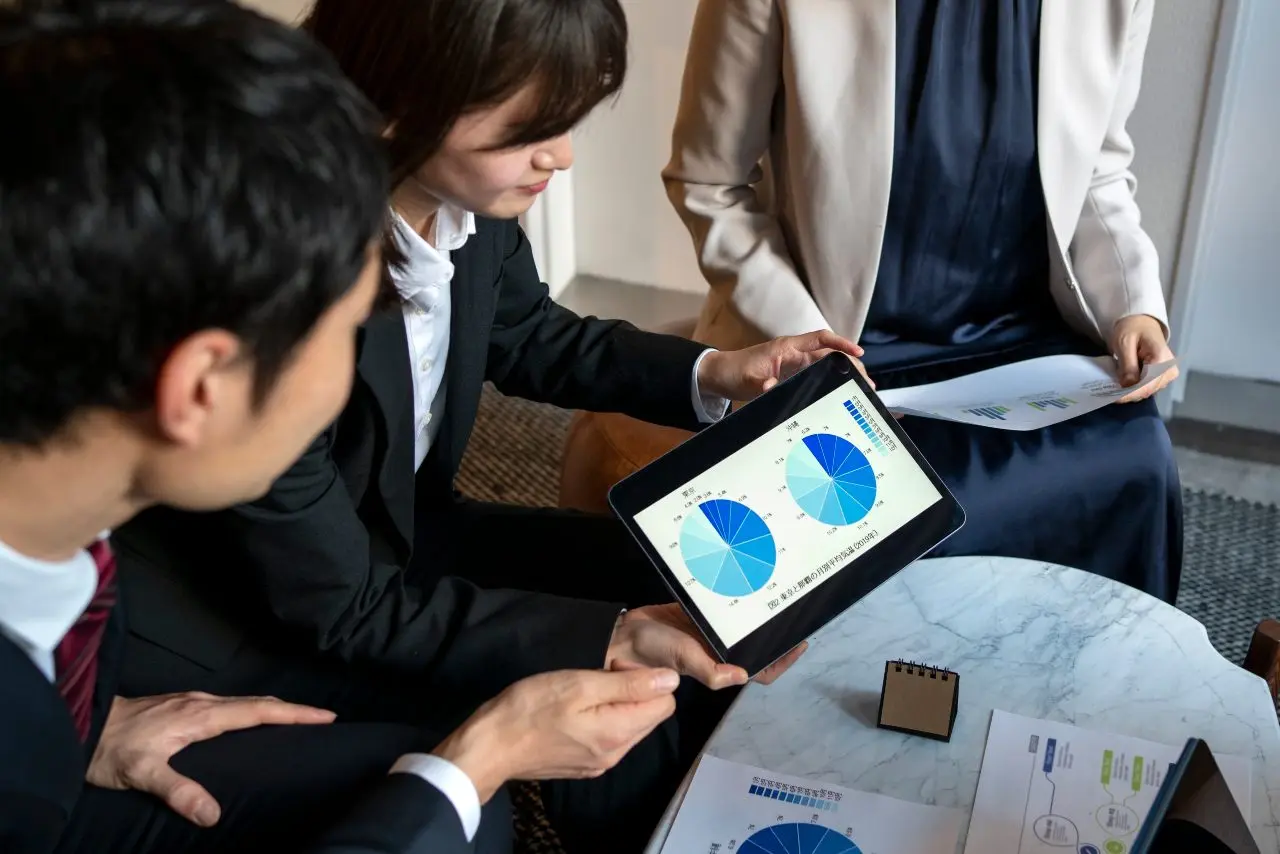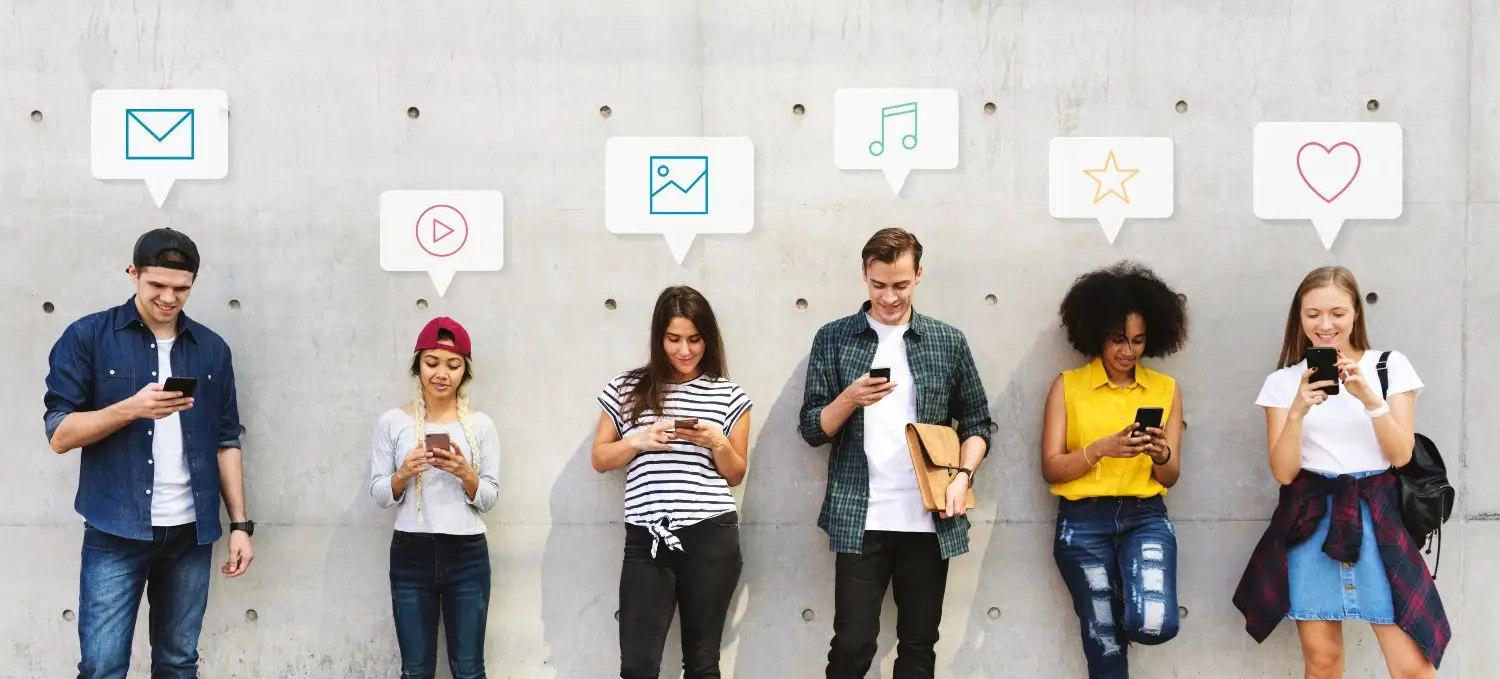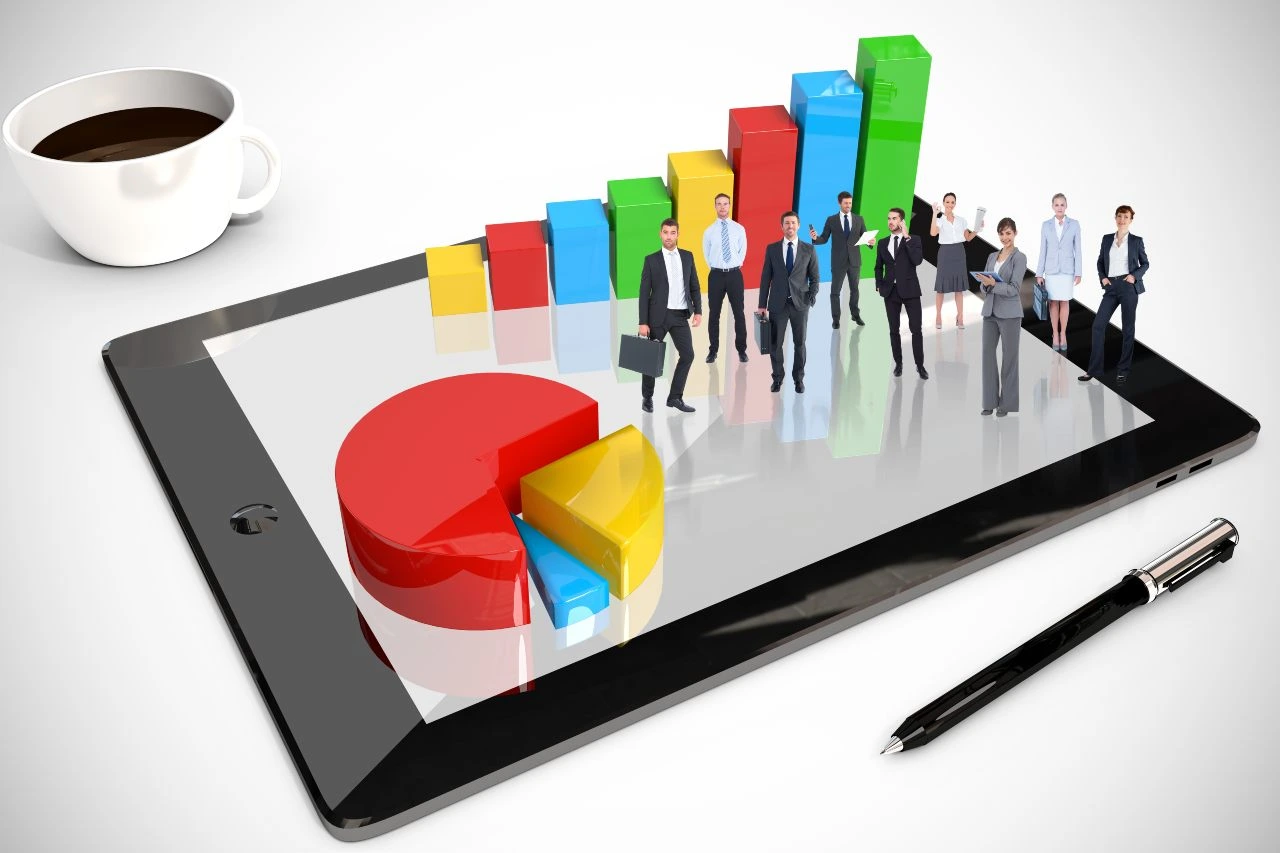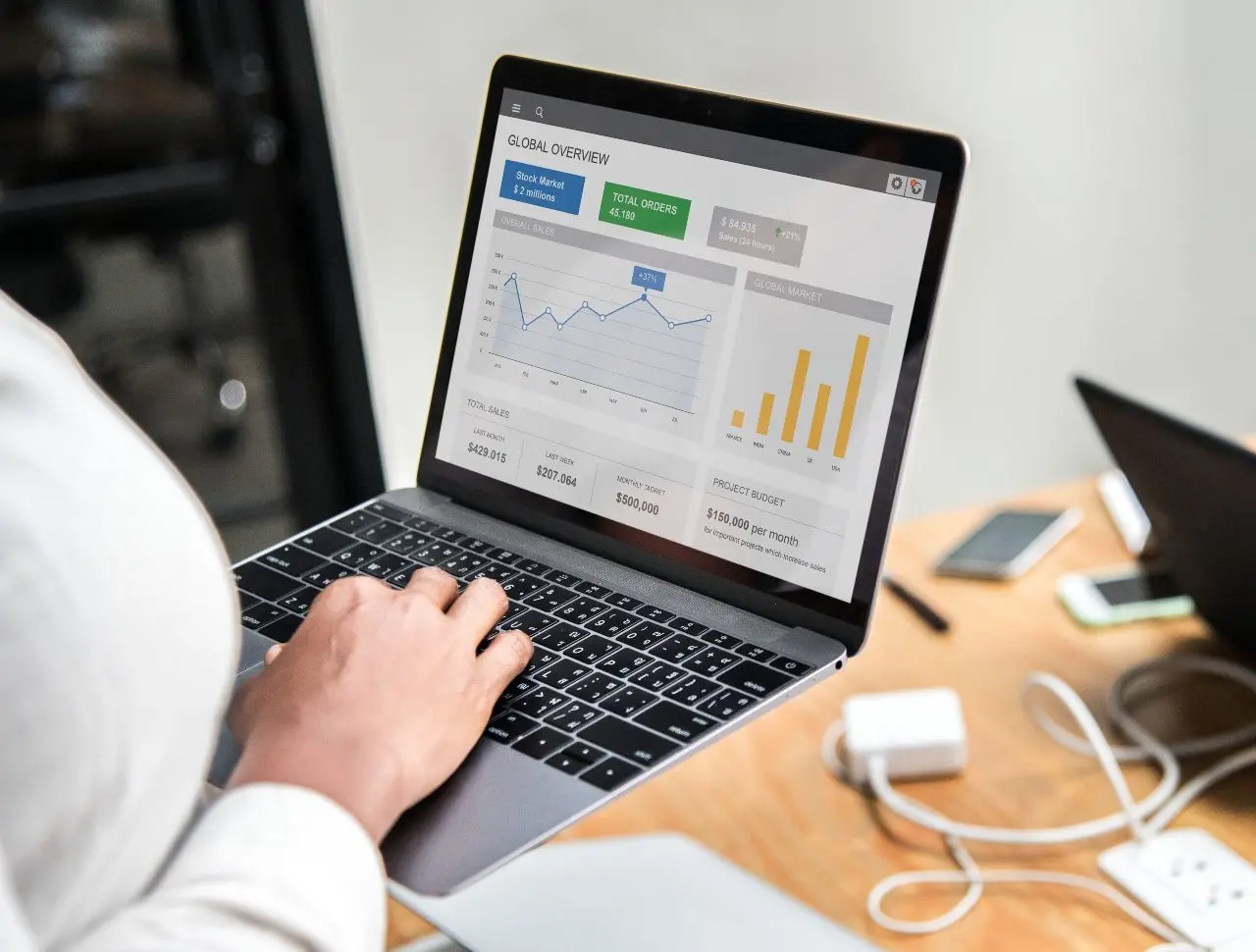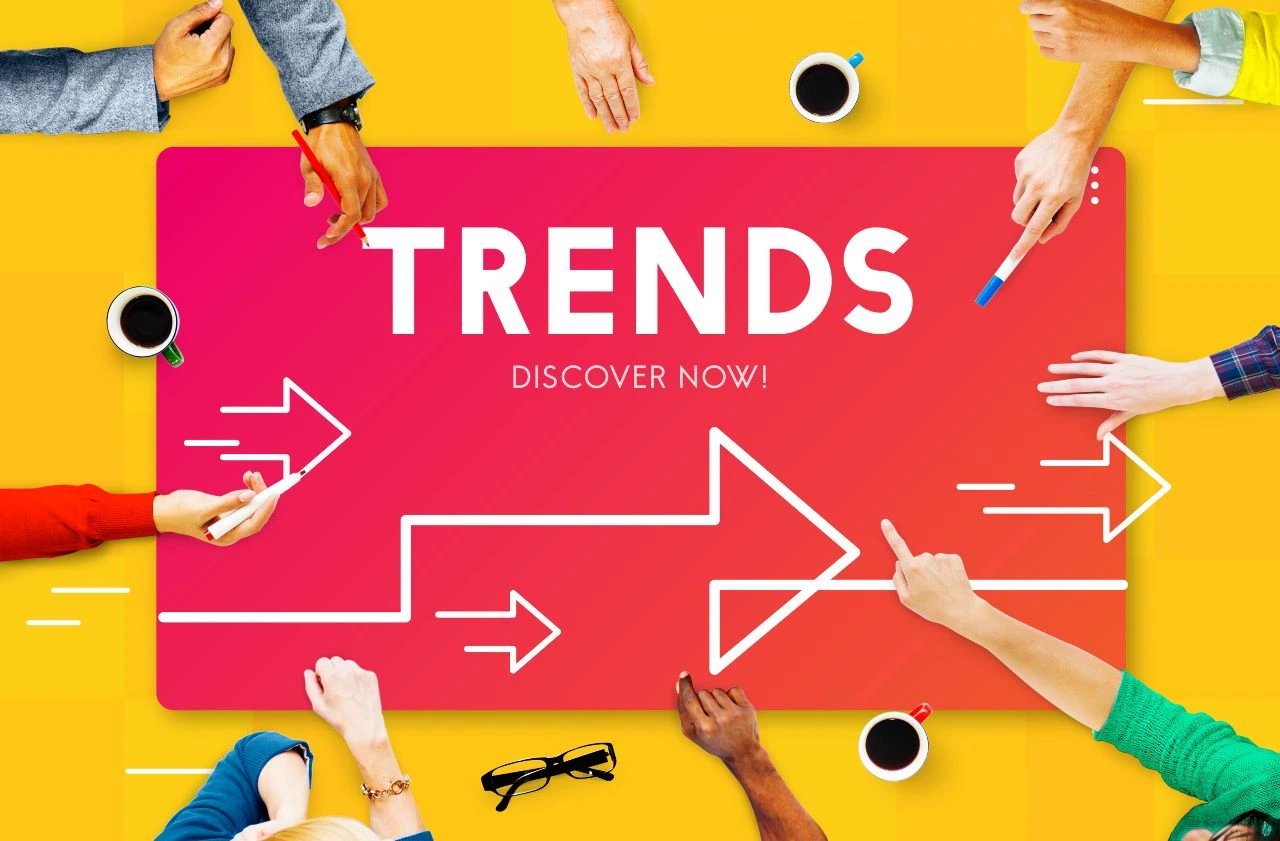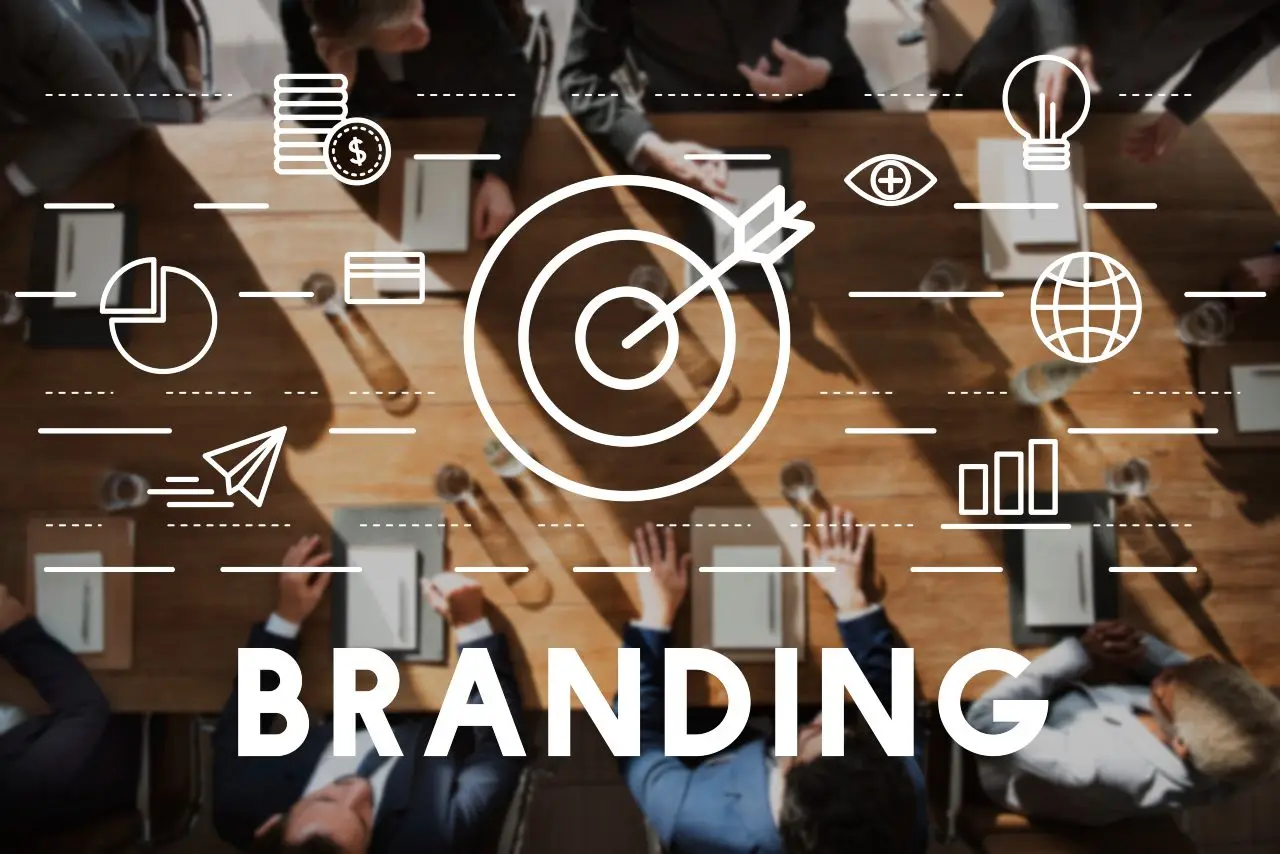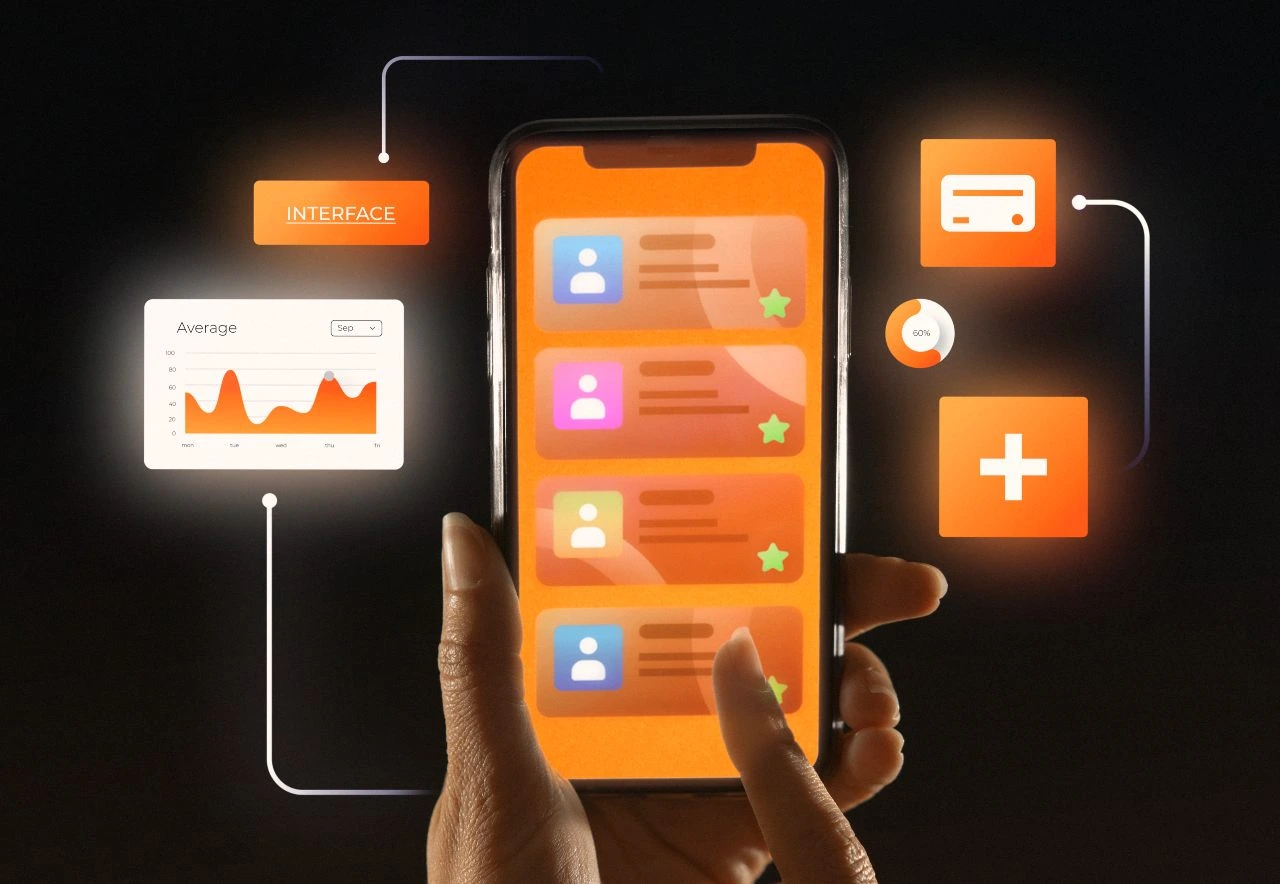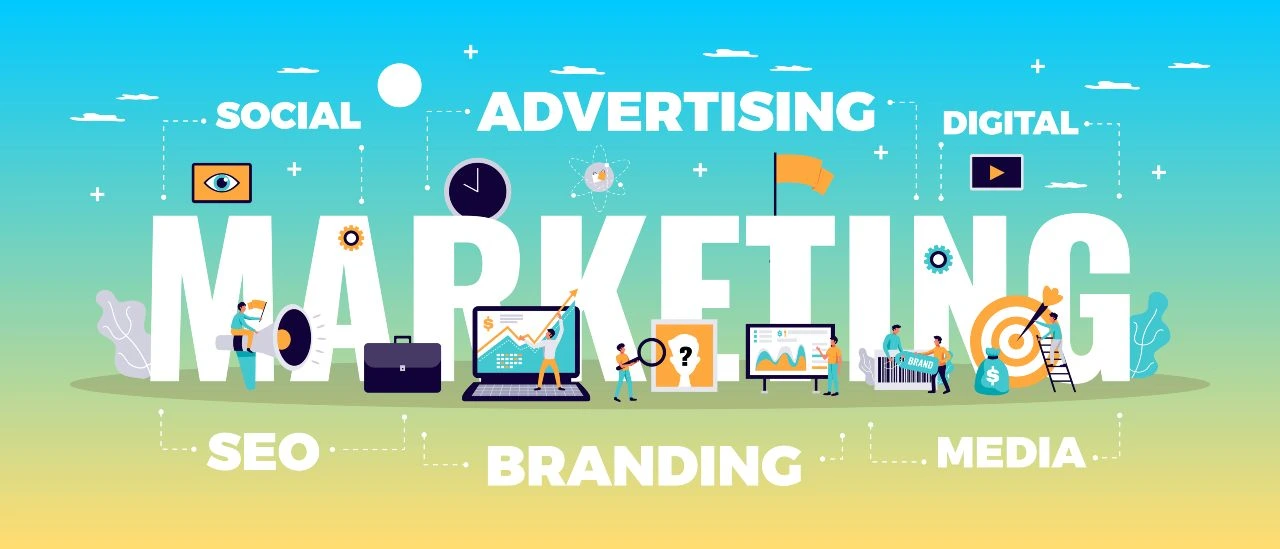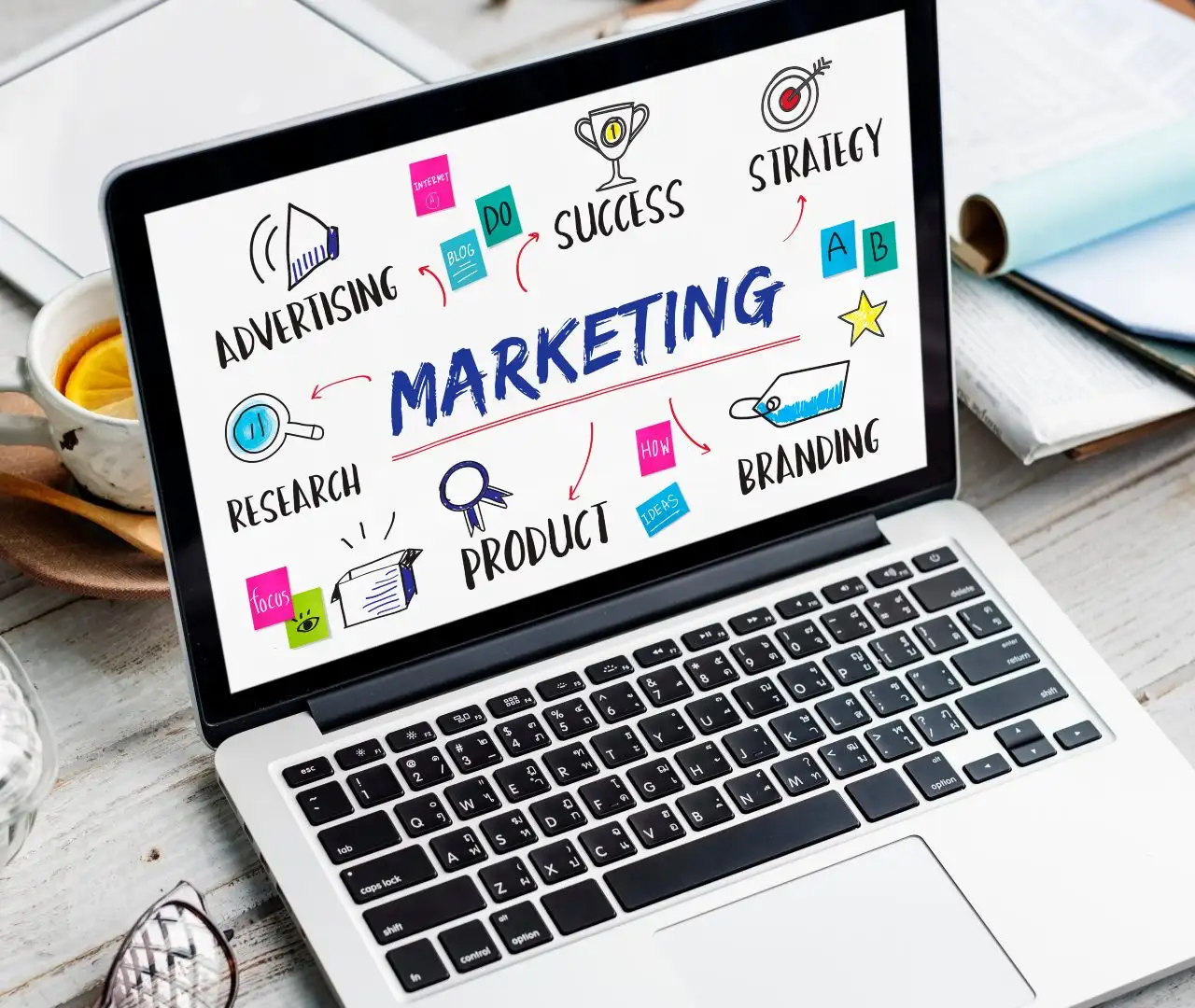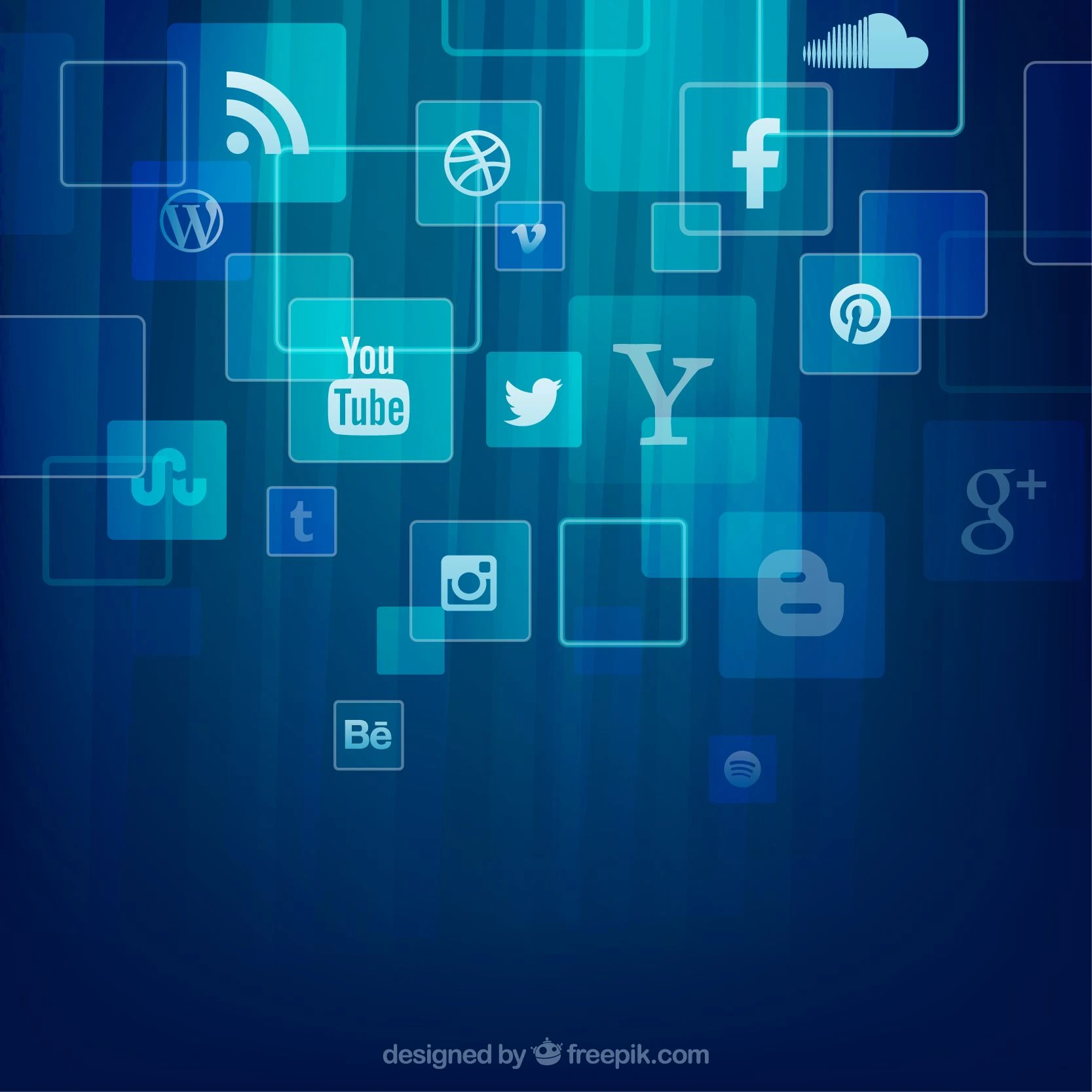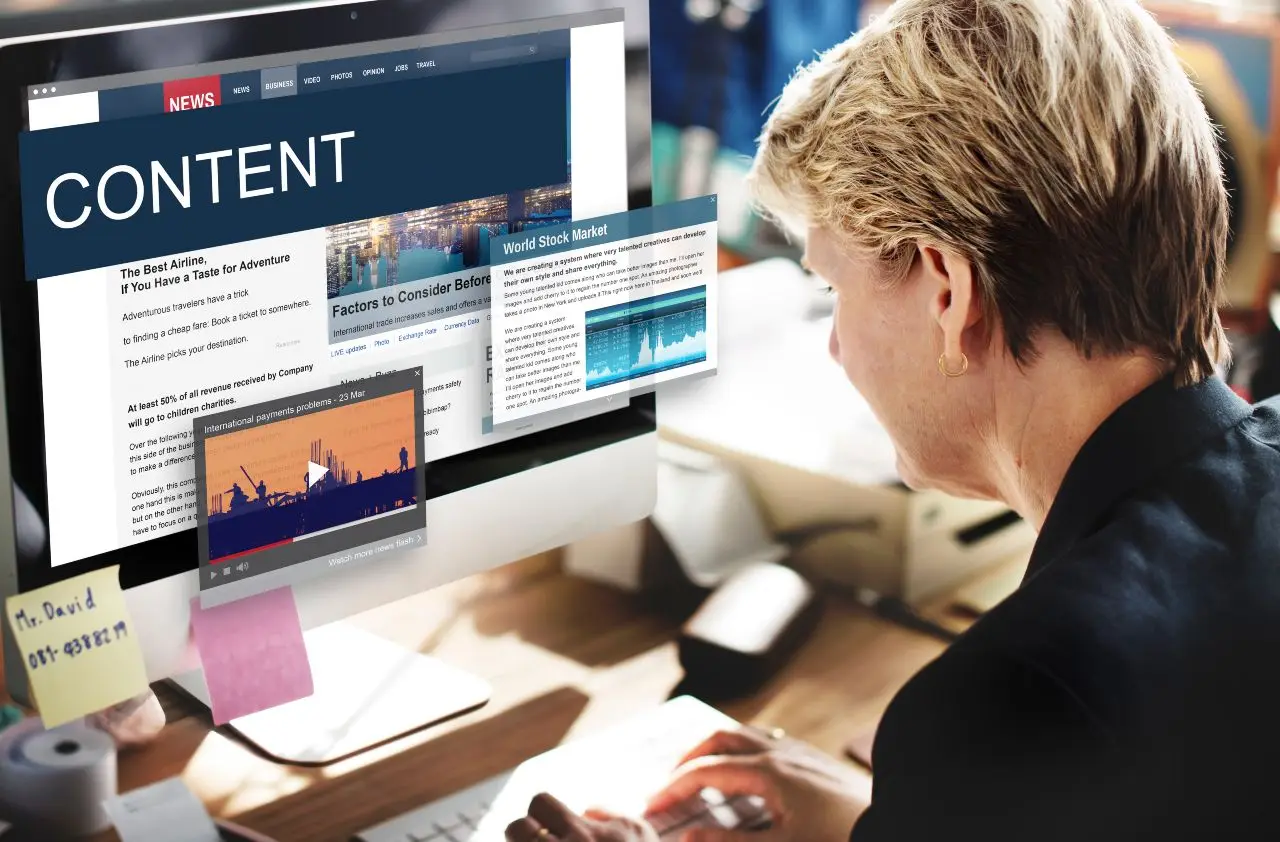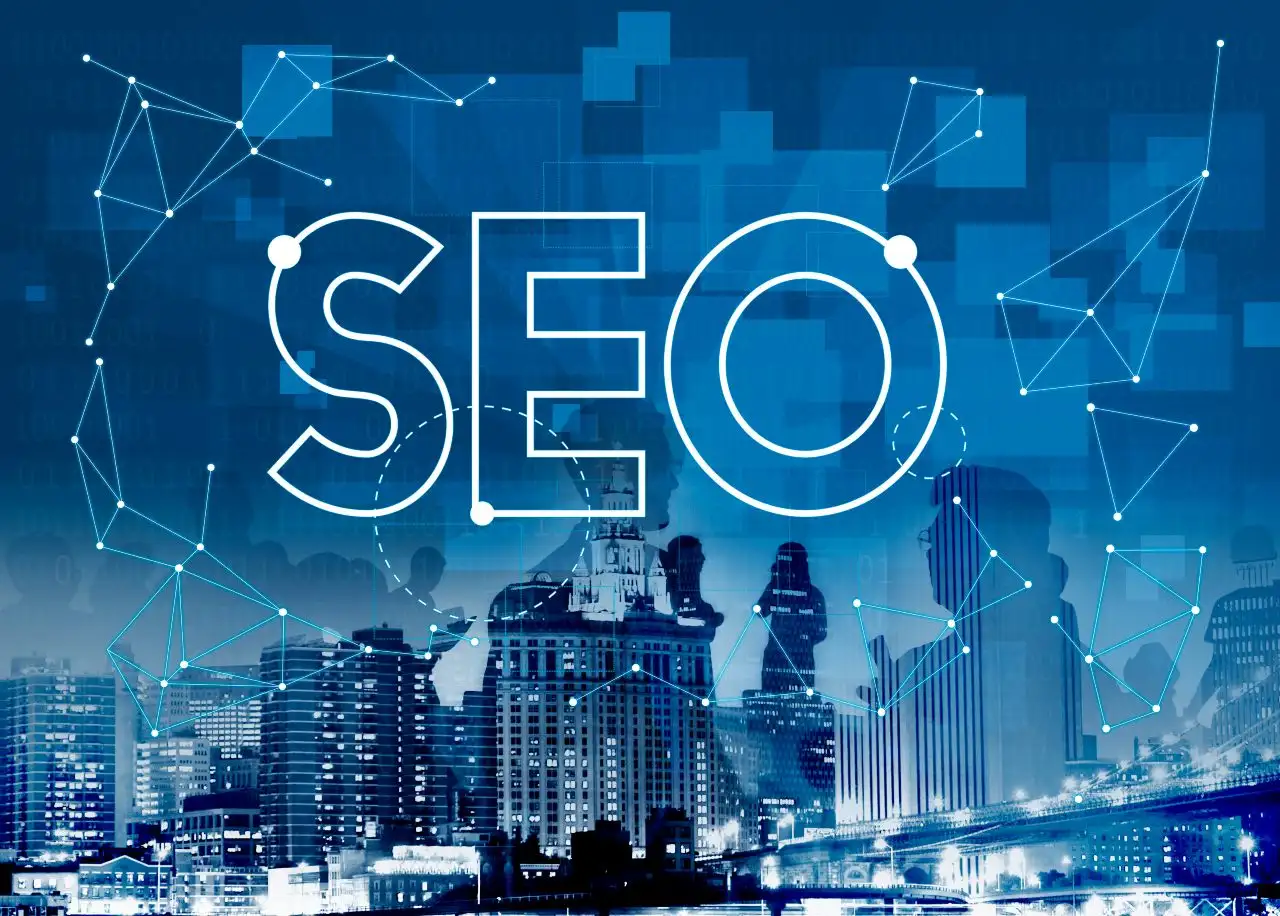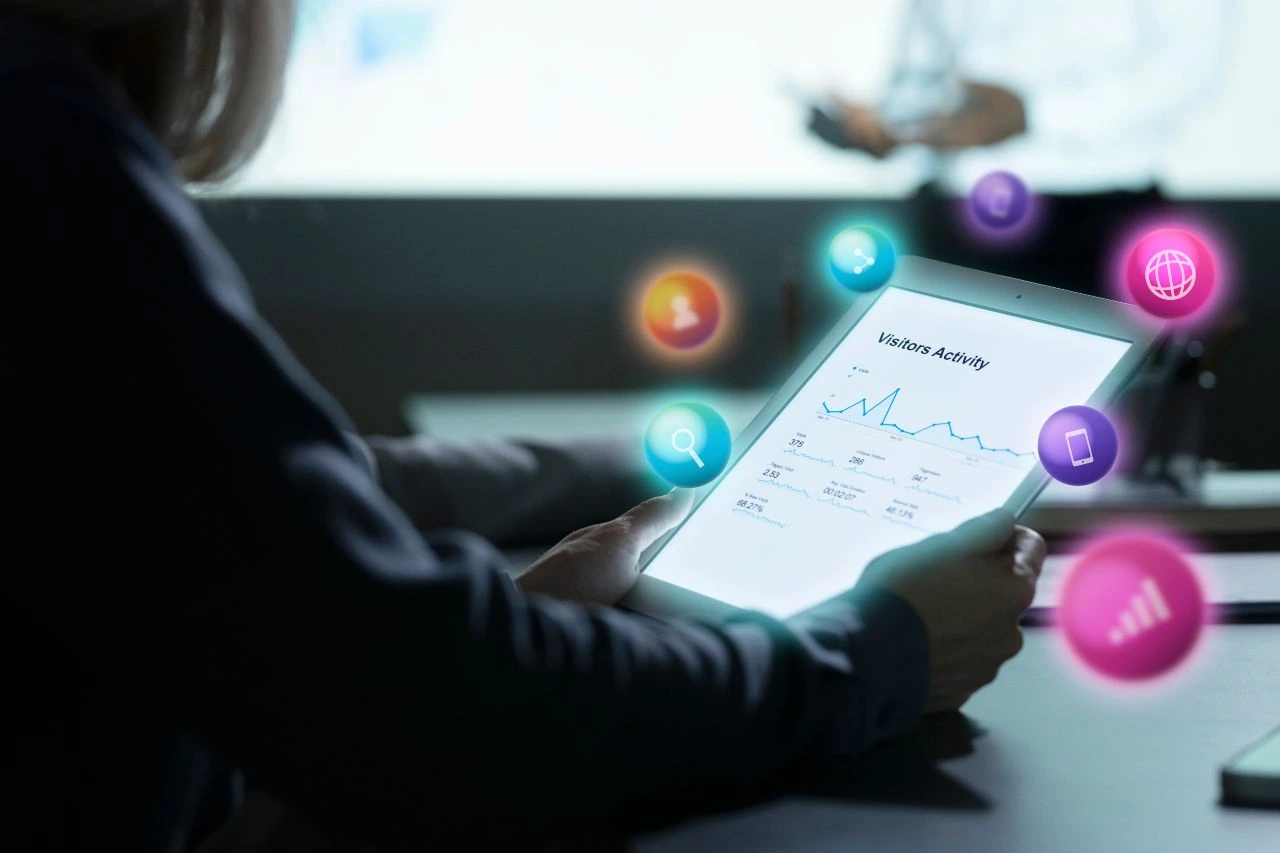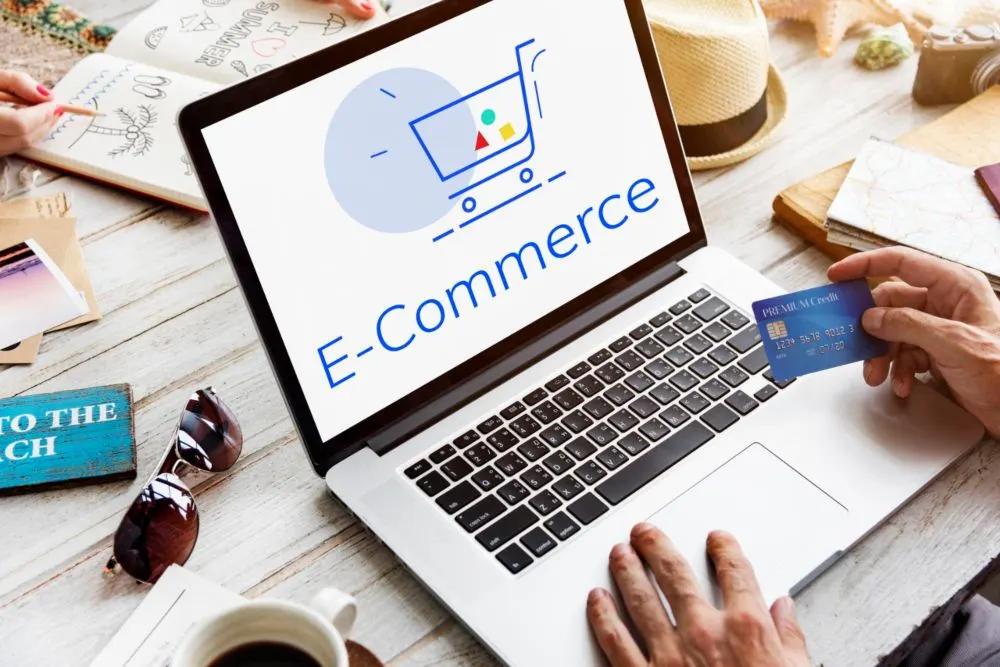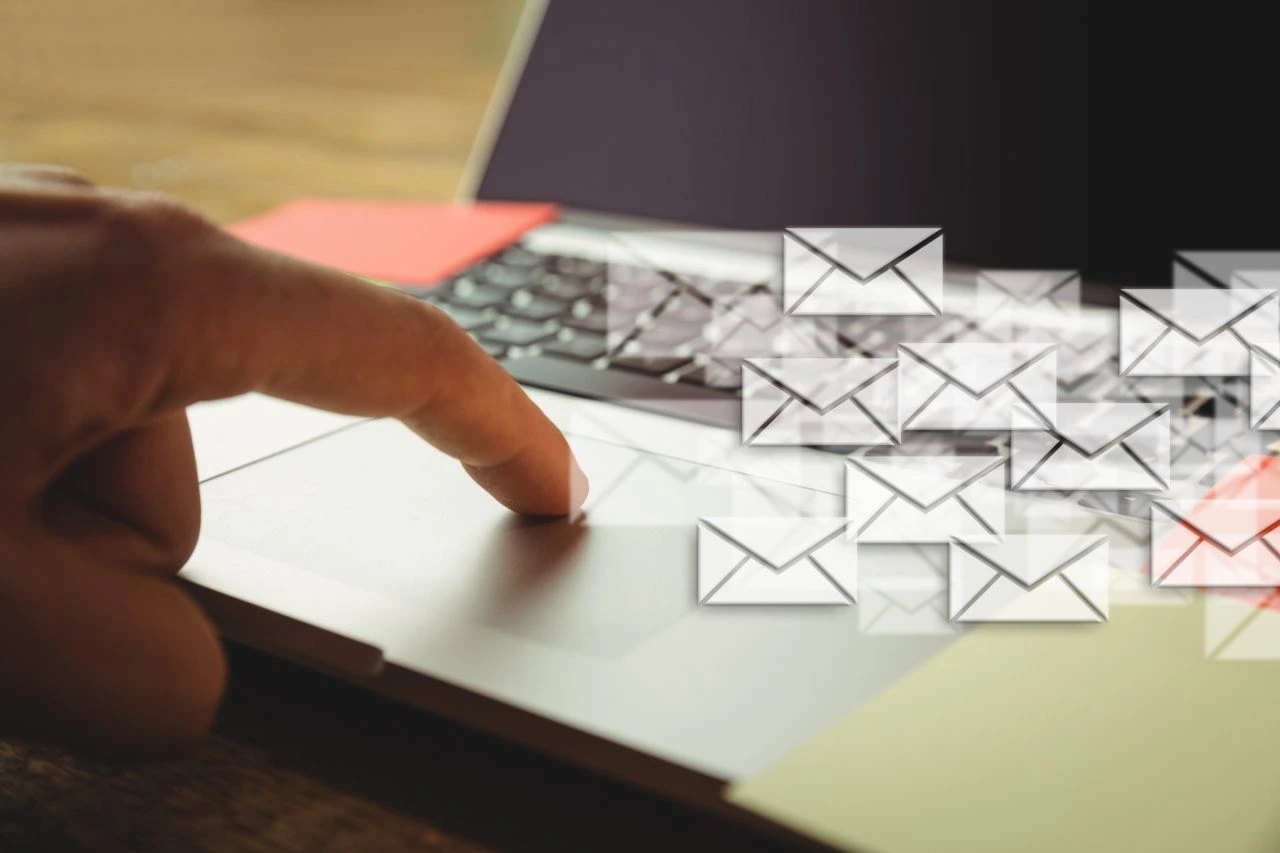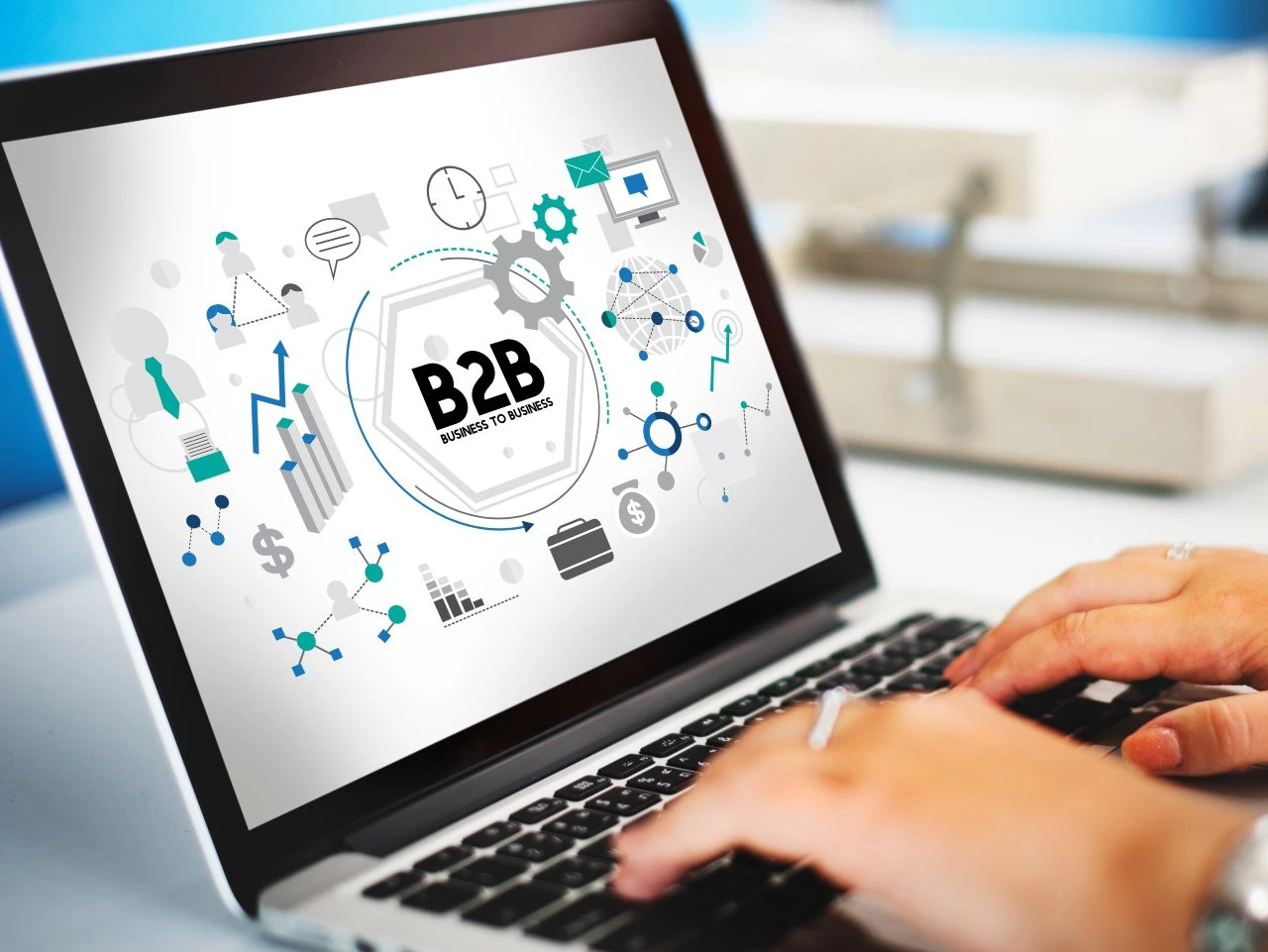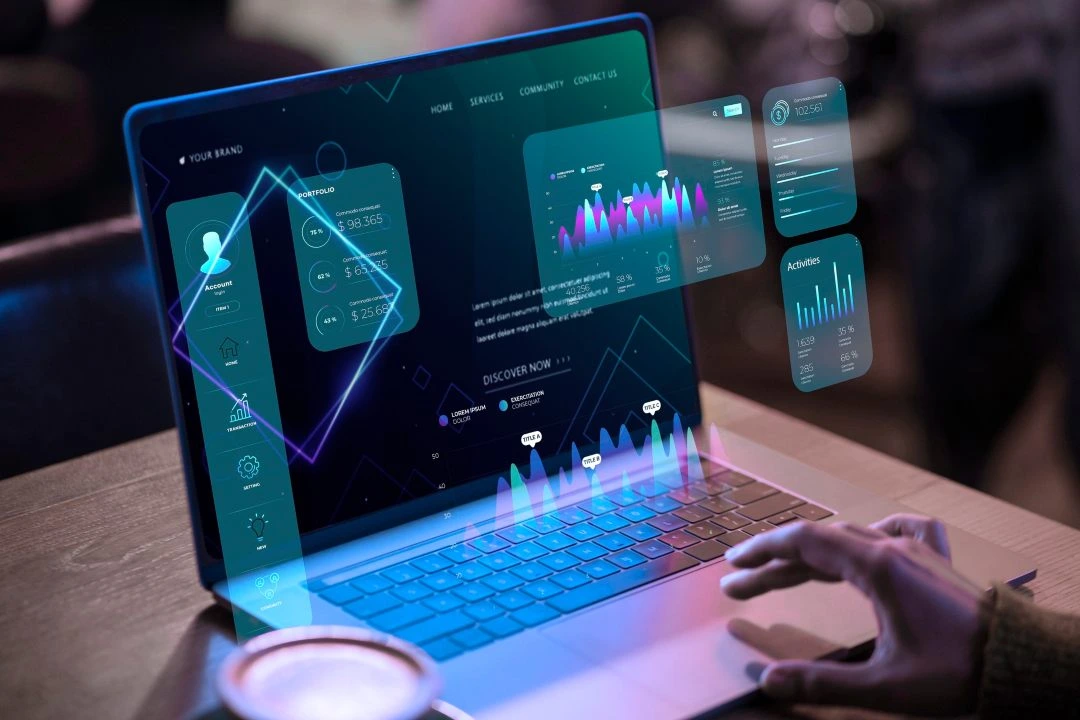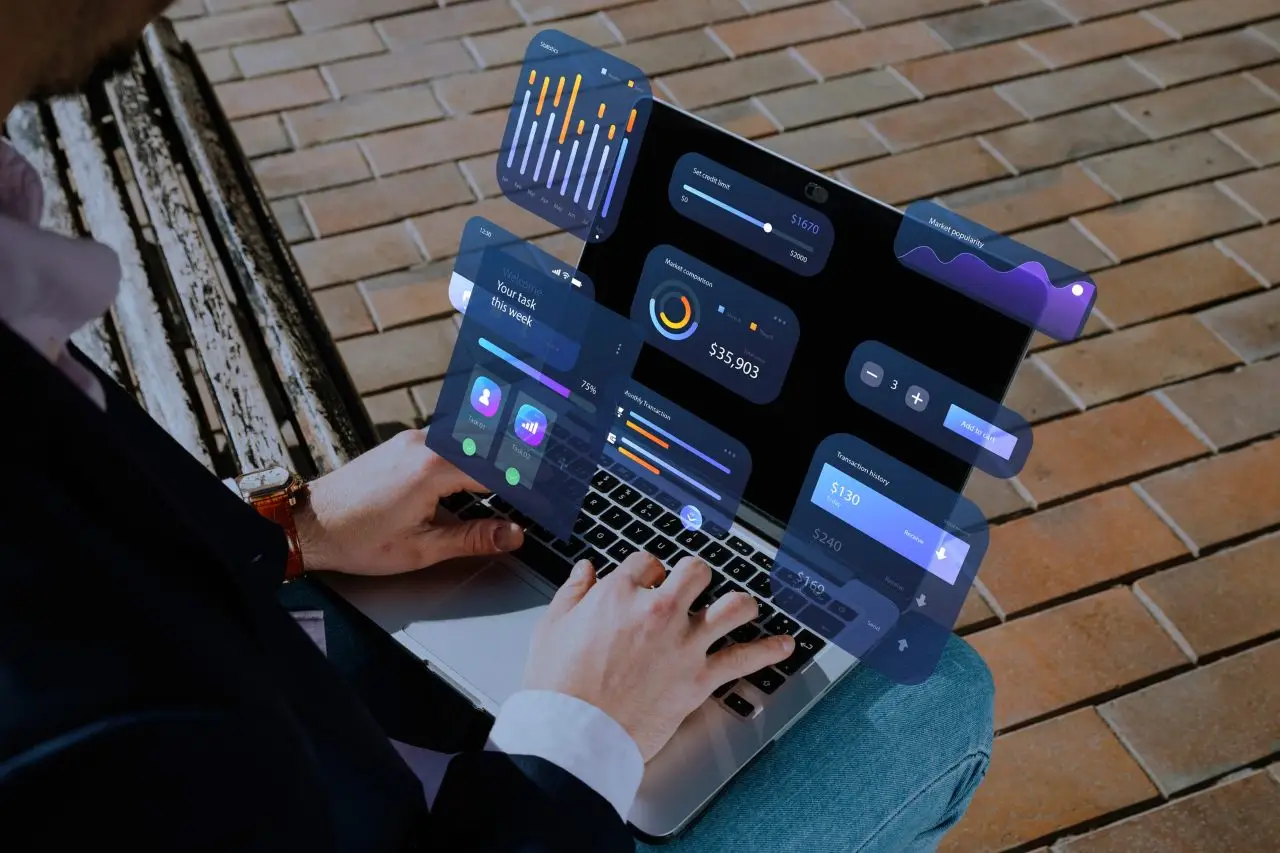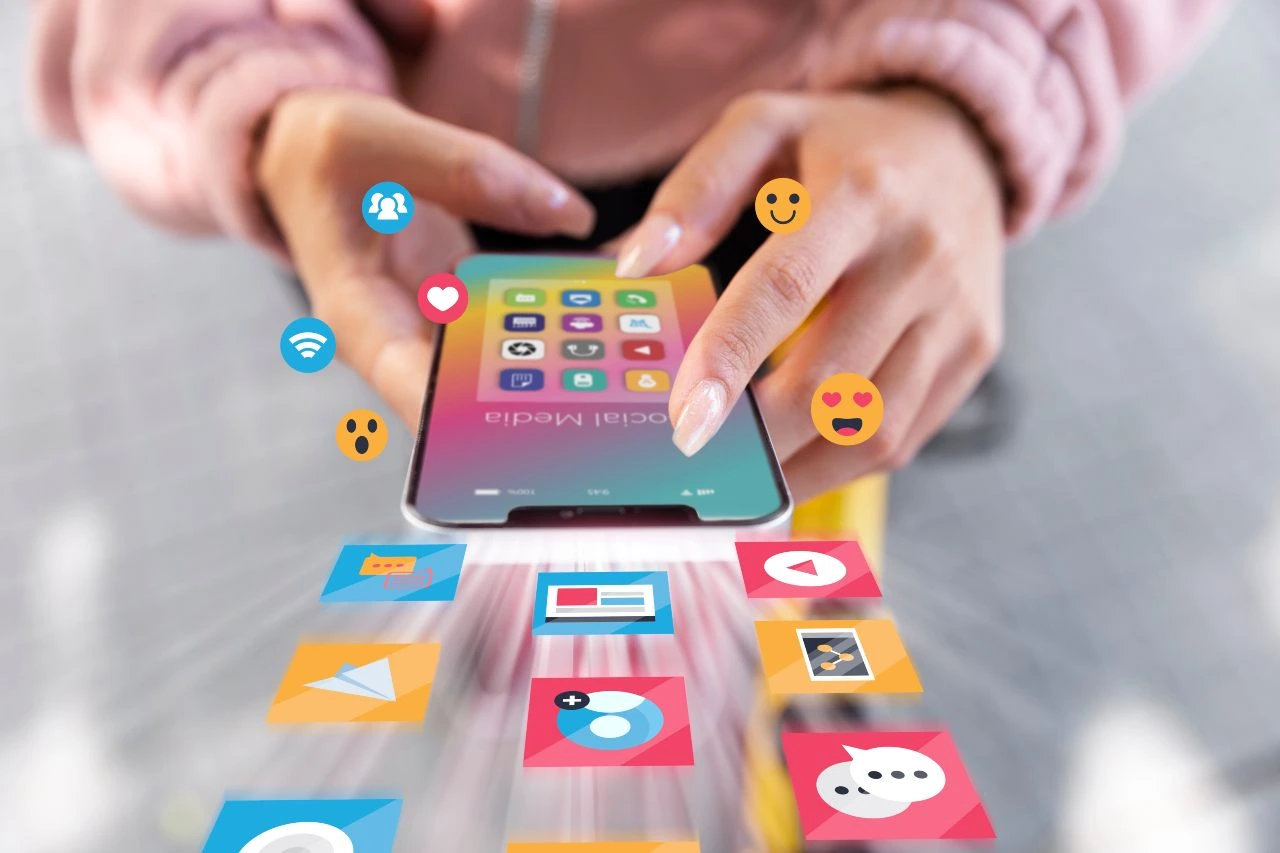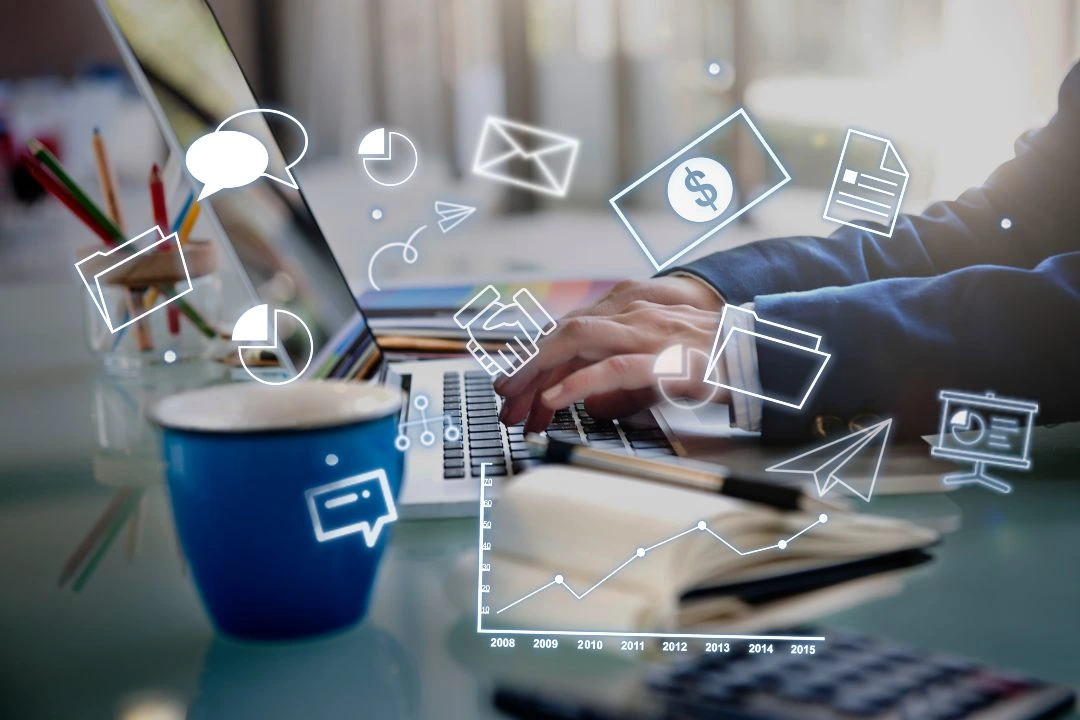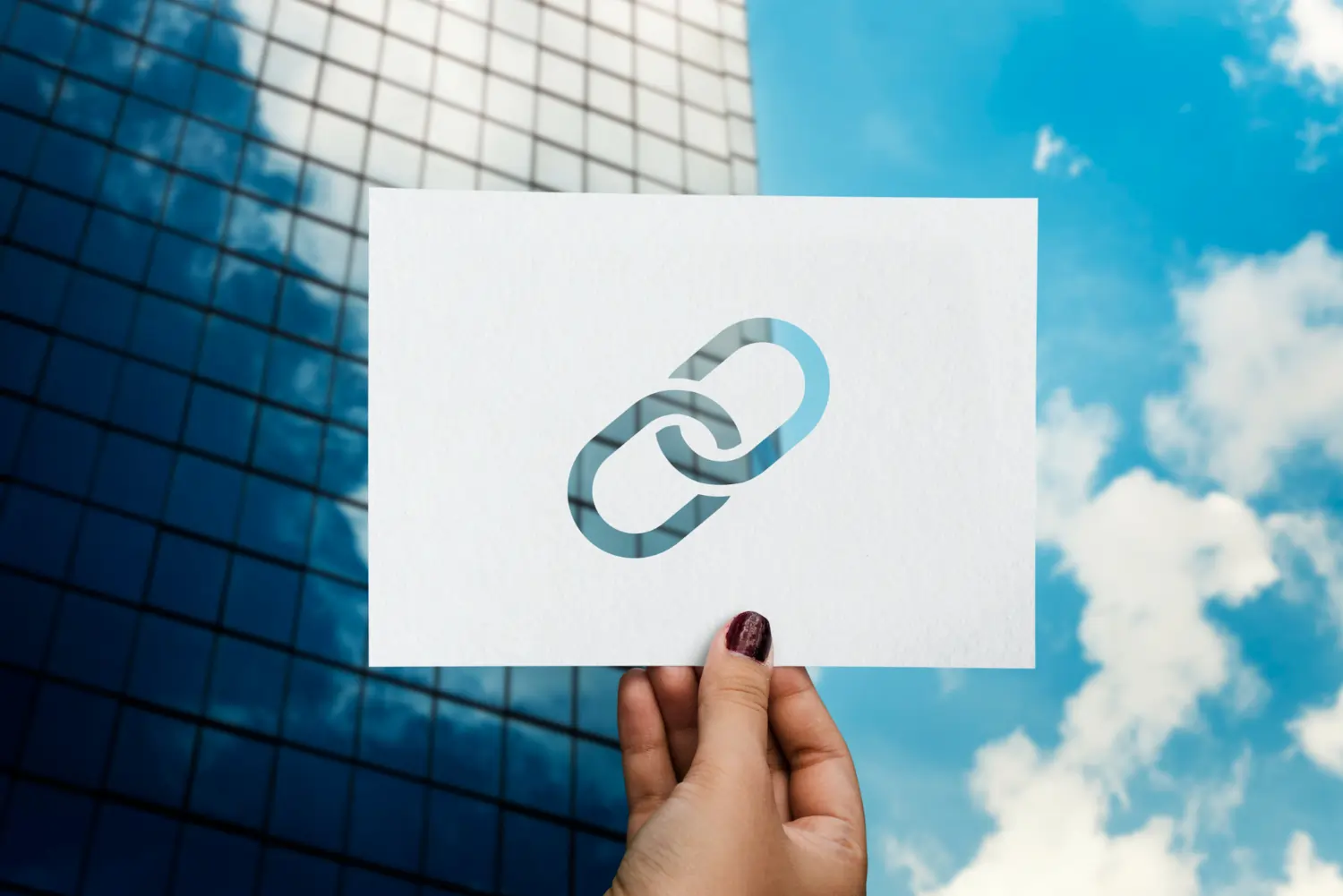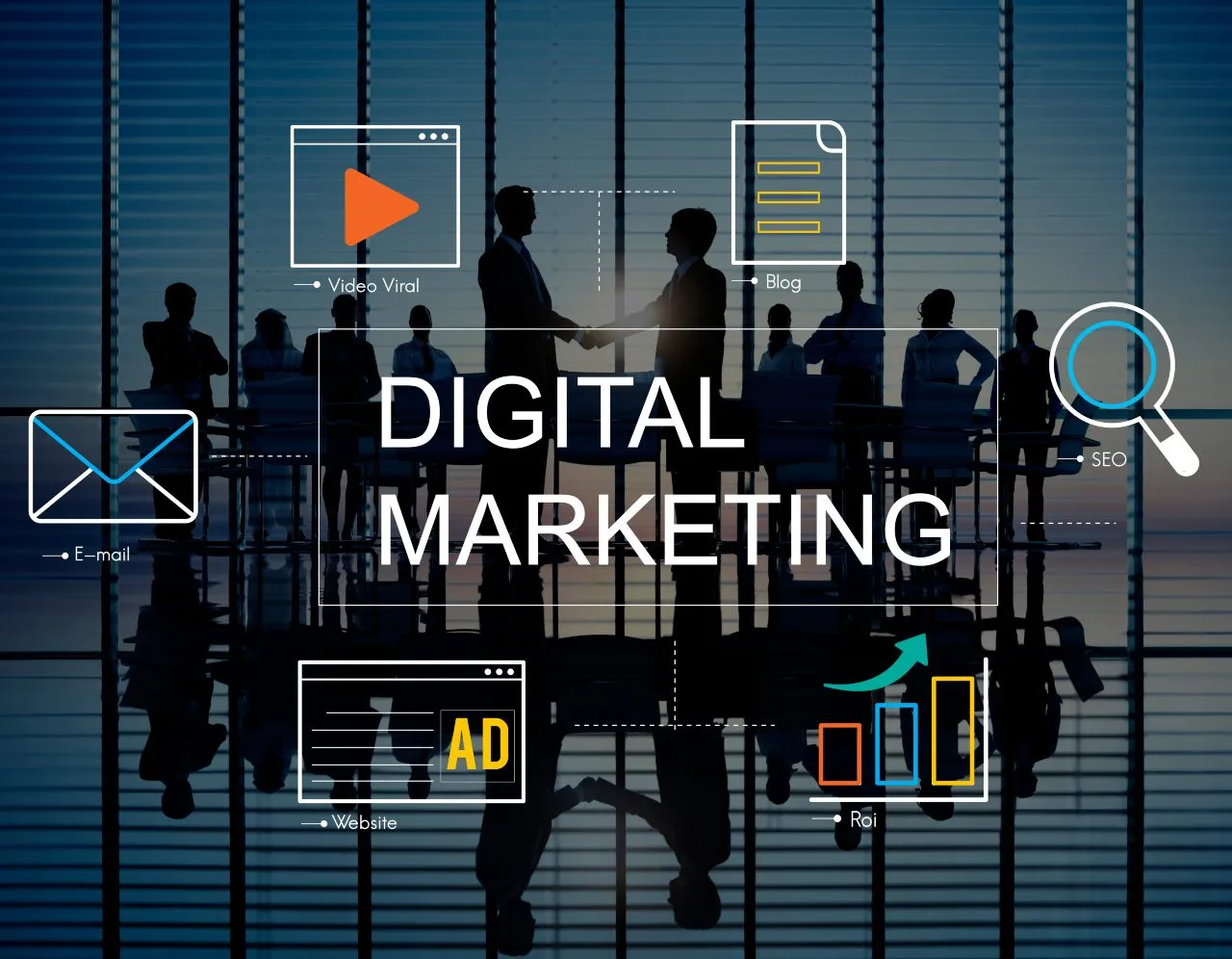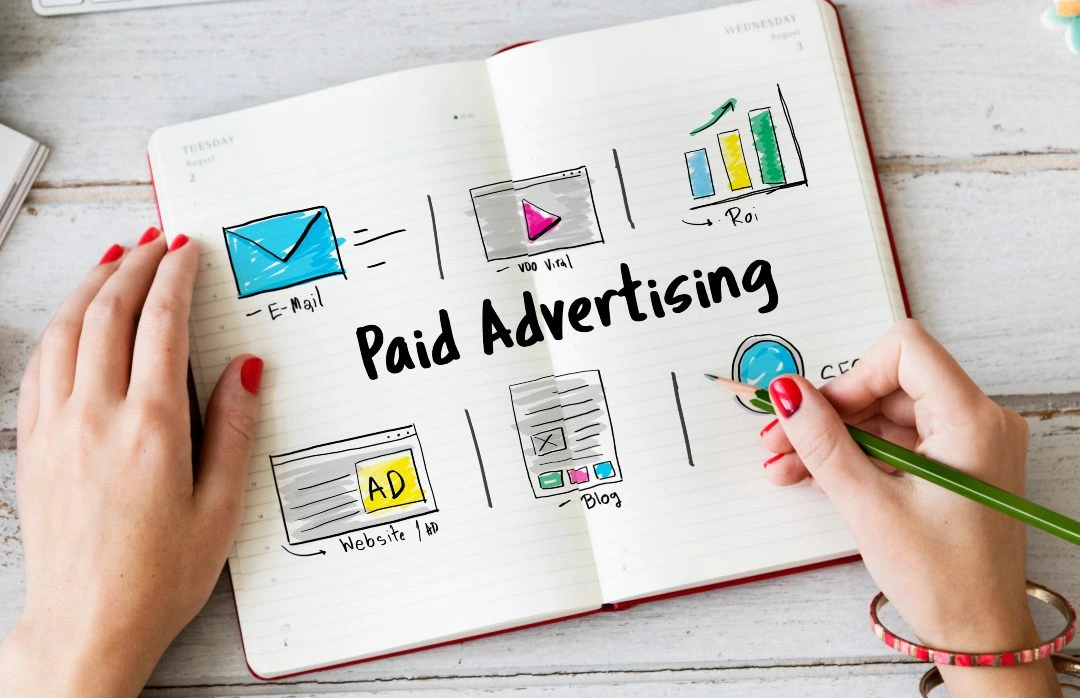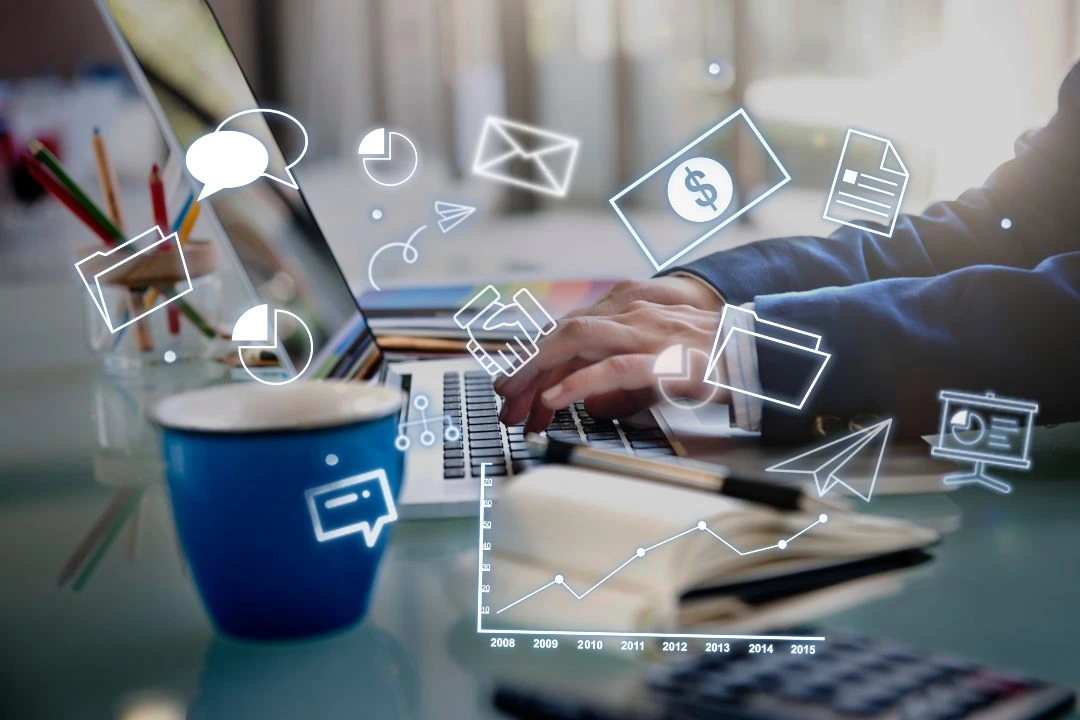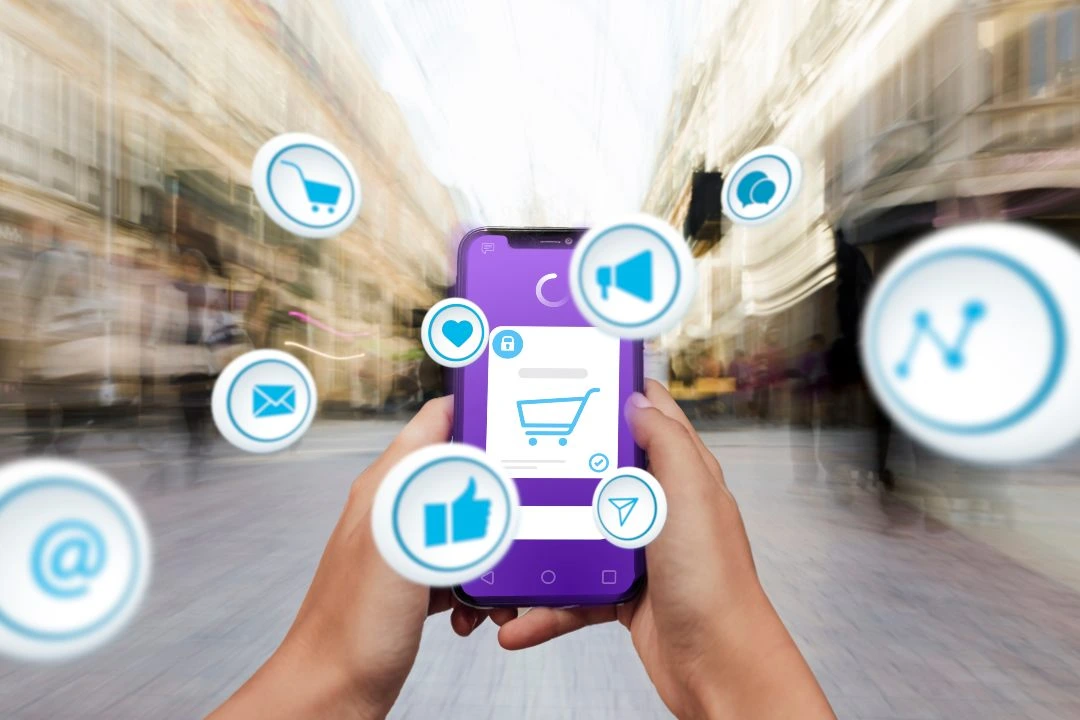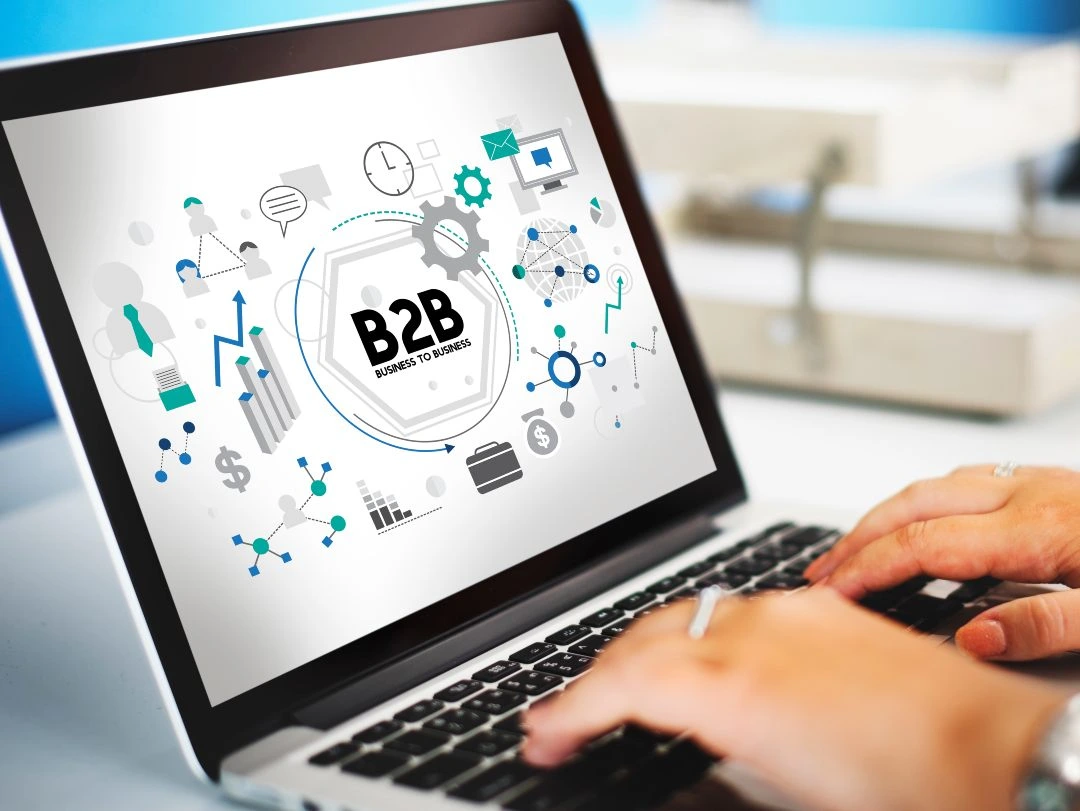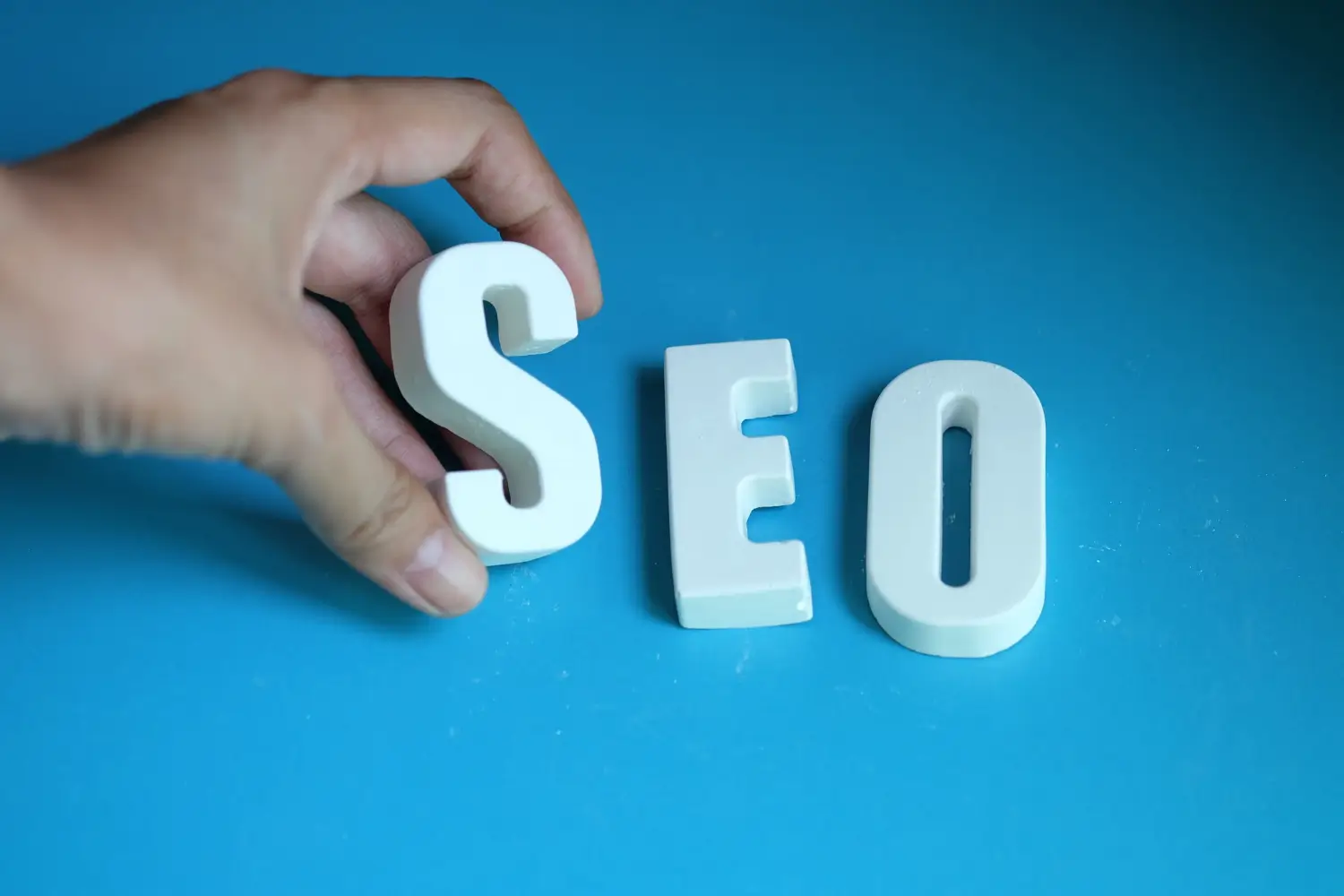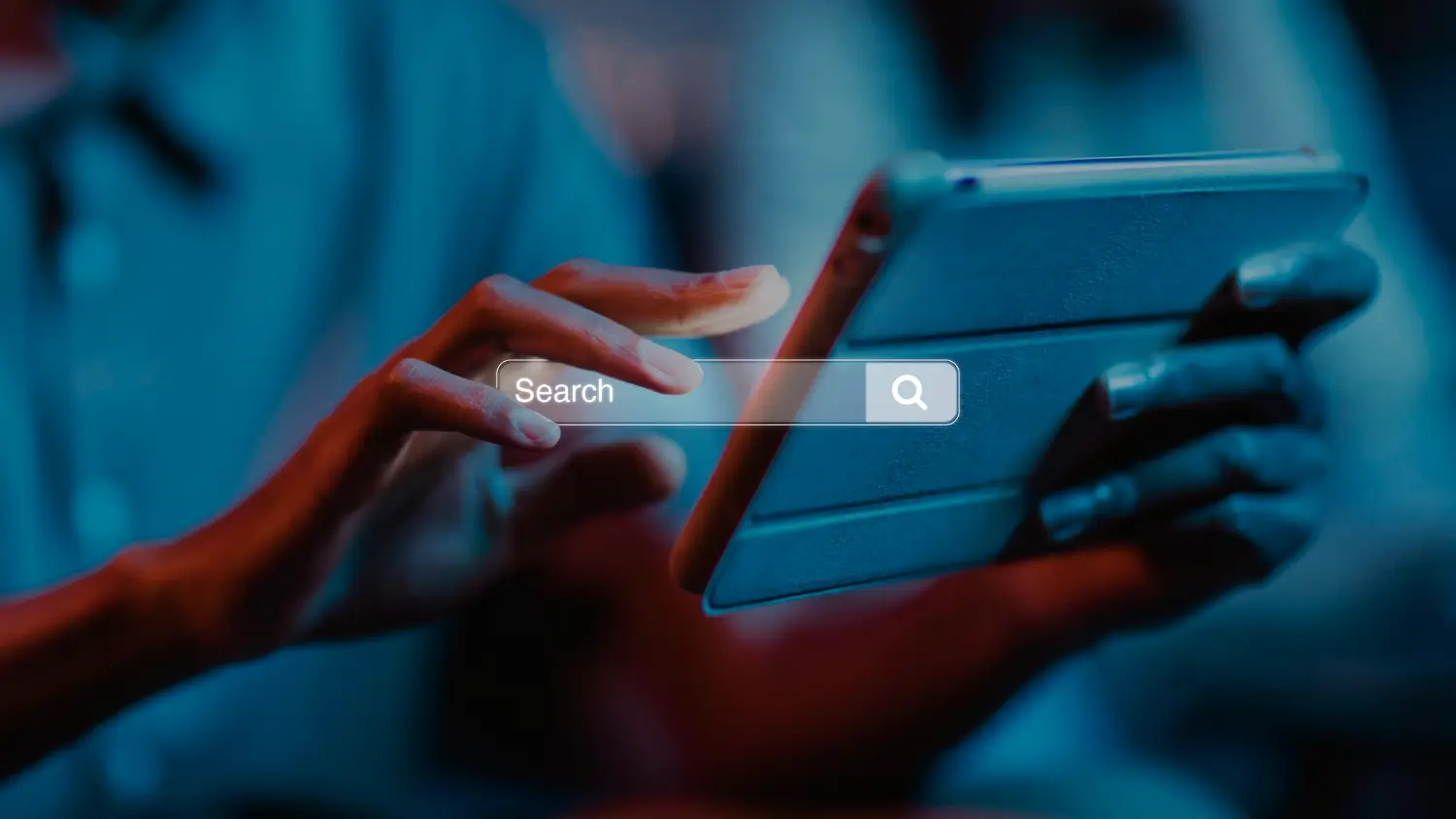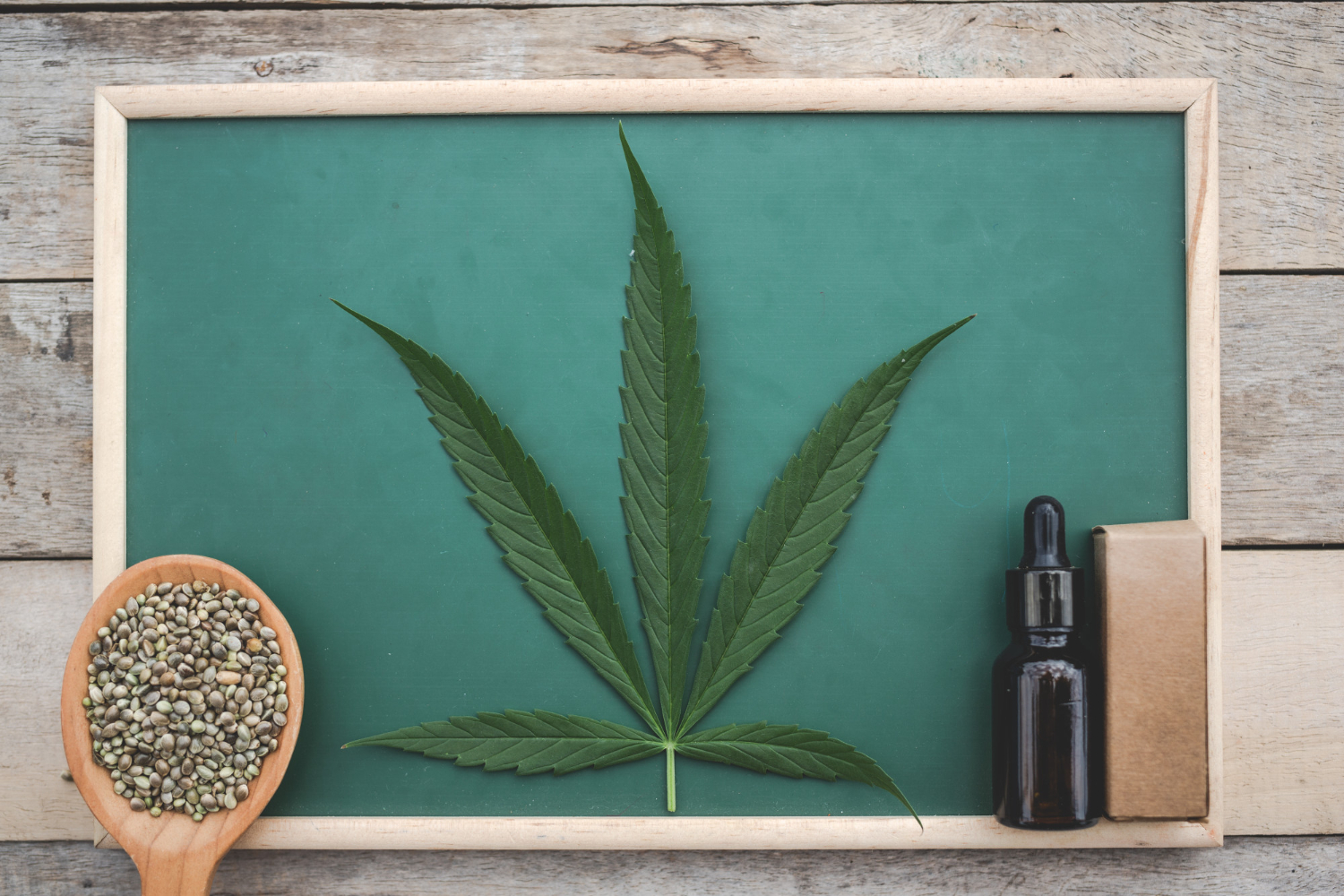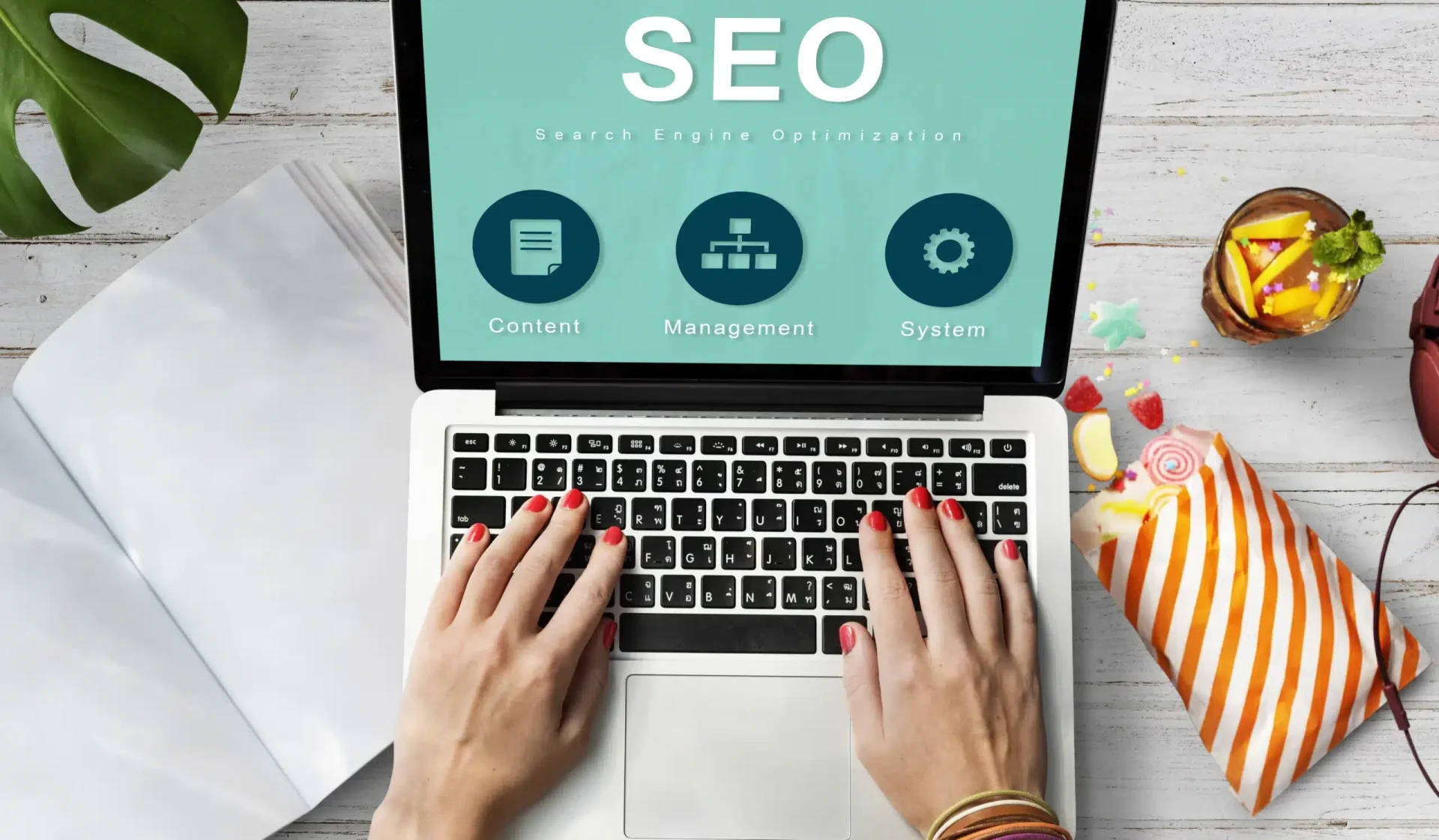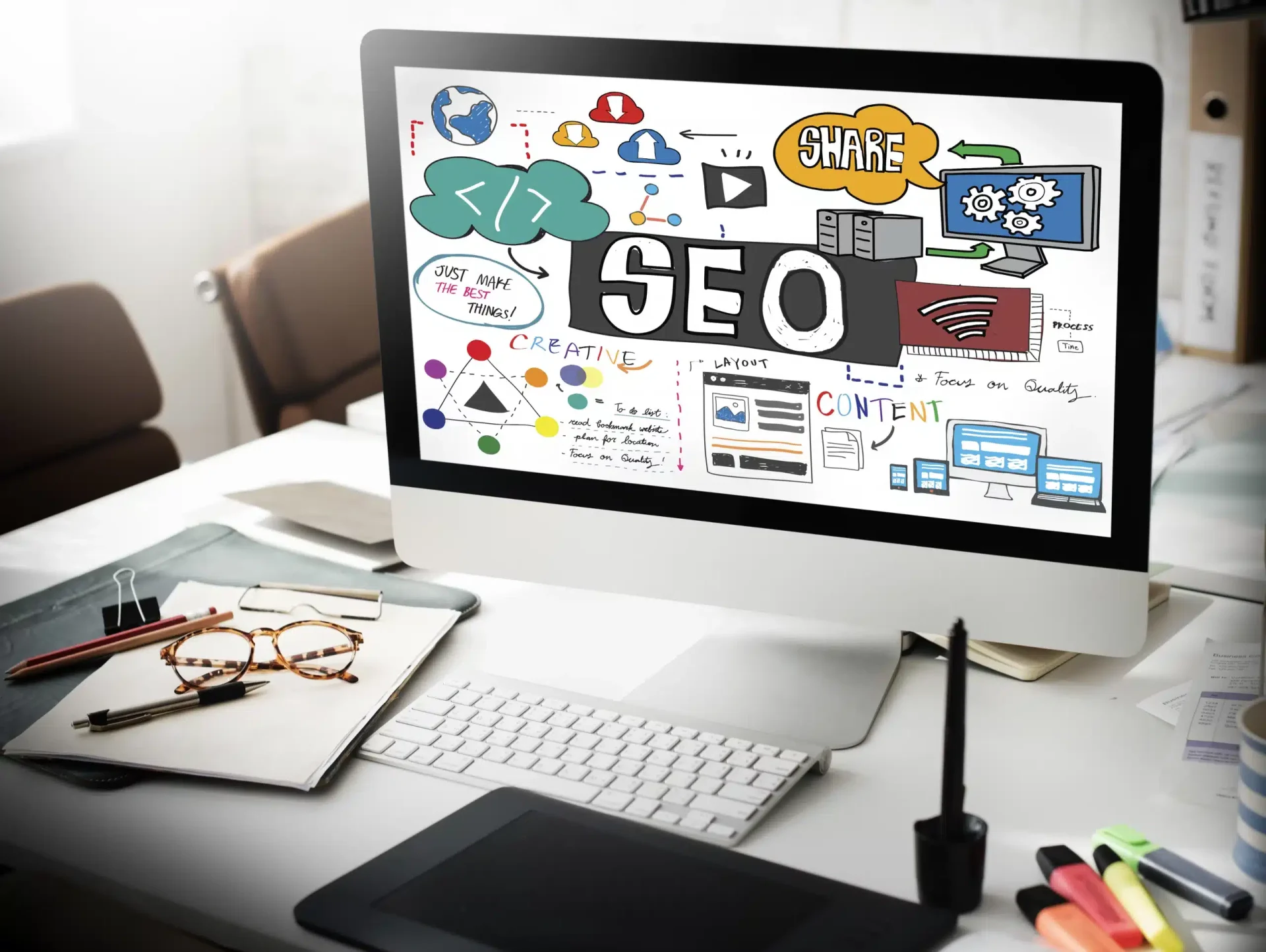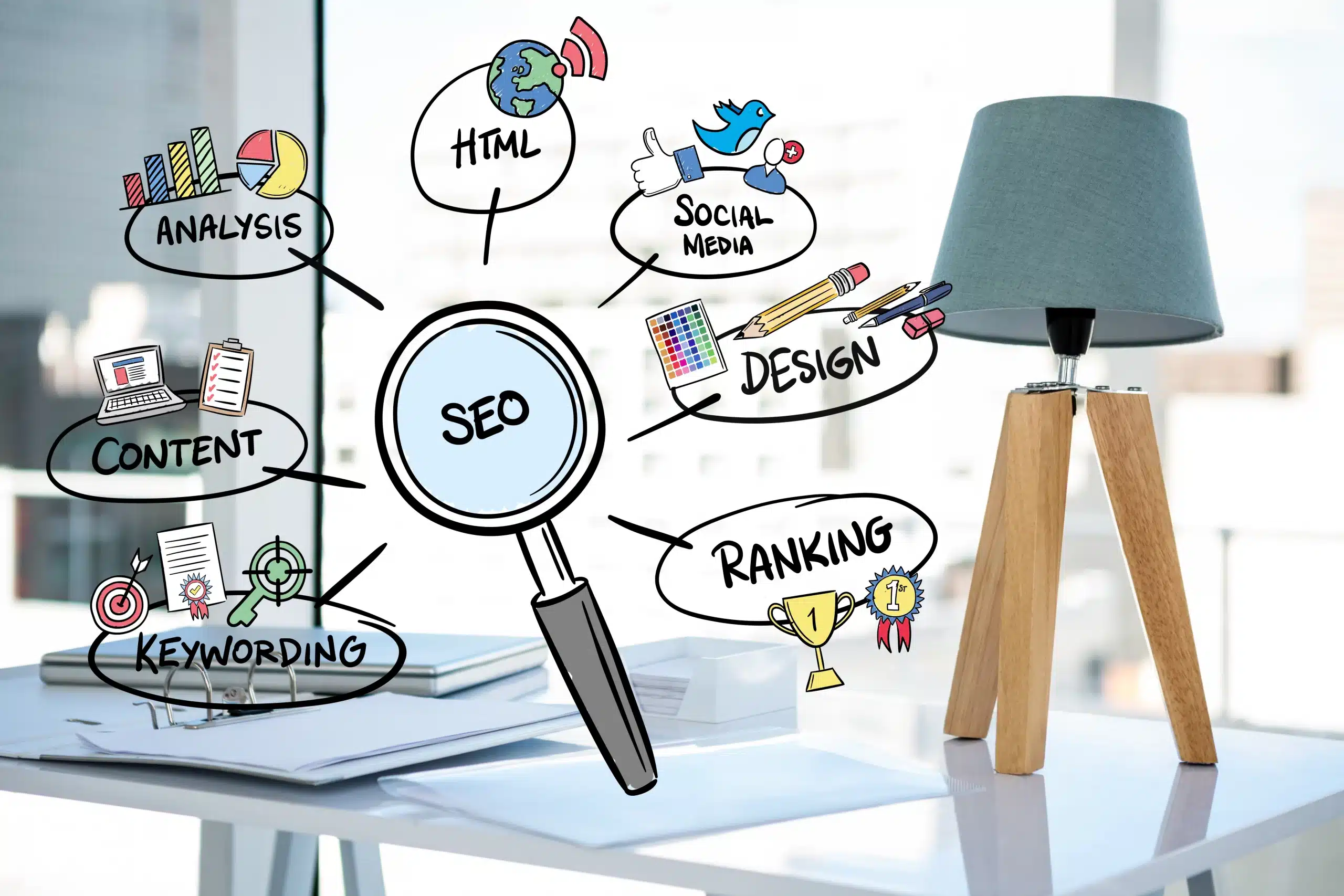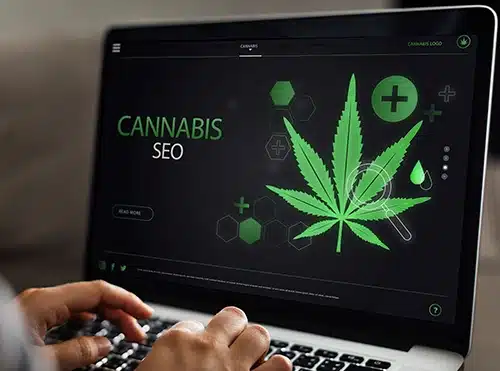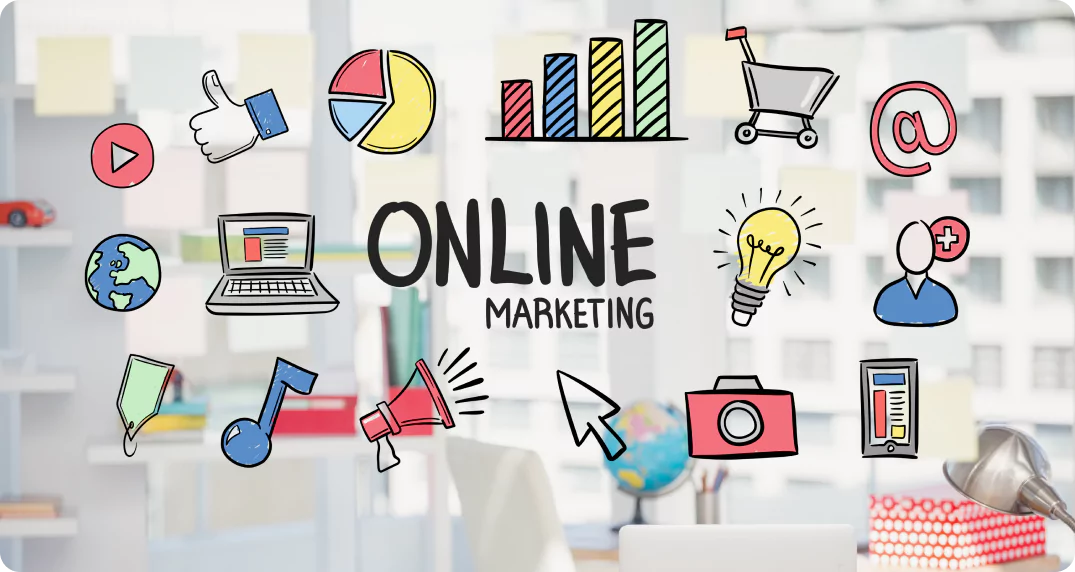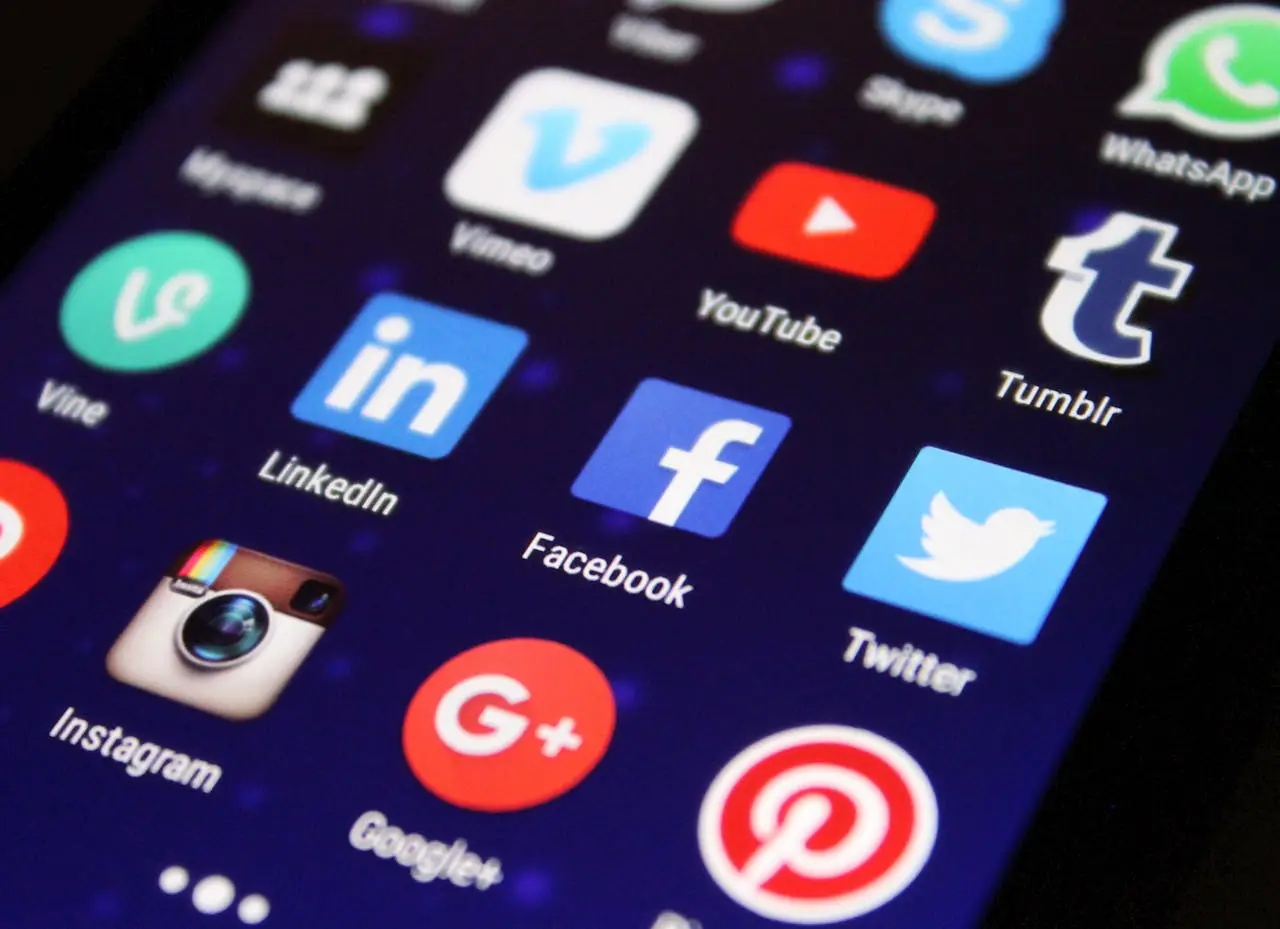Are you ready to reshape your B2B marketing strategy? As we look ahead, several key shifts are poised to redefine how businesses connect with their clients. Staying ahead means understanding and adapting to the latest innovations.
As we approach 2025, the business to business marketing landscape is undergoing a seismic shift, driven by ever-evolving technologies and changing buyer behaviors. From AI-powered personalization to the rise of immersive experiences, B2B marketers must embrace change to stay competitive.
In this article, we’ll explore the top business to business marketing trends set to dominate 2025. We’ll dive into AI and machine learning, enhanced personalization, AI-driven search strategies, and much more, offering actionable insights into how you can prepare your business for the future of B2B marketing.
Role of AI and Machine Learning in Shaping B2B Marketing’s Future
Artificial intelligence (AI) and machine learning (ML) are no longer futuristic add-ons—they’ve become indispensable tools for crafting successful B2B marketing strategies. In an era where decision-making hinges on data-driven insights and hyper-personalized experiences, these technologies equip marketers with the precision and scalability they need to deliver results. The ability to predict trends, automate processes, and deeply understand customer behavior gives businesses leveraging AI and ML a clear competitive advantage.
- AI and ML unlock actionable insights with predictive analytics, allowing businesses to identify customer behavior patterns and emerging trends that might otherwise go unnoticed by human analysts. Source
- Marketers can now deliver highly personalized content at scale, offering product recommendations and tailored messages based on individual user habits and preferences. This level of customization has shifted from a differentiator to an expectation. Source
- Automated processes driven by AI and ML, such as real-time bidding in digital ads and email marketing workflows, not only save time but also increase campaign efficiency by dynamically optimizing strategies based on live performance data. Source
- AI-powered chatbots elevate customer service by handling common queries, recommending products, and assisting with purchases. With 73% of customers expecting more AI-driven interactions, integrating chatbots is no longer optional for businesses hoping to compete. Source
- AI simplifies the process of analyzing lead forms, phone calls, and other communication channels to uncover recurring customer pain points, which can then improve messaging and problem-solving in future campaigns. Source
- The ability to process and analyze big data has become more efficient and cost-effective with AI, providing marketers with valuable insights that drive smarter decision-making. Source
AI and ML have fundamentally shifted how B2B marketers operate, from automating routine tasks to creating personalized experiences that resonate with buyers. Yet, as the adoption of these technologies becomes widespread, businesses face increasing responsibility to uphold transparency and ethical practices in how they collect and use customer data. Remaining competitive means embracing AI’s transformative potential while addressing privacy concerns and building trust with your audience.
Pro Tip:
To maximize AI’s impact, start by focusing on areas where it can deliver quick wins, such as improving campaign targeting or automating repetitive tasks. As you grow more comfortable with the technology, explore advanced applications like conversational AI or predictive analytics to further enhance your marketing strategy.
Transformative Role of AI in Personalizing B2B Marketing Strategies
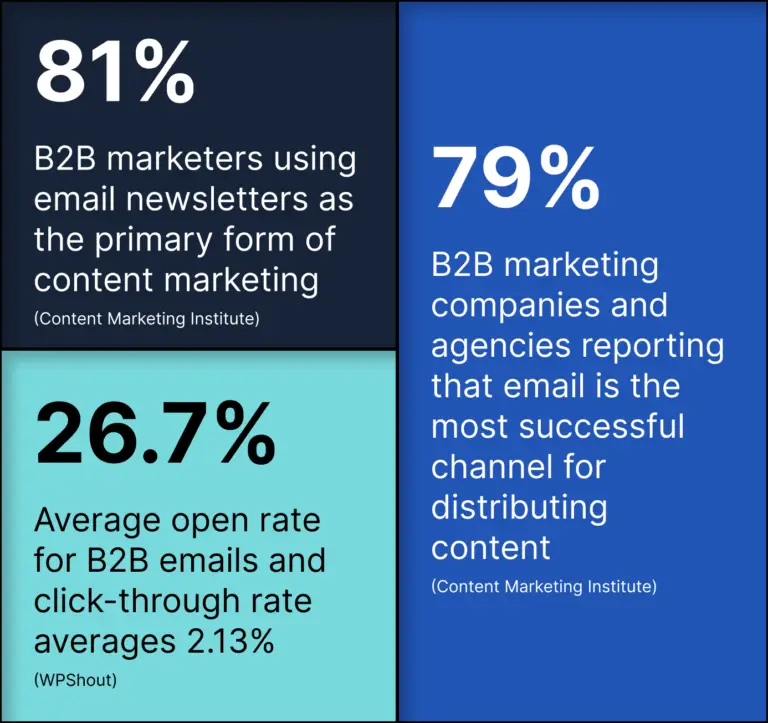
Source: DBS Interactive
The B2B marketing landscape is entering a new era, where AI is becoming the cornerstone of personalization and content creation. As competition intensifies across industries, businesses are increasingly adopting AI to deliver hyper-relevant, targeted campaigns that resonate with prospects on an individual level. This not only creates more meaningful interactions but also streamlines marketing processes, allowing teams to focus on strategy and relationship-building.
- Over half of B2B marketers are harnessing AI to support copywriting for email campaigns, social media, and organic search strategies. Source
- AI enables real-time dynamic content adjustments based on factors such as user behavior, location, and even variables like weather, ensuring constant relevance. Source
- Advanced AI-driven website personalization provides tailored customer experiences by segment, going far beyond basic localization. Source
- Hyper-personalization tools and data analytics allow the delivery of contextually relevant content adapted to user actions, driving deeper engagement and higher conversions. Source
- Personalization tools are evolving rapidly, helping industries like lead generation, which previously faced challenges due to privacy concerns, make significant strides. Source
- Leveraging AI and machine learning, marketers can create automated, detailed customer profiles that decode buying habits and preferences. Source
- Insights gleaned from user behavior, such as social listening and on-site activity, enable businesses to align content with audience preferences and purchasing trends. Source
- Timely, interest-based content delivery not only captures user attention but can also propel prospects toward making a purchase. Source
- With Google’s phase-out of third-party cookies, businesses are pivoting to first-party data strategies to fuel AI-powered personalization. Source
- AI streamlines repetitive tasks: Technologies like AI automate processes such as lead scoring, email segmentation, and customer support, creating room for marketers to focus on innovation. Source
- Data-driven targeting is evolving: AI’s ability to mine actionable insights from data ensures marketing efforts are more accurately targeted and relevant. Source
- Content creation at scale: Around 52% of marketers are already using AI tools to supercharge content creation, improving efficiency and output quality. Source
- AI-powered video production: Marketers are using AI-based tools to create personalized video content quickly and efficiently, adapting to increasing demand for video. Source
Key Takeaway: AI is Unlocking Scalable Personalization for B2B Marketers
AI is not just a marketing tool—it’s a game-changer for ensuring personalized, meaningful interactions with potential customers. By utilizing AI to analyze customer data, predict behaviors, and adapt content dynamically, B2B companies can foster stronger connections and optimize their sales funnels. From automating routine campaigns to enabling first-party data-driven strategies post-cookie era, AI ensures businesses stay competitive and agile.
Pro Tip:
Start small but think big. Implement AI tools in specific areas like lead scoring, email segmentation, or behavioral analytics and scale gradually. When exploring online marketing strategies for small business, consider platforms like Salesforce Einstein, Marketo, or HubSpot, which offer built-in AI capabilities to help you automate, personalize, and refine your marketing initiatives seamlessly.
AI for Smarter Lead Scoring in B2B
In an era where precision and personalization define successful marketing strategies, AI and machine learning are becoming invaluable tools for B2B lead management. These technologies empower businesses to sift through data intelligently, identifying high-value prospects and tailoring engagement strategies for better efficiency and higher conversion rates. More than just a time-saver, AI-driven lead scoring allows businesses to focus their efforts where it matters most, ensuring no valuable opportunity slips through the cracks.
- Businesses are adopting more nuanced lead-scoring models that consider a broader range of behaviors and interactions, allowing for more precise customer targeting. Source
- Automating the lead management process ensures leads are nurtured based on their potential value and conversion readiness, improving efficiency and significantly increasing the likelihood of converting leads into customers. Source
The shift toward AI-enhanced lead scoring signifies more than just a trend—it’s a necessity for B2B organizations looking to remain competitive in a data-driven landscape. By analyzing various touchpoints and customer behaviors, AI refines how leads are prioritized, freeing up sales teams to focus on closing deals rather than chasing unqualified prospects.
Pro Tip:
To maximize the benefits of AI-powered lead scoring, integrate it with your CRM system to create a seamless feedback loop. This ensures your scoring models evolve with changing customer behavior, driving more reliable and impactful results over time.
AI to Supercharge B2B PPC Advertising
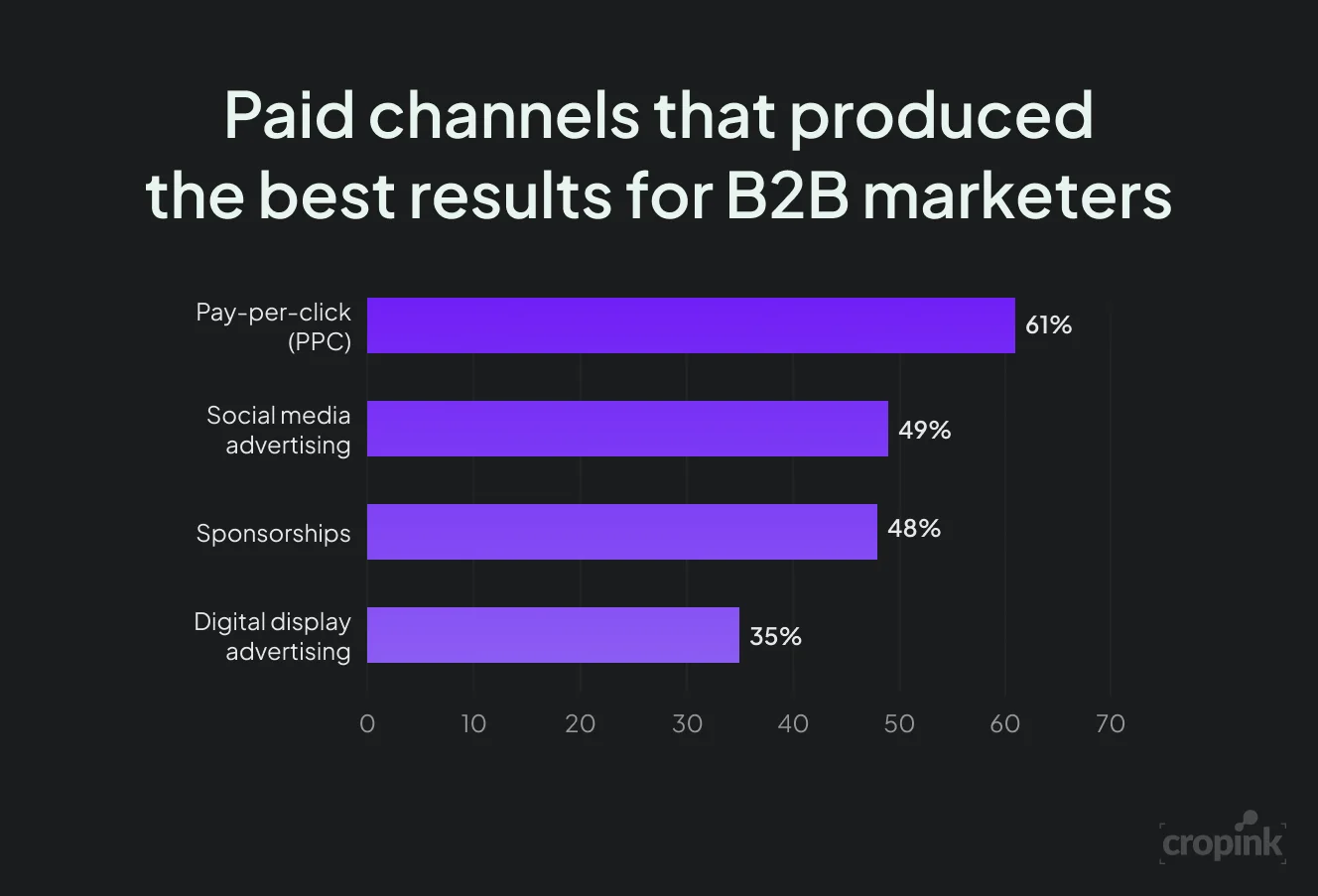
Source: Cropink
B2B marketing is entering a new era where artificial intelligence is no longer a luxury but a core driver of campaign success. In PPC advertising, where precision and timely adjustments can make or break ROI, AI is empowering marketers to not only automate repetitive tasks but also uncover opportunities that are invisible to human analysis. From predictive targeting to ad copy generation, AI is reshaping how businesses approach paid campaigns in an increasingly competitive landscape.
- Major ad platforms are embedding AI into their systems, which has led to a growing adoption of AI-driven PPC tools by B2B marketers. Source
- Tools like Smart Bidding in Google Ads simplify campaign management by automating bid adjustments, freeing up marketers to focus on strategy. Source
- AI-powered advertising doesn’t just reduce manual work—it enables the generation of smarter ads that deliver stronger ROI. Source
- Google Ads’ Performance Max campaigns exemplify AI’s potential by using keywordless targeting to locate new high-converting opportunities while producing intent-driven ad creatives. Source, Source
- Microsoft is tapping into generative AI with solutions like Conversational Ad experiences, Ads for Chat API, and its AI-powered Copilot for enhanced campaign engagement. Source
Key Takeaway: AI Is Not Just a Tool, It’s a Partner in PPC
AI isn’t merely about saving time—it’s about uncovering insights and creating scalable efficiencies that previously required entire teams to execute. For B2B marketers, this means gaining a competitive edge through hyper-relevant targeting, predictive analytics, and creative automation that aligns with buyer intent. The integration of AI across advertising platforms like Google and Microsoft reinforces one key lesson: businesses that invest in AI-driven PPC services and capabilities now are the ones better positioned to dominate their industries in the future.
Pro Tip:
Experiment with AI-enabled features like keywordless targeting, dynamic ad creation, and conversational ad formats in smaller campaigns first. This lets you test performance while minimizing risks. Additionally, use analytics tools to interpret AI-driven results and fine-tune your strategy for maximum ROI.
AI for Smarter Resource Management and Quality Control in B2B Marketing
In an environment where every dollar and minute count, AI has become an indispensable ally for B2B marketers. Beyond automating routine tasks, AI empowers teams to navigate budget constraints, streamline workflows, and maintain operational consistency. However, the key to unlocking AI’s full potential lies in integrating it thoughtfully into marketing strategies while safeguarding the quality and reliability of outputs.
- AI tools enable marketers to efficiently manage limited budgets and human resources while automating repetitive tasks, making teams more productive. Source
- Establishing AI usage governance ensures content quality is not compromised by defining specific tasks for generative AI and incorporating quality assurance measures. Source
- Comprehensive training for employees using AI, coupled with well-defined AI governance policies, protects the integrity of marketing efforts. Source
Key Takeaway: Balance Innovation with Oversight
AI is no longer just a trend but a cornerstone for driving efficiency in B2B marketing. However, with great power comes great responsibility—AI must be harnessed with clear governance policies and a trained workforce to ensure its benefits don’t come at the expense of quality. Businesses that proactively address these aspects will not only enhance productivity but also build trust among stakeholders by delivering consistent, high-quality outcomes.
Pro Tip:
As you implement AI tools, conduct regular audits to assess their performance and impact. Additionally, involve cross-functional teams in shaping AI governance policies to ensure they address diverse needs and use cases across your organization. Tools like ChatGPT and Jasper can be powerful allies, but your team’s expertise and oversight will be the true differentiators.
B2B SEO in the Age of AI-Powered Search
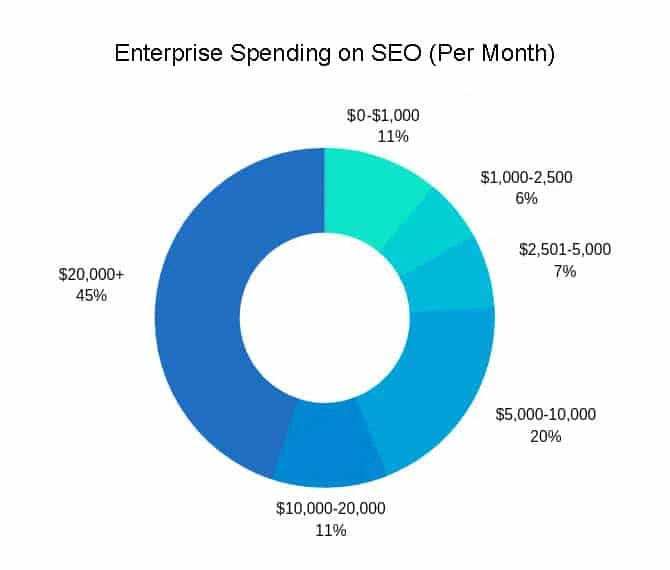
Source: Firstpage SEO
Artificial intelligence isn’t just reshaping how people search; it’s redefining how businesses approach SEO entirely. With AI overviews providing instant answers and reducing reliance on traditional website visits, marketers must reimagine their b2b website strategies to stay visible and relevant. Instead of competing for clicks on top-of-funnel content, the focus is shifting to deeper, more actionable engagement and targeted platforms where AI’s influence is growing.
- To stay competitive, marketers need to optimize for AI overviews by tailoring content to align with AI’s summarization tendencies and targeting platforms like Reddit and Quora, which have seen visibility boosts from search engine updates. Source
- Getting listed in databases referenced by AI models is essential for securing a presence in AI-driven search results. Source
- AI-generated results themselves are a marketing goldmine, and strategizing to appear within these outputs can elevate brand exposure. Source
- AI overviews are reducing website traffic—especially for top-of-funnel, question-based blogs—by delivering information directly on the search results page, making traditional click-through less relevant. Source
- Currently, AI overviews appear for about 7% of search queries, offering significant—but selective—opportunities for businesses to capture attention in evolving SERPs. Source
- Success in AI-driven SEO relies on strategies such as database inclusion, crafting content for AI-dominated results, and improving visibility across diverse search experiences—a holistic approach to future-proof optimization. Source , Source
Key Takeaway: Rethink Visibility Beyond Clicks
The AI revolution in search doesn’t just demand adaptation—it demands reinvention. With top-of-funnel blog content losing its prominence to AI-summarized results, marketers need to pivot toward middle-funnel strategies that focus on actionable insights, thought leadership, and decision-enablement. Platforms like Reddit and Quora offer fresh spaces where audiences are actively seeking niche expertise, while AI-database inclusion ensures your brand remains part of the conversation even when clicks aren’t driving engagement.
Pro Tip:
Prioritize creating content that AI models find valuable, such as in-depth guides, structured data, and niche insights designed for middle- and bottom-of-the-funnel intent. Leverage tools like Semrush and Surfer SEO to analyze AI preferences and ensure your content aligns with the evolving AI-powered search dynamics.
In this shifting landscape, businesses that struggle to maintain consistent and effective SEO strategies may consider outsourcing SEO services. By leveraging external expertise, companies can focus on long-term growth while ensuring their content and digital assets remain optimized for AI-driven search trends.
B2B Buying Cycles on Marketing Strategies
As the B2B landscape grows more complex, the buying journey has become a marathon rather than a sprint. Businesses now approach purchasing decisions with heightened scrutiny, involving more stakeholders and placing greater emphasis on ROI evaluations. For marketers, this shift requires a pivot from short-term, transactional approaches to sustained, relationship-driven strategies that align with buyers’ evolving expectations.
- The 2024 B2B Buyer Behavior Benchmark Survey by Demand Generation highlights that buyers are taking more time to decide due to increased stakeholder involvement (26%), budget freezes (34%), and more detailed ROI analysis (41%). Source
- To address these extended timelines, nurturing campaigns play a vital role. Businesses can employ tactics such as drip email sequences, engaging webinars, and gated resources to maintain consistent touchpoints with potential buyers during their decision-making process. Source
The elongation of B2B buying cycles signals a critical need for marketers to recalibrate their strategies, emphasizing value-driven engagement over prolonged periods. Building trust and credibility through consistent, high-value content is no longer optional—it’s essential. Pro Tip: Leverage data insights and account-based marketing tools to customize your engagement efforts. Tailored solutions that align with specific pain points or industry challenges can accelerate decision-making, even in longer cycles.
Navigating Shifts in B2B Buyer Behavior
The dynamic landscape of B2B buying behavior demands that marketers stay agile, as buyers are becoming more meticulous and collaborative in their approach. In a world where budgets are shrinking, decision-making committees are growing, and ROI scrutiny is intensifying, standing out requires more than just a compelling value proposition. Today, the key is aligning your strategy to cater to these well-informed buyers who value transparency, efficiency, and results-driven solutions.
- Decision-making committees are expanding: 26% of buyers have involved more people in the purchasing process this year, emphasizing the need for marketers to address multiple stakeholders. Source
- ROI validation is a top focus: 44% of buyers are conducting in-depth ROI analyses to ensure investments align with business goals. Source
- Research time is increasing: 34% of buyers are dedicating more time to researching their options before committing to a purchase. Source
- Economic pressures are causing delays: 34% of buyers reported purchase delays due to budget freezes, compounded by a 25% reduction in budgets compared to last year. Source
- Pricing transparency is critical: 86% of buyers prioritize easily accessible pricing information when selecting vendors. Source
Key Takeaway: Map Your Strategy to the Buyer’s Current Realities
Today’s B2B buyers are cautious, thoughtful, and resource-constrained, meaning marketers face the challenge of guiding diverse decision-making groups through extended sales cycles while addressing concerns about ROI. Transparency and speed are no longer optional—they’re deal-makers. Offering detailed pricing information early, presenting robust ROI case studies, and equipping sales teams to address multi-stakeholder questions are critical moves. Additionally, consider positioning your solutions with flexibility, such as scalable pricing structures, to cater to varied budgets.
Pro Tip:
Develop personalized, role-specific content for each decision-maker in the sales process, from CFOs analyzing ROI to end-users evaluating product compatibility. Use tools like content hubs or sales enablement platforms to make this information accessible and actionable throughout the buyer’s journey.
Bridging the Gap Between Effort and Impact in B2B Marketing
In the world of B2B marketing, ambition alone doesn’t guarantee results. Despite significant investments in lead generation, many marketing teams struggle to turn their strategies into measurable outcomes. The real challenge lies not in the effort but in aligning tactics to deliver meaningful results—especially in a market where competition for attention is fiercer than ever.
- A staggering 84% of marketers say driving new business is their top priority, yet only 27% feel they are successful in achieving this. Source
- Nearly half (48%) of B2B marketers continue to face challenges in generating enough leads, while 24% struggle with converting leads into revenue. Source
- In response, 70% of B2B marketers have increased their lead generation budgets to close this gap. Source
To truly close the effectiveness gap in B2B marketing, it’s not just about spending more—it’s about being smarter in how resources are allocated and campaigns are structured. Success hinges on maintaining a balance between quantity and quality, ensuring that lead generation strategies are paired with strong conversion strategies to maximize ROI.
Pro Tip:
Use advanced analytics to identify which segments of your audience are driving the highest lifetime value, then tailor your campaigns specifically for these groups. Tools like intent data platforms and predictive analytics can help uncover high-potential leads and guide your personalization efforts at scale.
Potential of Advanced Analytics and Attribution Modeling
In 2025, B2B marketing success will hinge on understanding the subtle intricacies of the buyer journey. Advanced analytics and attribution modeling are more than just buzzwords—they’re essential tools for marketers aiming to make data-informed decisions that align with real business outcomes. By leveraging these strategies, businesses can not only track which campaigns drive results but also identify gaps in their funnel and reallocate resources to maximize ROI.
- By 2025, precise attribution will be key for understanding which marketing efforts drive conversions by tracking each stage of the funnel—from awareness to purchase—allowing for smarter decisions and better resource allocation. Source
- To prepare for this, invest time to map your analytics and attribution tracking to the buyer journey and ensure your CRM and marketing platforms are fully integrated to give you a clear view of each lead’s progress through the funnel. Source
Key Takeaway: Data-Driven Marketing is the Competitive Advantage
Attribution modeling and advanced analytics will be pivotal in shaping competitive marketing strategies in 2025 and beyond. With buyers navigating increasingly complex digital journeys, the ability to pinpoint exactly which touchpoints lead to conversions can separate thriving businesses from those stuck relying on guesswork. Integration is the name of the game—ensuring your CRM, analytics tools, and marketing platforms work seamlessly together will provide a 360-degree view of your buyer journey and highlight areas for improvement.
Pro Tip:
Attribution models are not “set it and forget it.” As your business scales and customer behaviors evolve, regularly test and refine your model to make sure it delivers accurate insights. Consider exploring multi-touch and AI-driven attribution systems to uncover deeper patterns in your marketing performance.
Immersive AR and VR Experiences Driving B2B Marketing Innovation
As B2B marketing evolves, the ability to deliver not just information but immersive, interactive experiences has become a game-changer. Augmented Reality (AR) and Virtual Reality (VR) are no longer limited to futuristic concepts—they are actionable technologies enabling companies to engage customers on a deeper, more emotional level. From enabling virtual product demonstrations to crafting engaging brand experiences, AR and VR provide a tangible way for businesses to connect with their audiences in meaningful, memorable ways. These tools are not just about adding “wow” moments; they’re about reshaping customer journeys and creating a stronger alignment between buyer needs and brand offerings.
- AR overlays digital content—like images, videos, and sounds—onto real-world environments via devices such as smartphones or AR glasses, transforming how consumers interact with products. Source
- Businesses can leverage AR for impactful applications like virtual try-ons in fashion, interactive product demonstrations, and virtual home décor visualizations, all of which enhance buyer engagement and drive sales. Source
- AR and VR are increasingly integrated with marketing automation platforms, enabling brands to deliver personalized, automated immersive experiences that captivate audiences efficiently. Source
- This shift toward experiential marketing underscores the future of digital interactions, where campaigns go beyond being seen or heard—they’re felt. This emotional connection has the power to significantly elevate customer engagement and brand loyalty. Source
Key Takeaway: The New Era of Experiential B2B Marketing
The rise of AR and VR in B2B marketing signals a pivotal shift toward creating emotionally resonant and highly interactive buyer experiences. While these technologies were once seen as optional “nice-to-haves,” they are fast becoming essential tools for businesses seeking to differentiate themselves in competitive markets. By leaning into AR and VR, companies can deliver not just content but lasting impressions that turn prospects into loyal customers.
Pro Tip:
Don’t wait for competitors to define AR and VR for your industry. Instead, start experimenting with tailored use cases—like product walkthroughs or augmented on-site experiences—that align with your unique value proposition. Early adoption can give your brand a critical edge in capturing heightened buyer interest and boosting long-term engagement.
Conclusion
The future of B2B marketing lies in harnessing the transformative power of emerging technologies like AI, machine learning, and augmented reality. These innovations are not merely trends—they are reshaping how businesses personalize experiences, engage with customers, and streamline operations. From AI-driven personalization and predictive analytics to automated lead scoring and dynamic PPC management, the opportunities for growth and efficiency are boundless for those willing to adapt.
However, navigating this evolving landscape requires more than just adopting the latest tools. Marketers must remain agile, ethical, and strategic, ensuring data privacy and transparency remain at the forefront of their efforts. As buying cycles grow longer and decision-making processes become more complex, creating meaningful, trust-driven relationships with prospects will be the cornerstone of success.
Looking ahead to 2025, businesses that embrace these trends with creativity and intention will position themselves as leaders in their industries. Ready to boost your traffic and grow your website? Your customers are looking for you, and our SEO services can help you be found across search engines. Let’s propel your B2B strategy into the future—get started today!
About Top Business To Business Marketing Trends in 2025
This guide was written by the Scopic Studios team and reviewed by Araksya Hakobjanyan, SEO Lead at Scopic Studios.
Scopic Studios delivers exceptional and engaging content rooted in our expertise across marketing and creative services. Our team of talented writers and digital experts excel in transforming intricate concepts into captivating narratives tailored for diverse industries. We’re passionate about crafting content that not only resonates but also drives value across all digital platforms.
Note: This feature blog’s image are sourced from Freepik.








